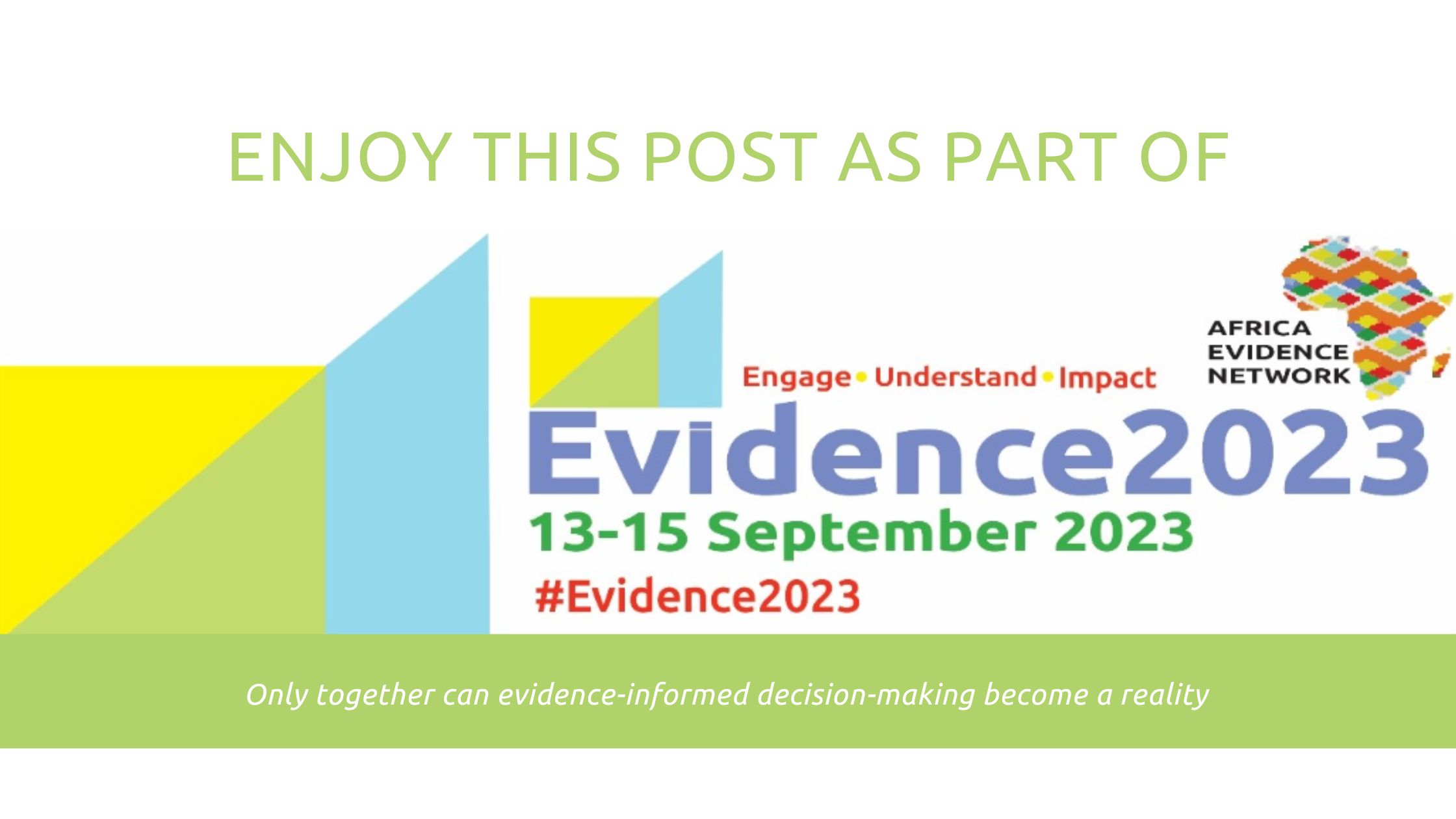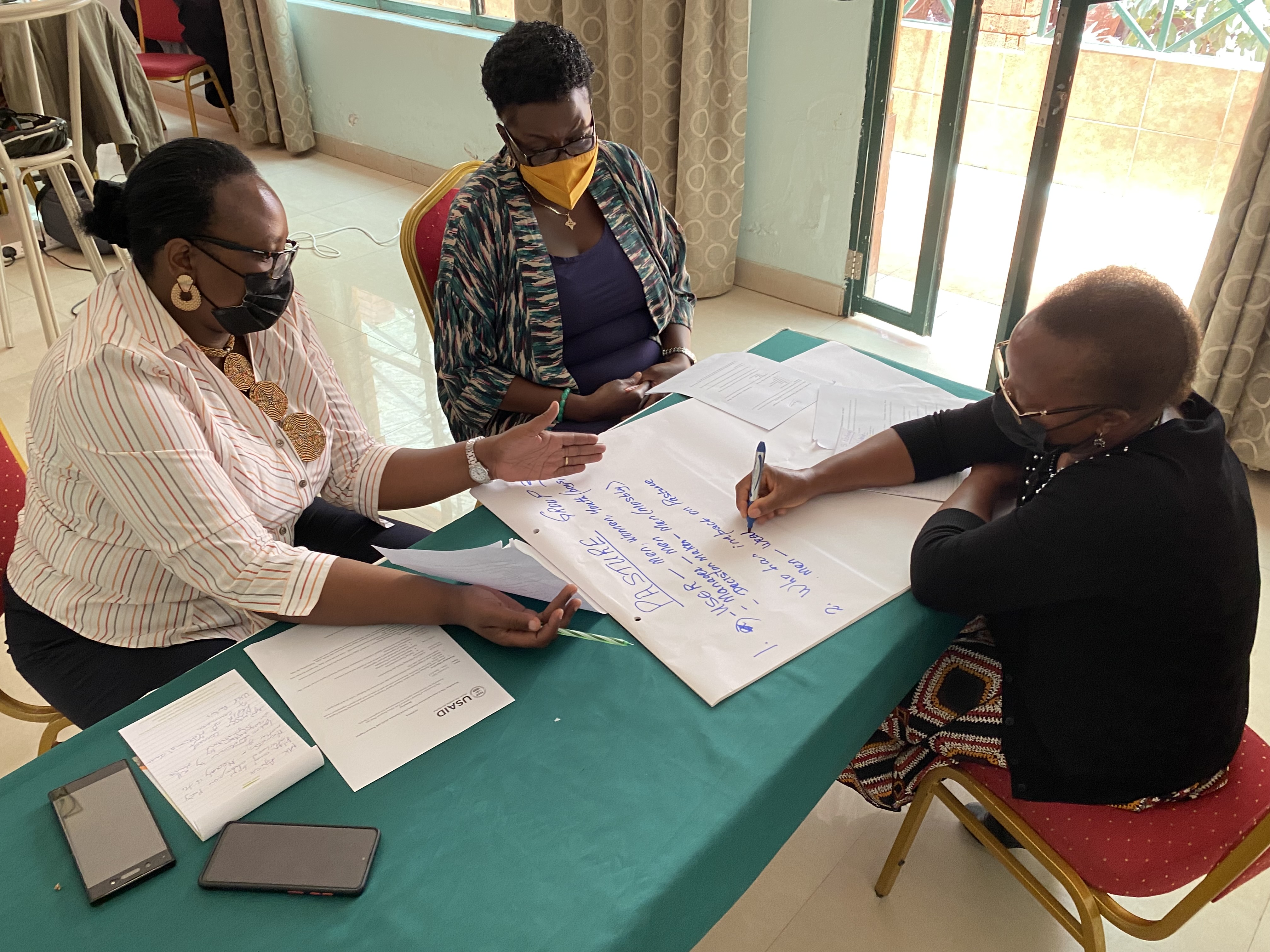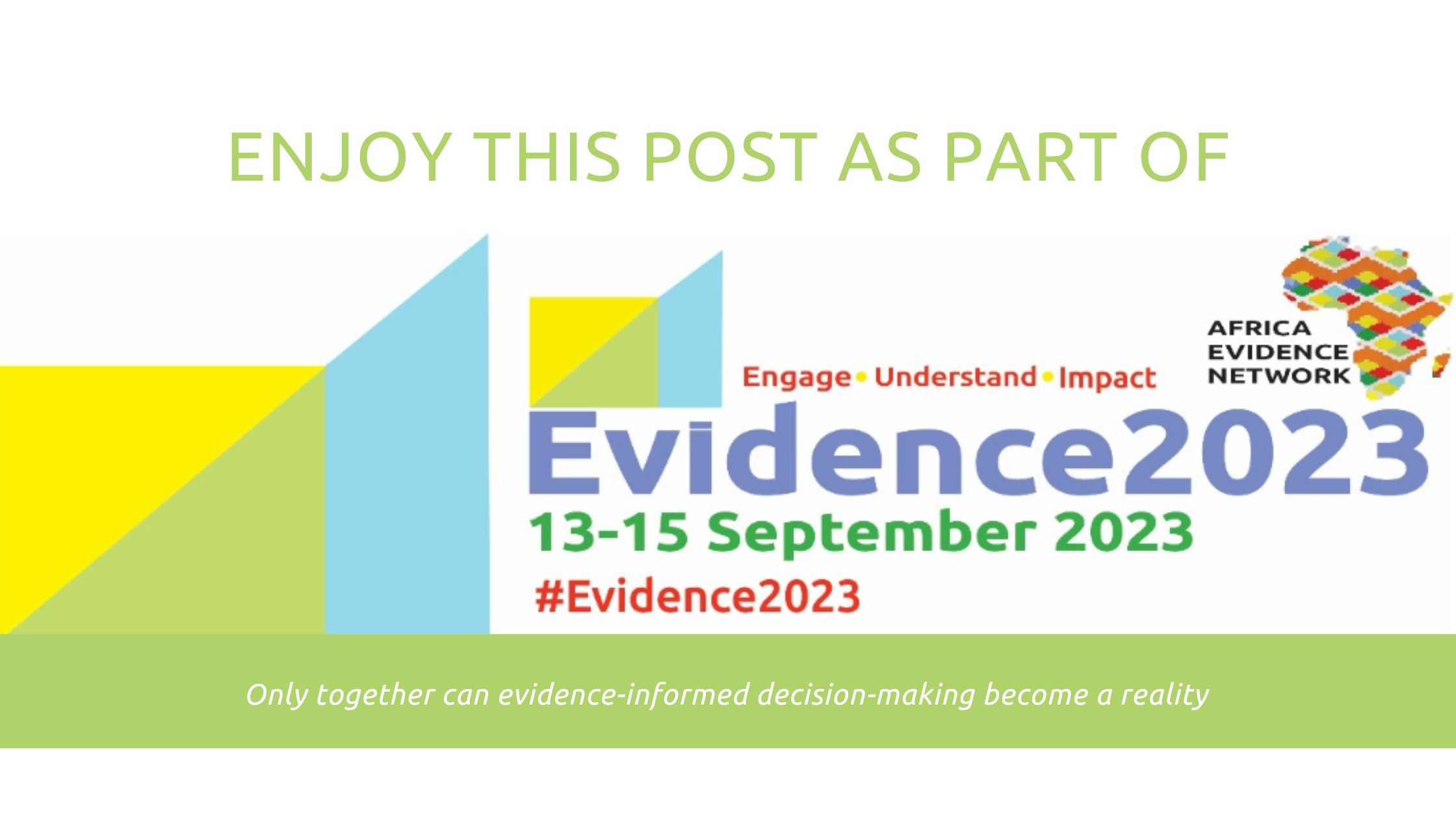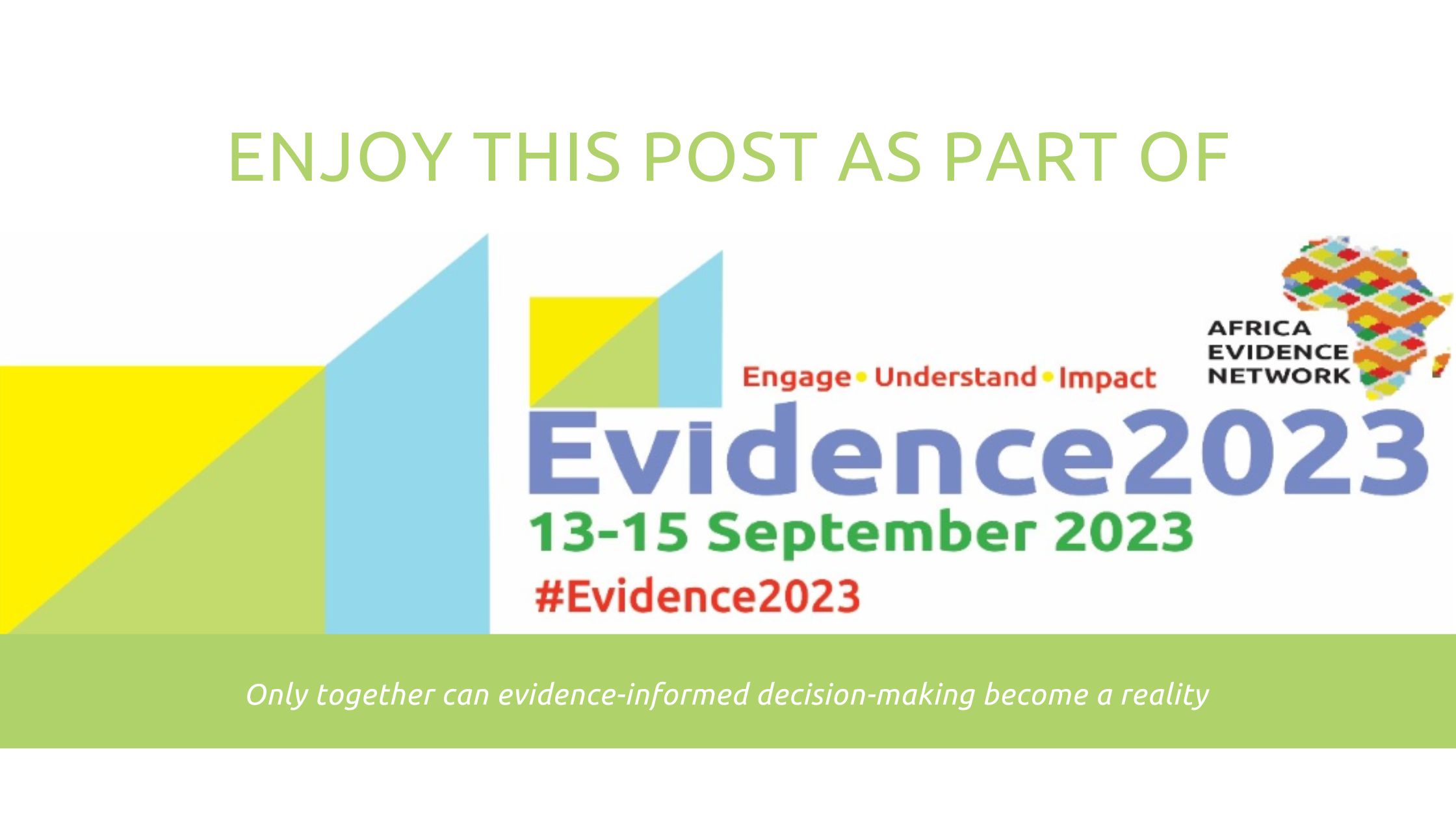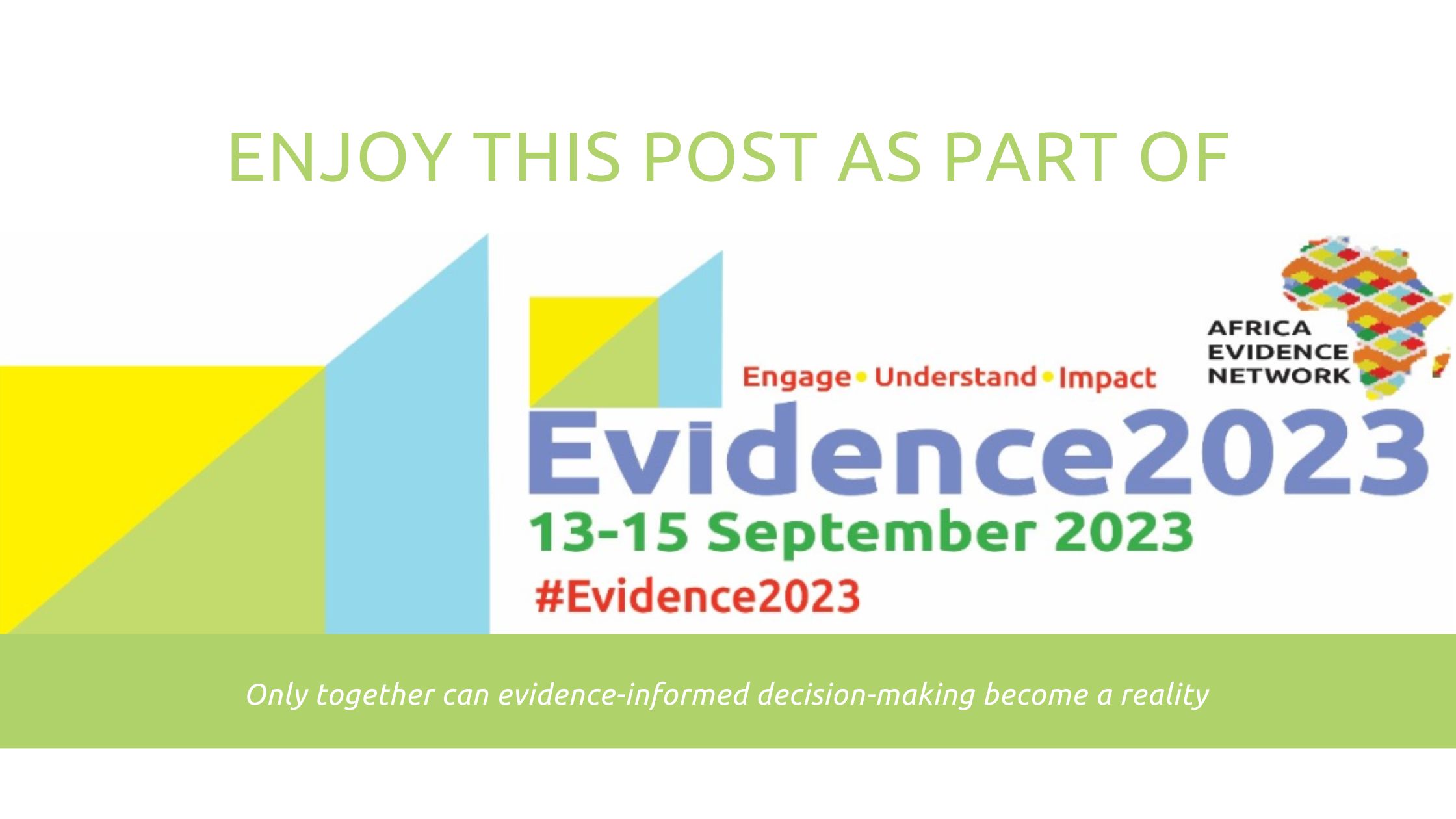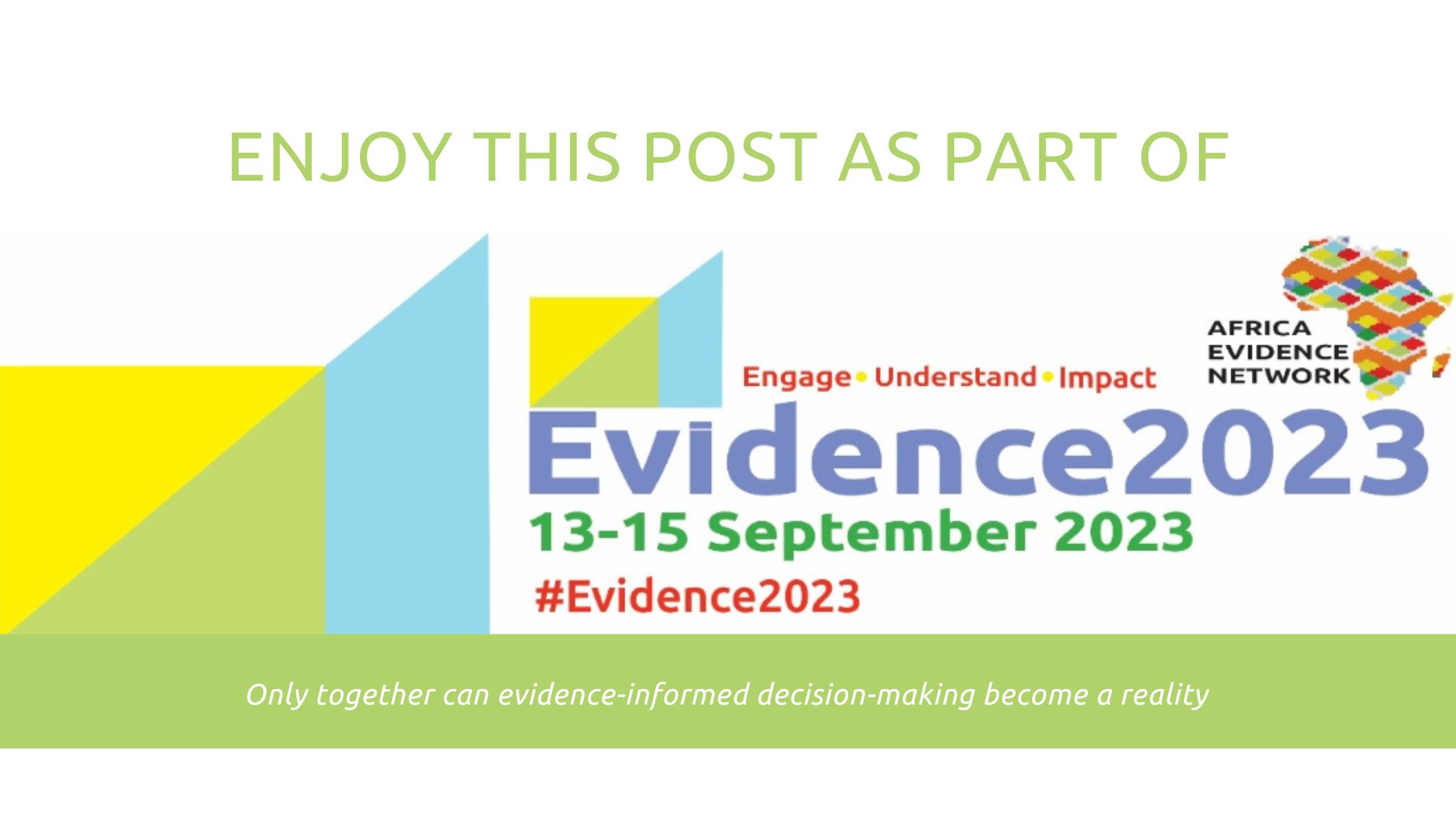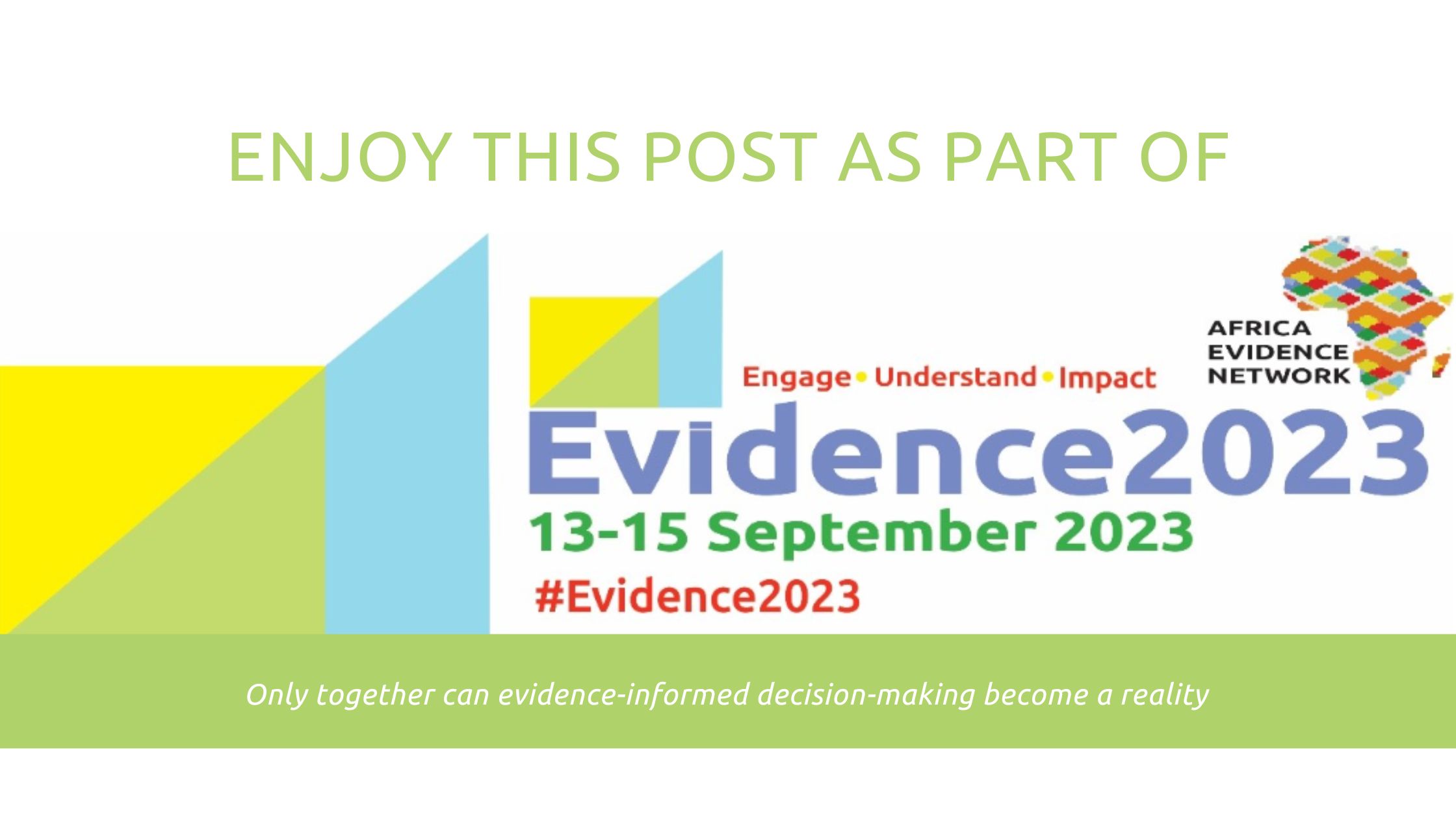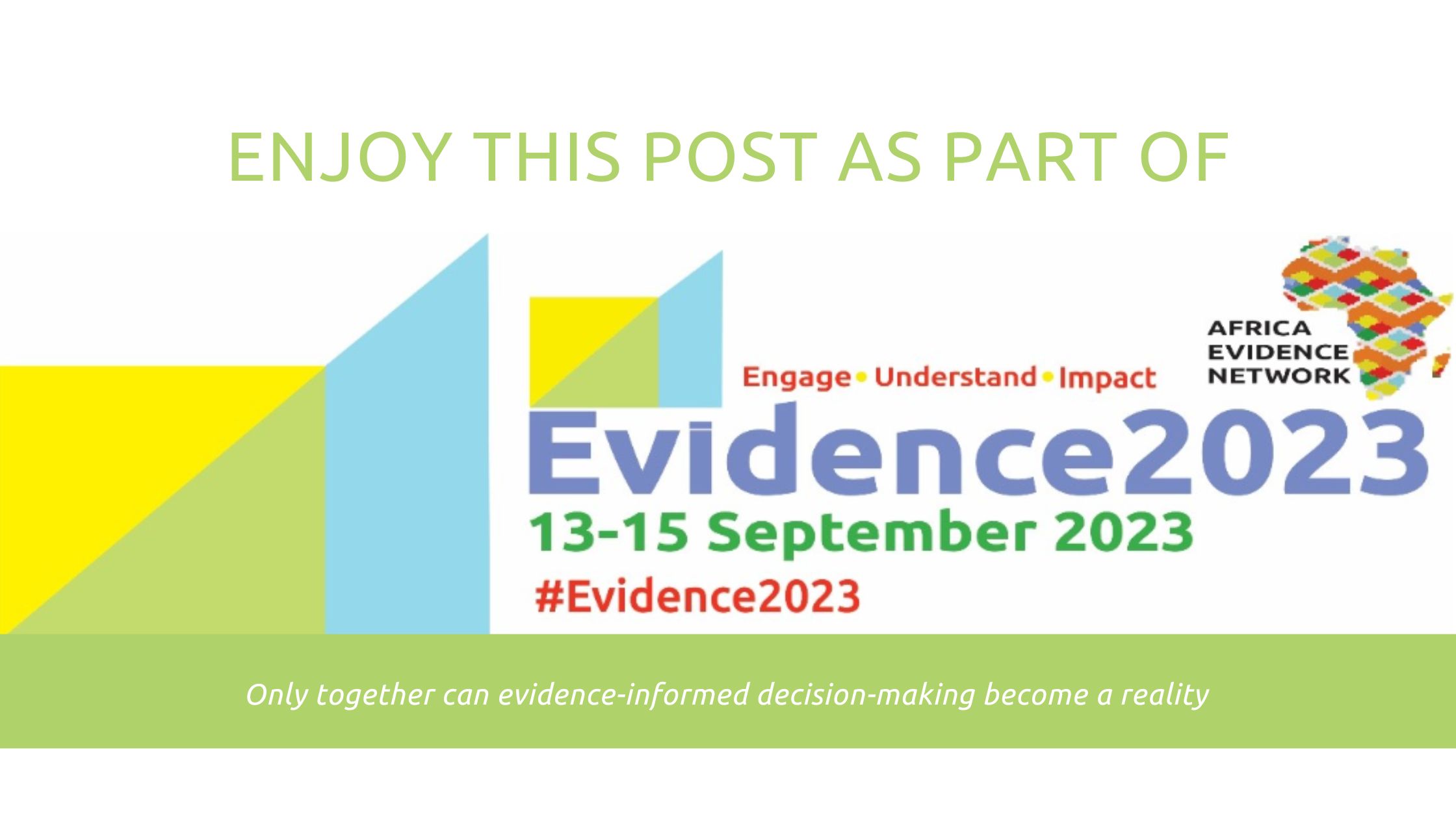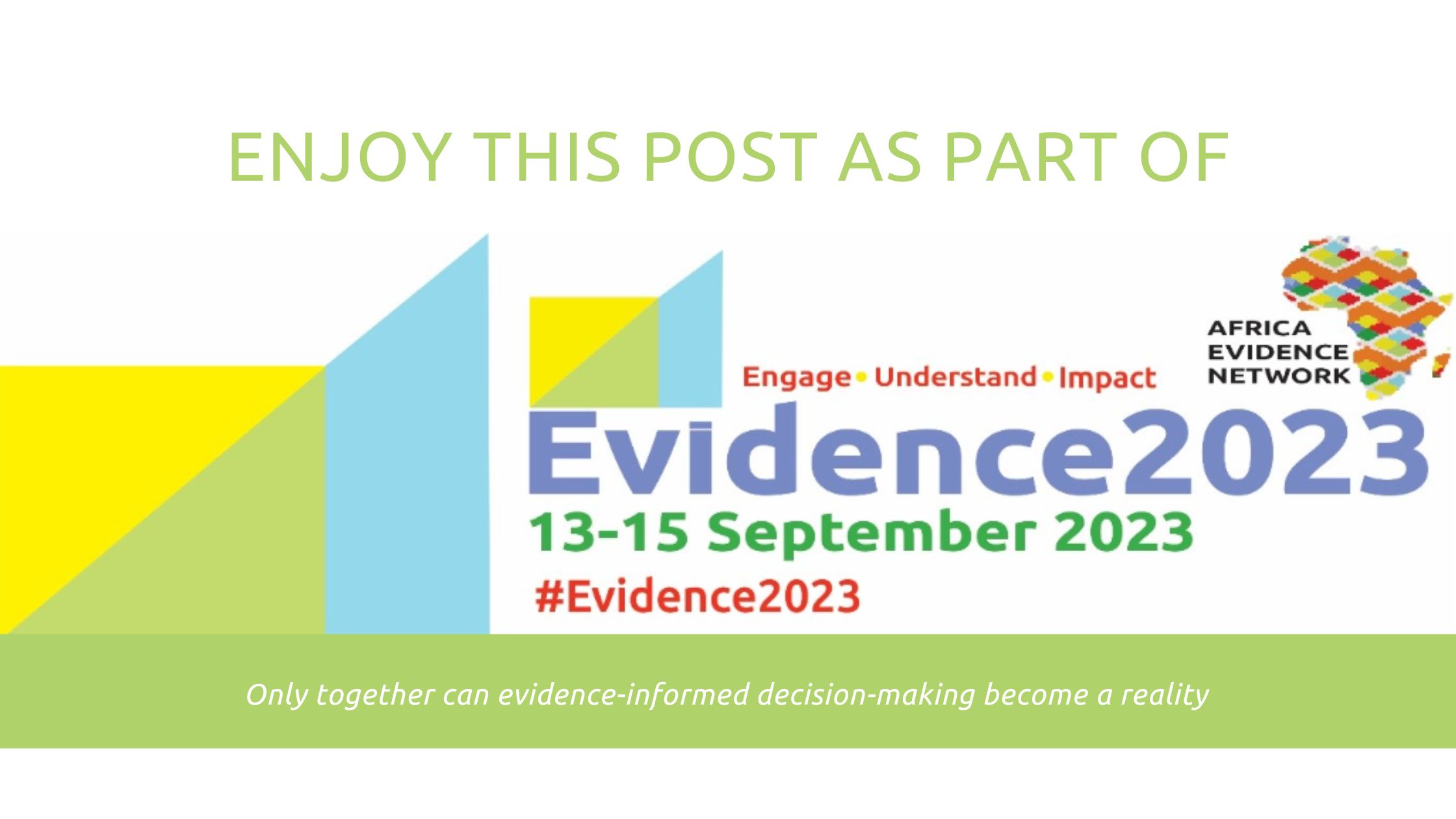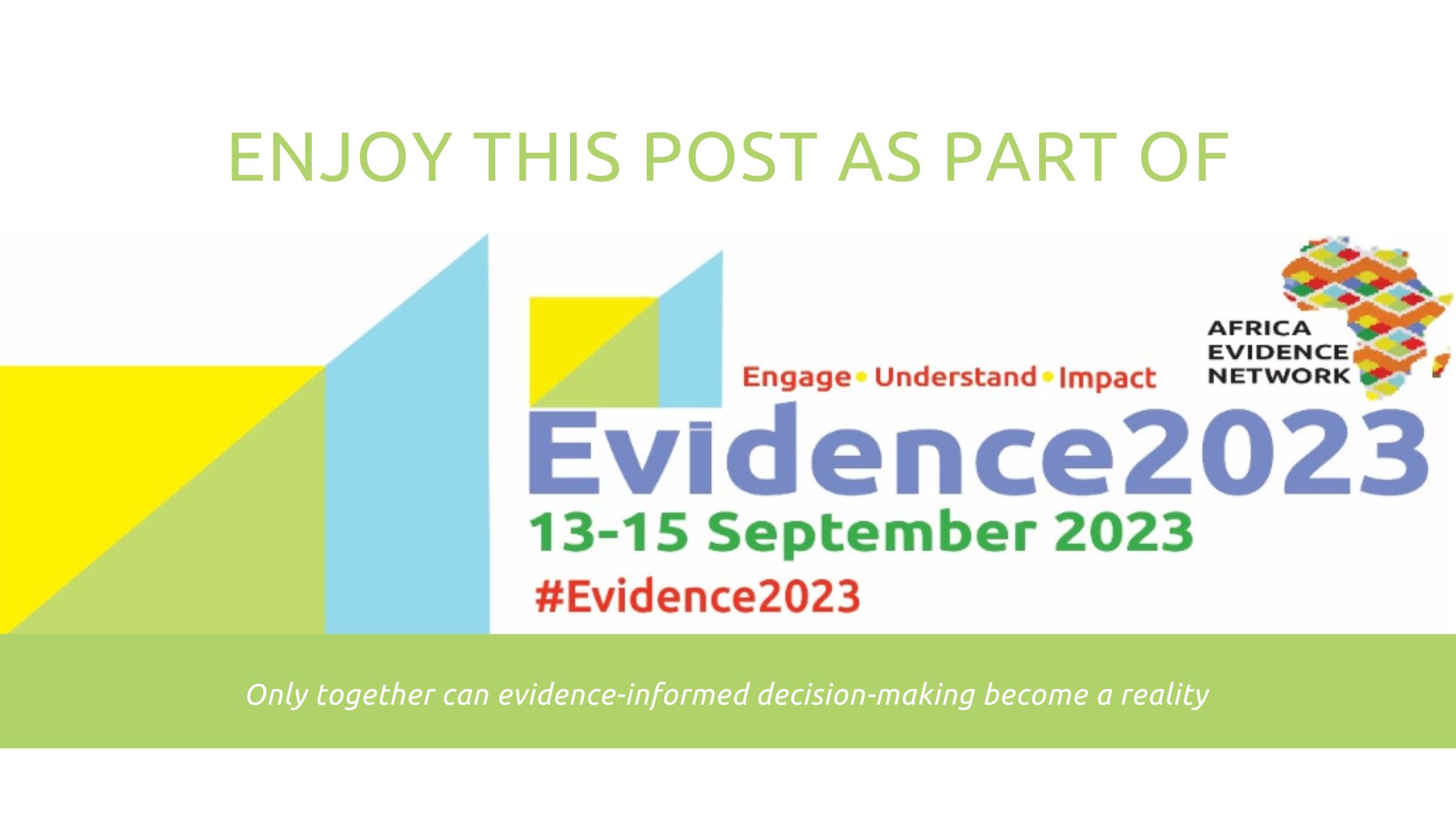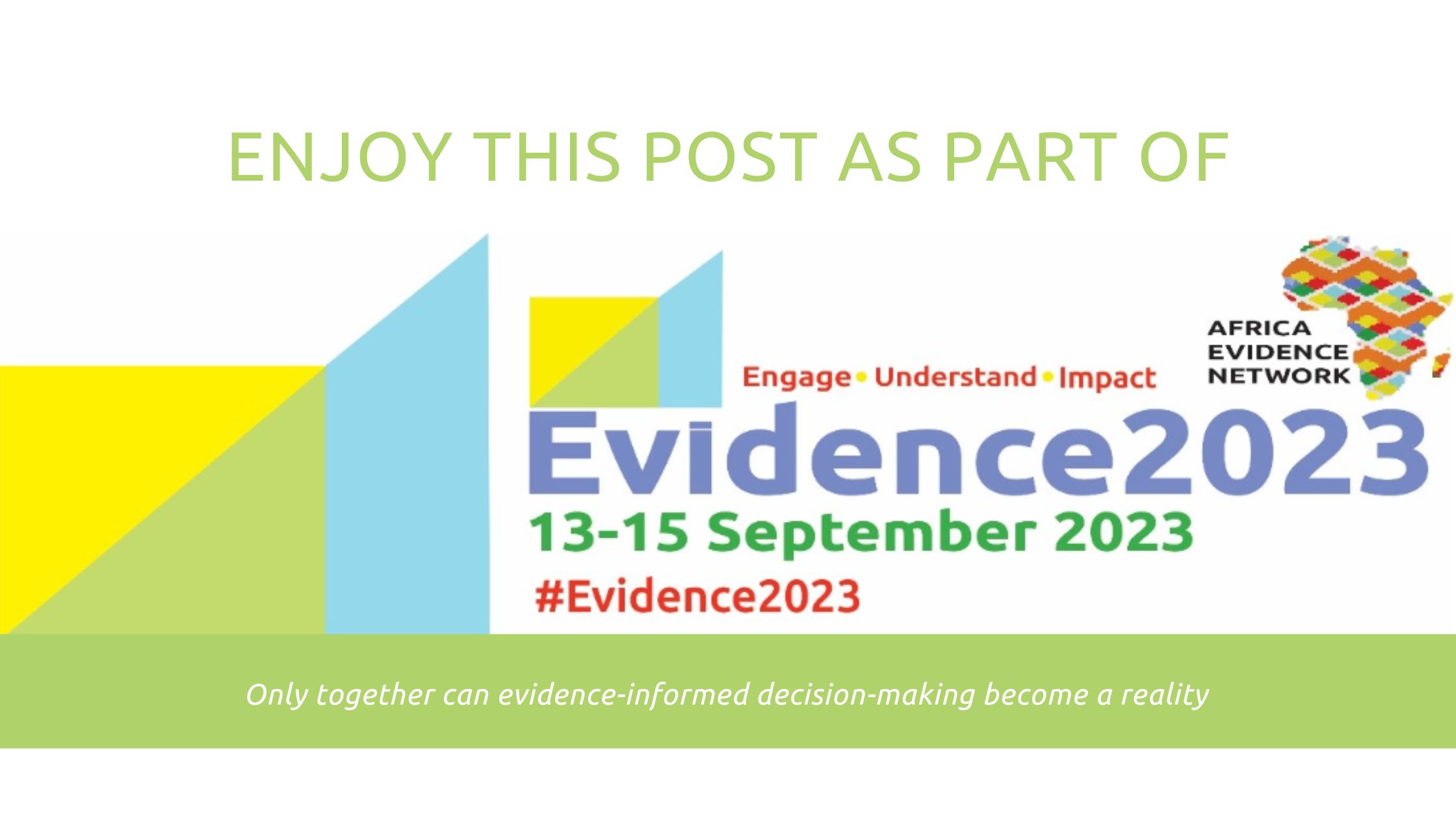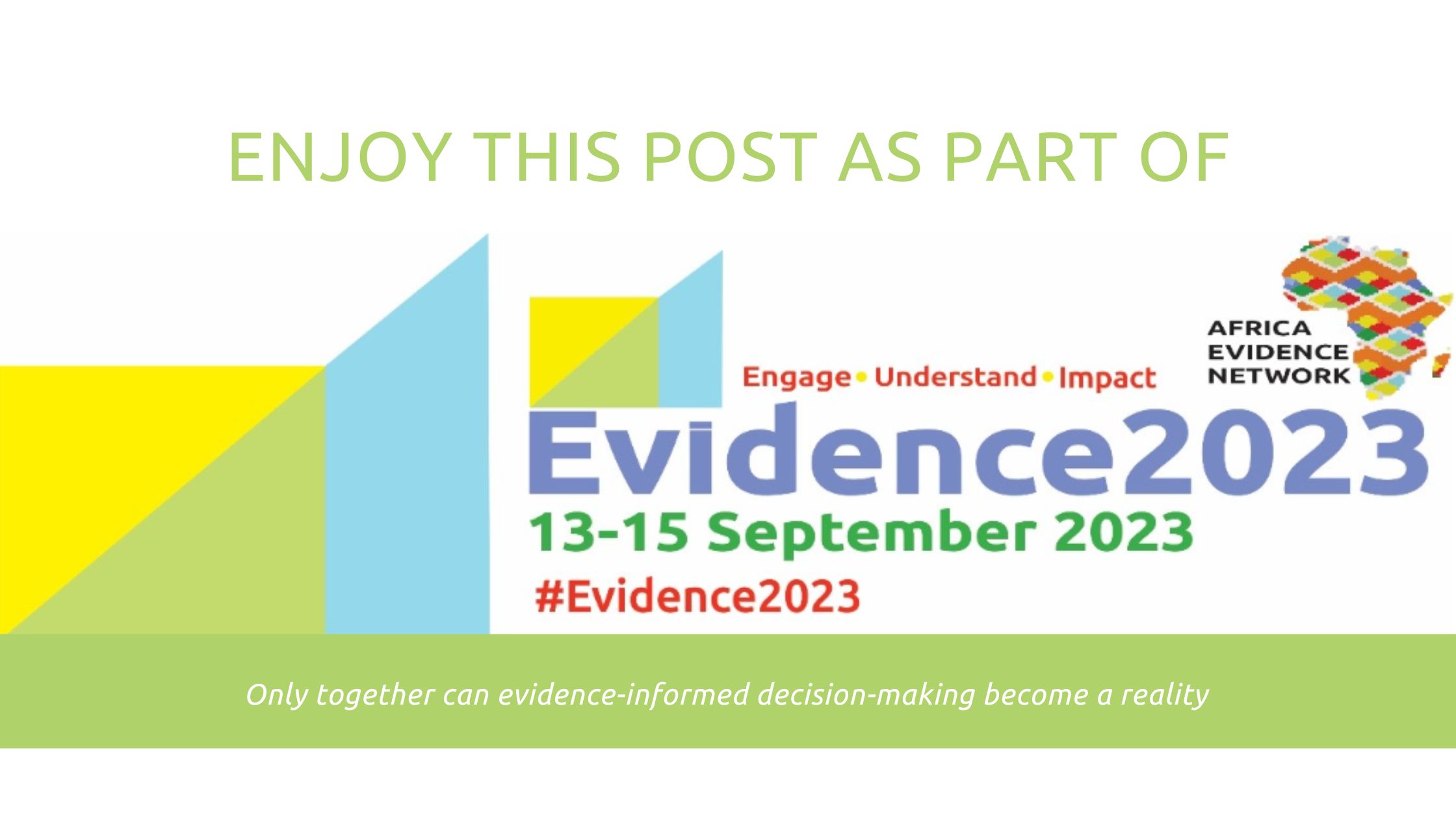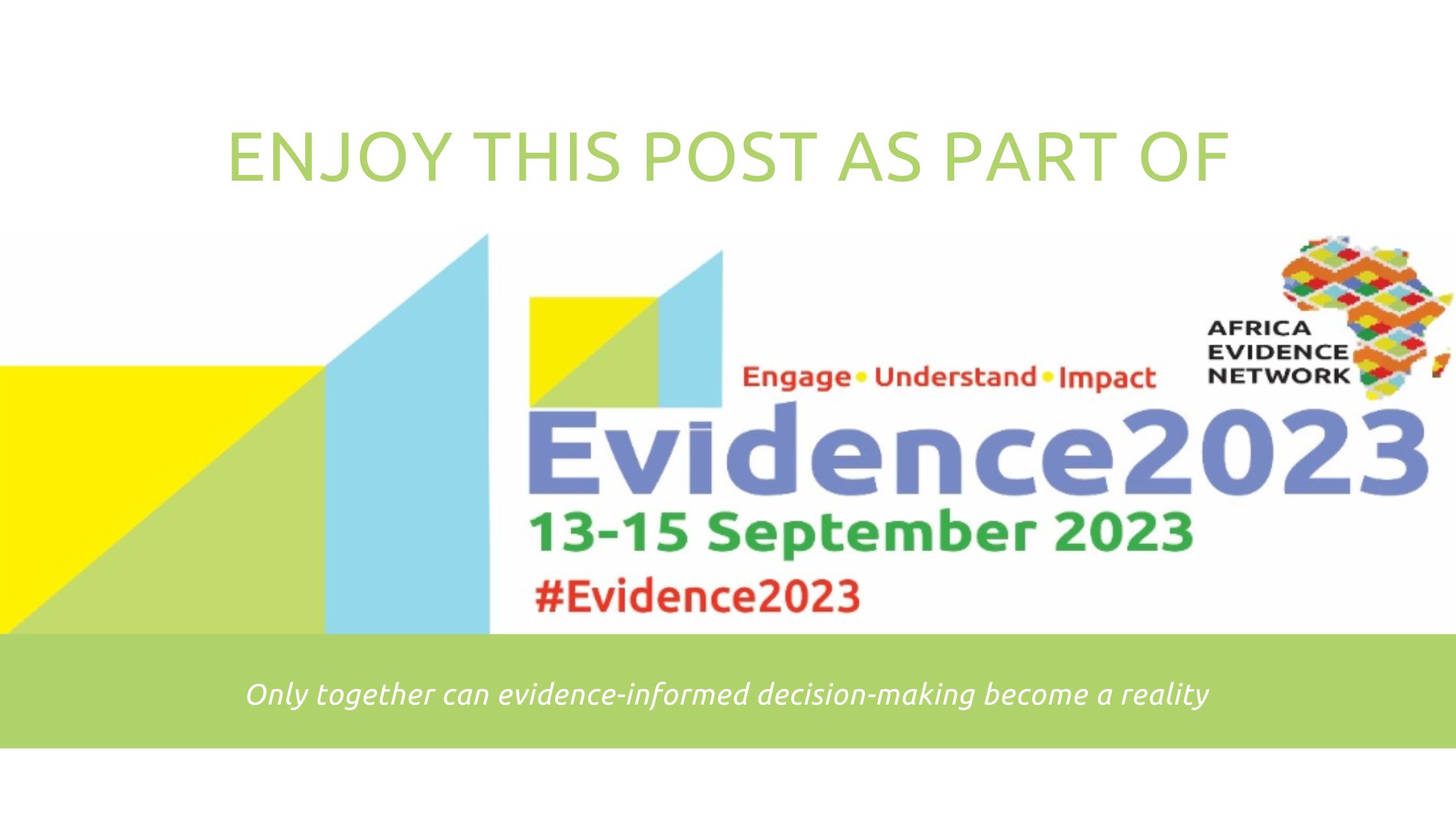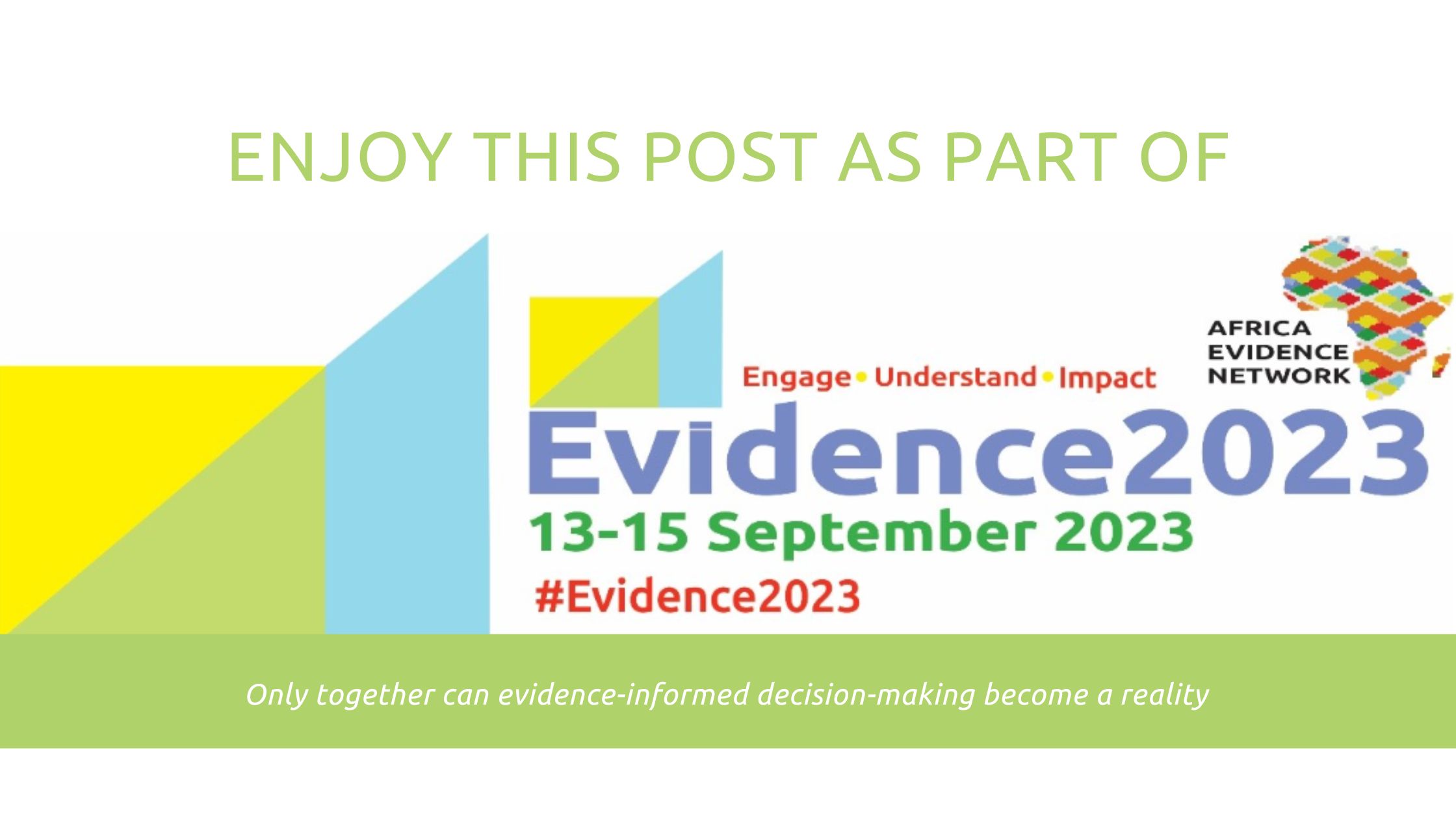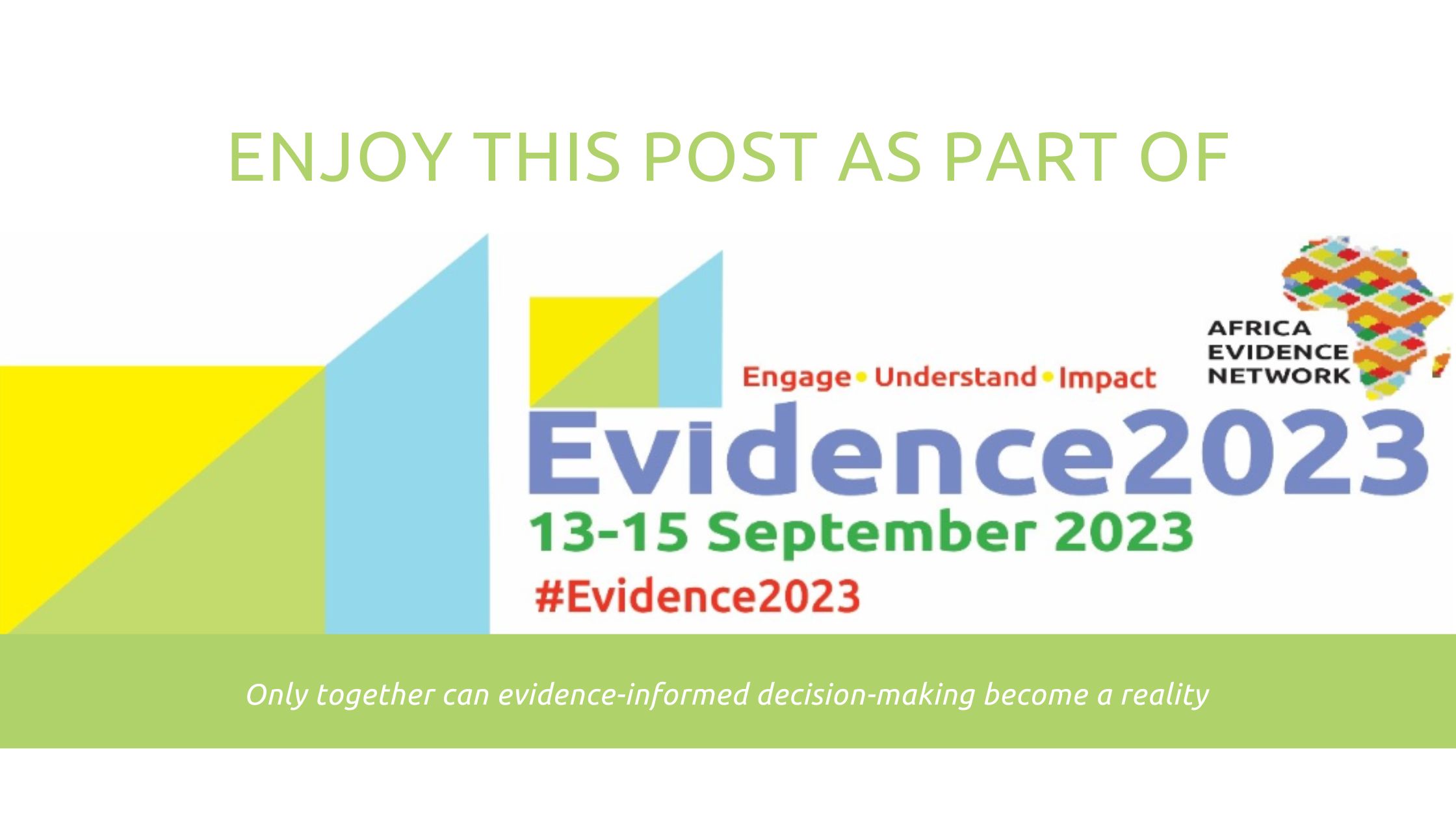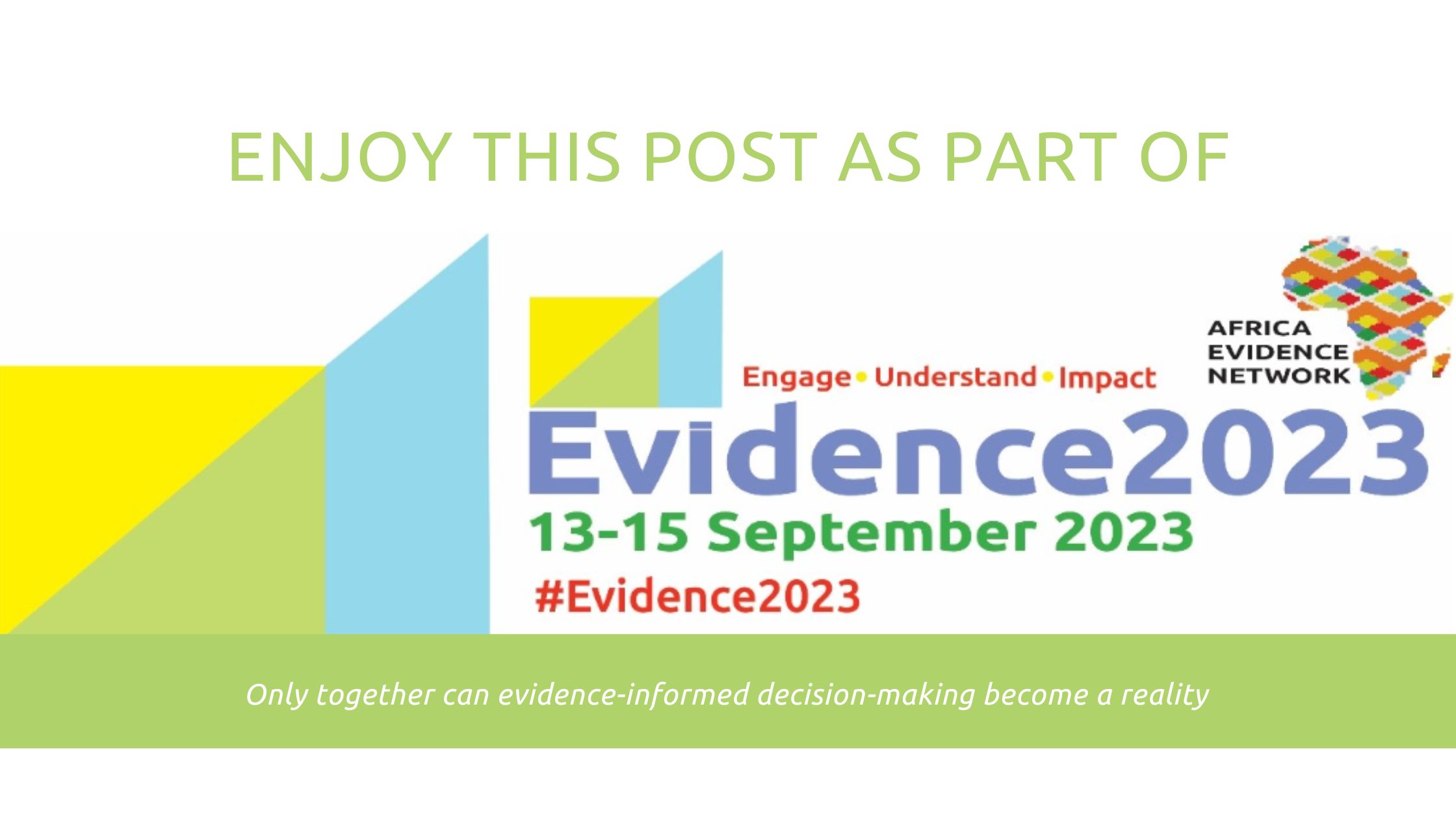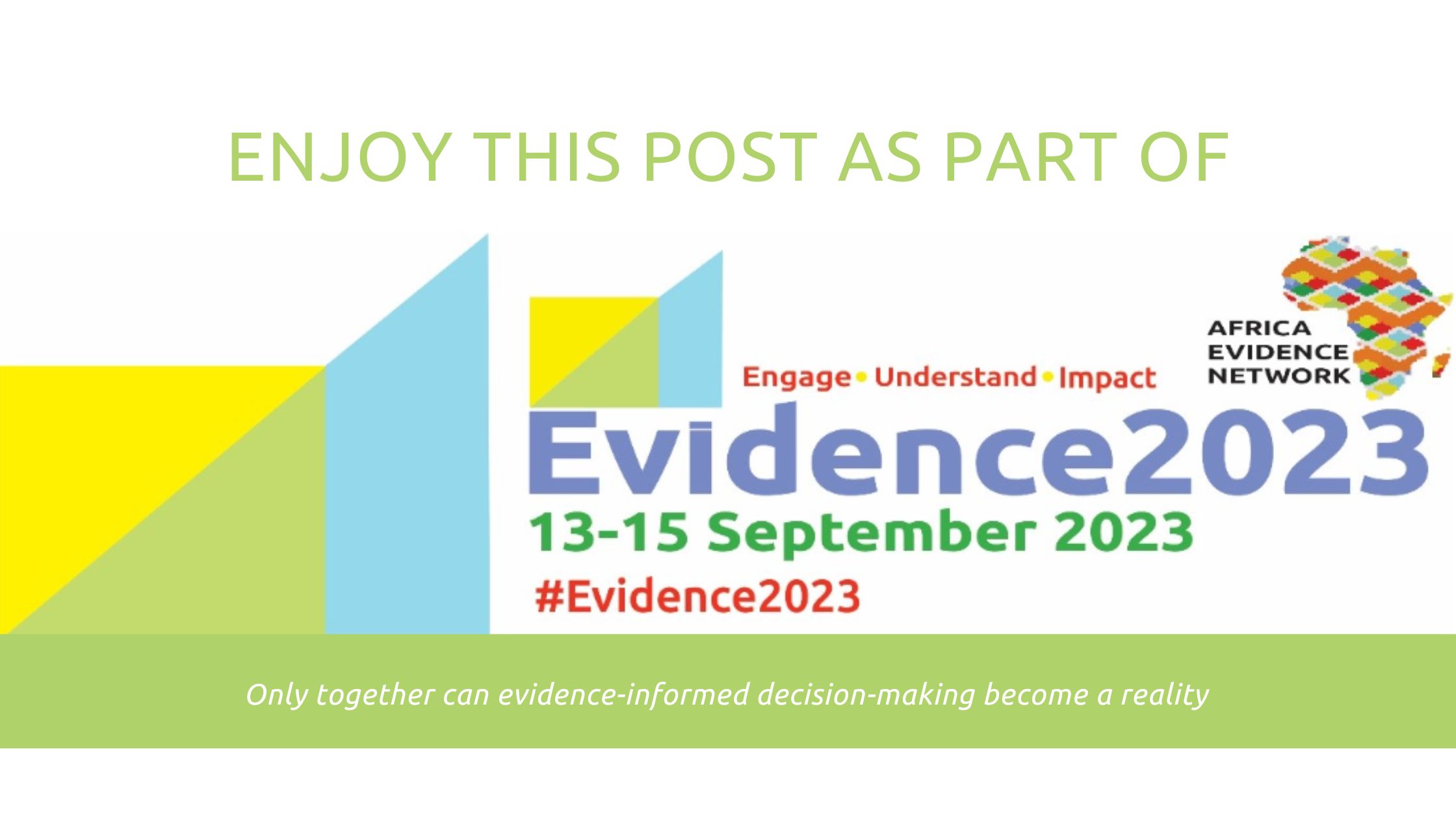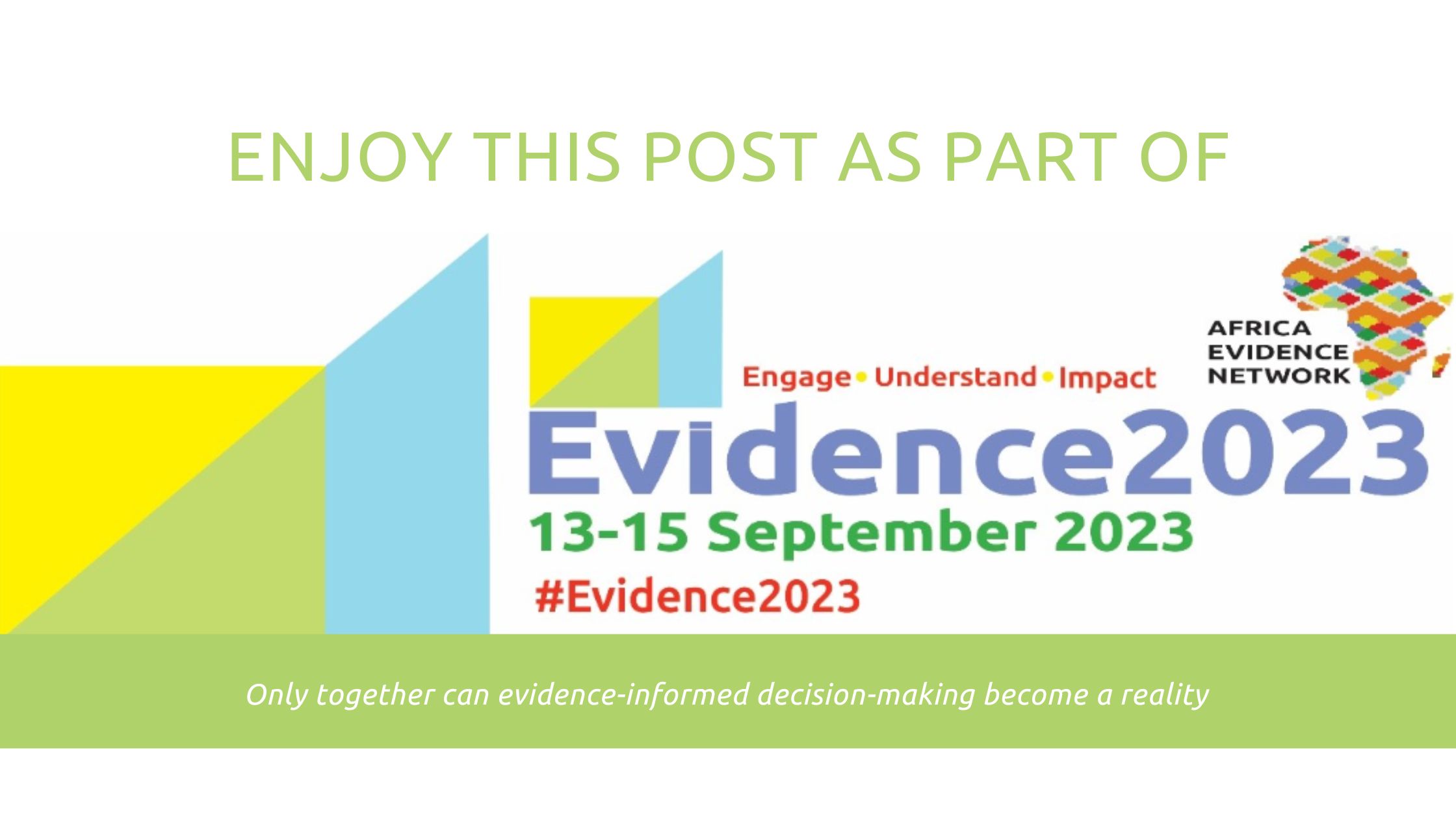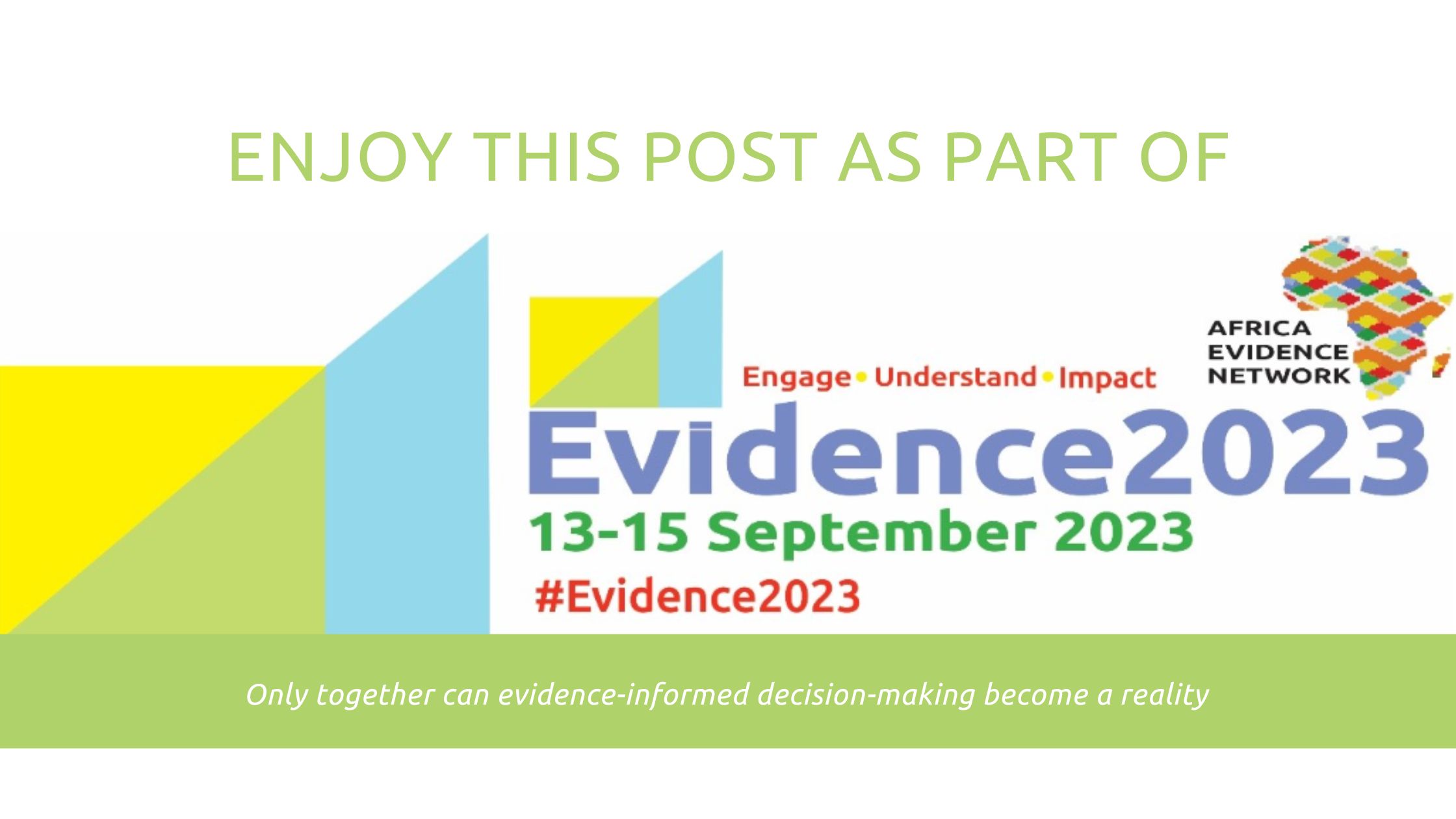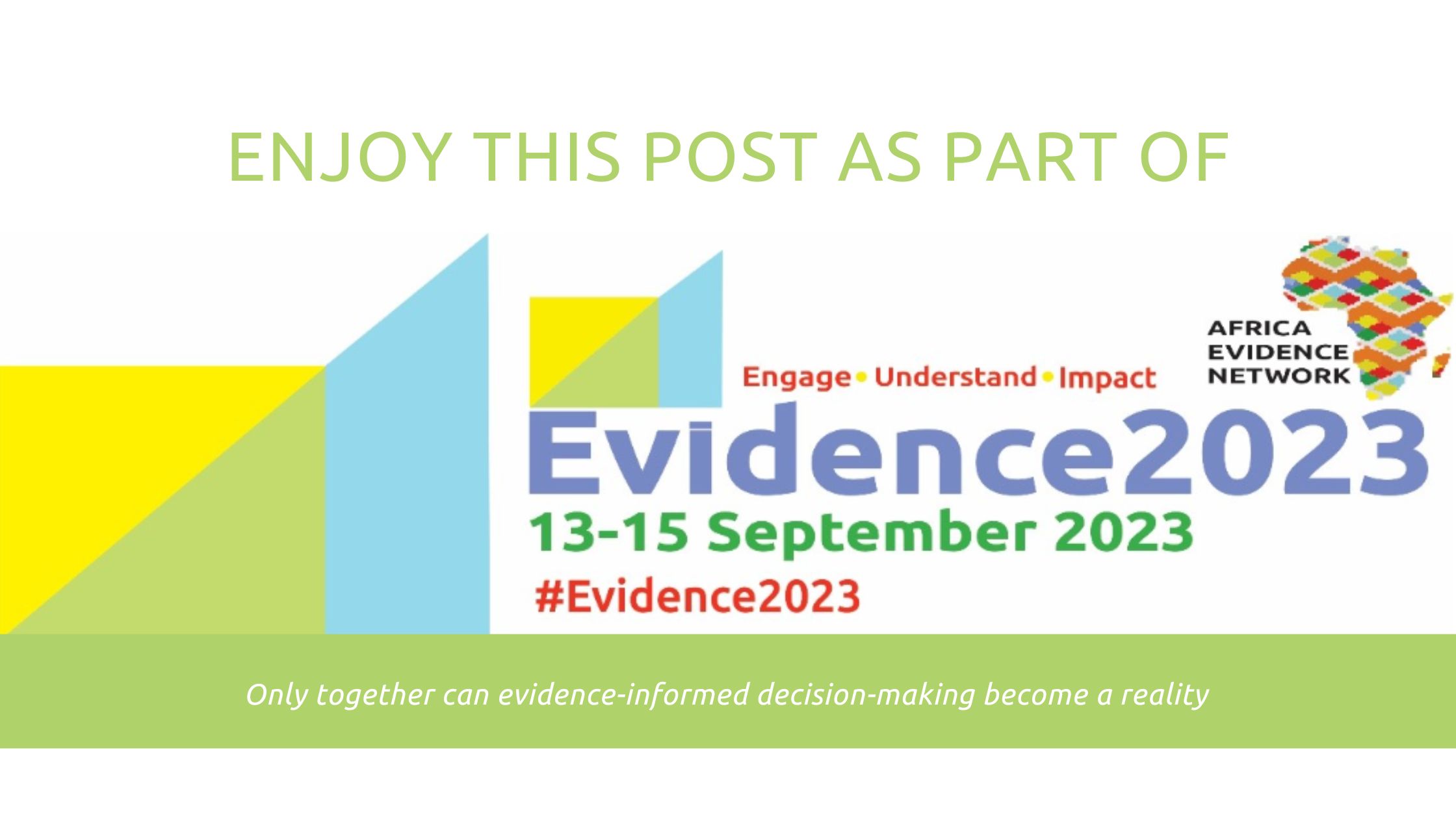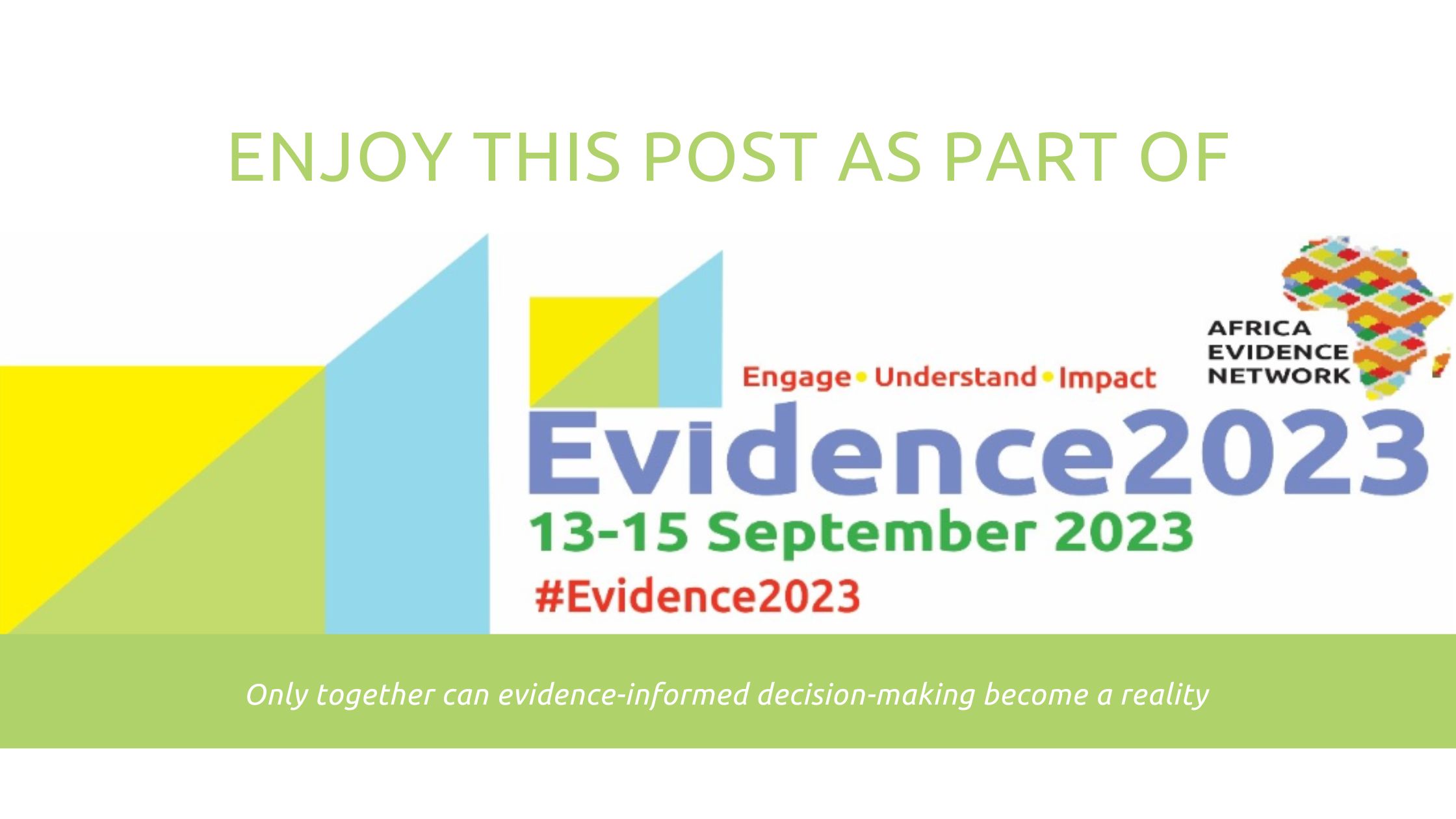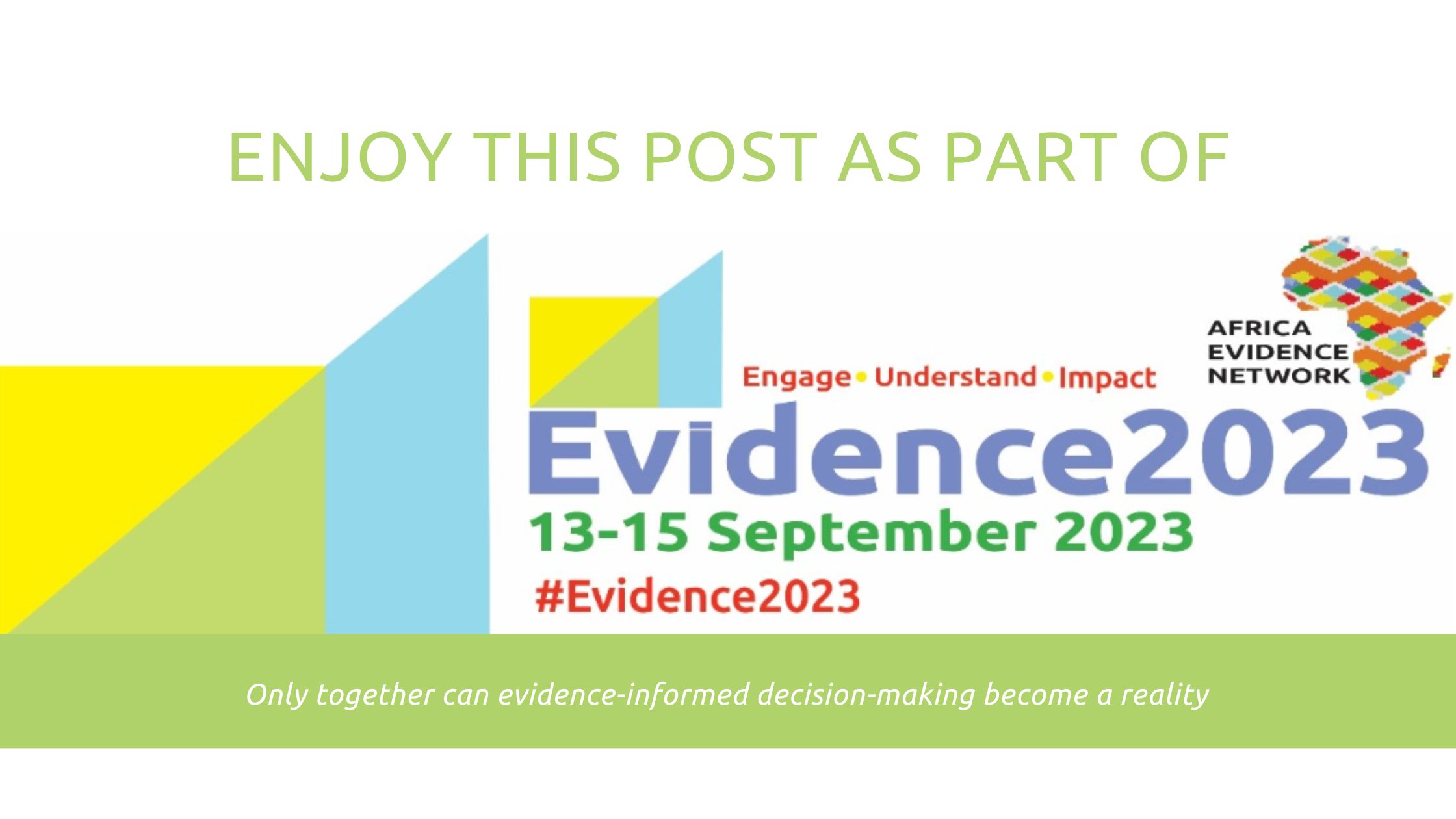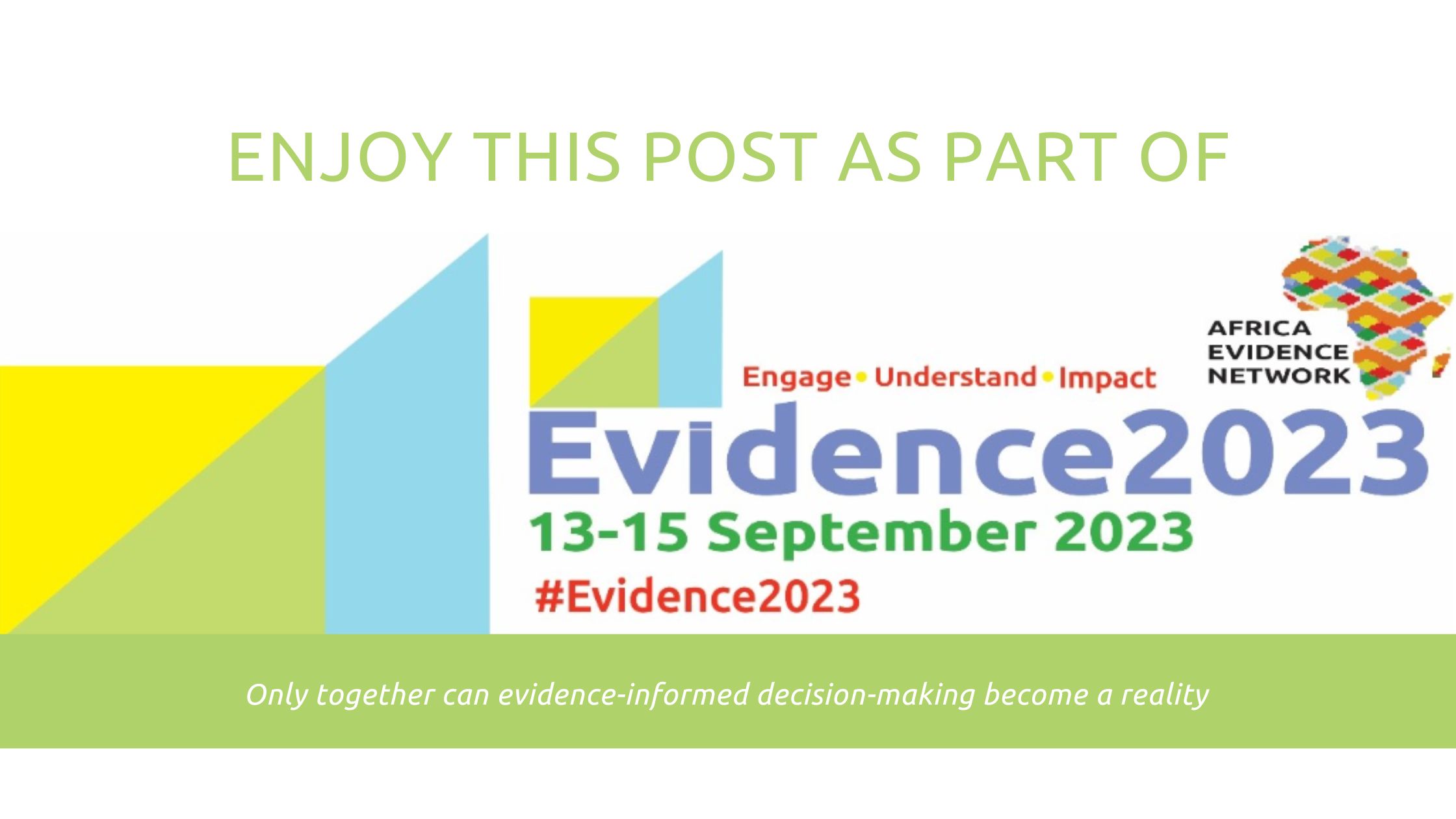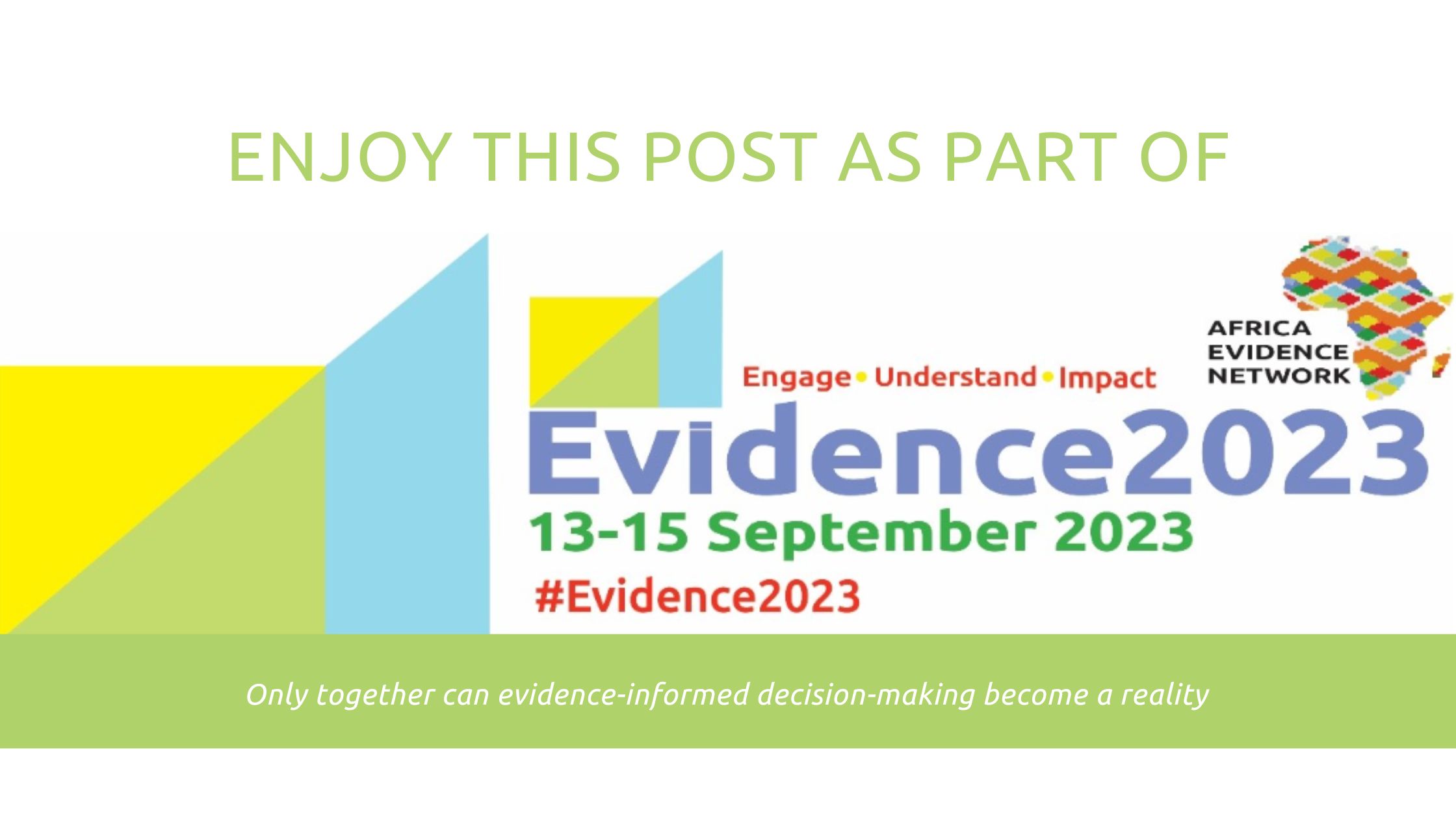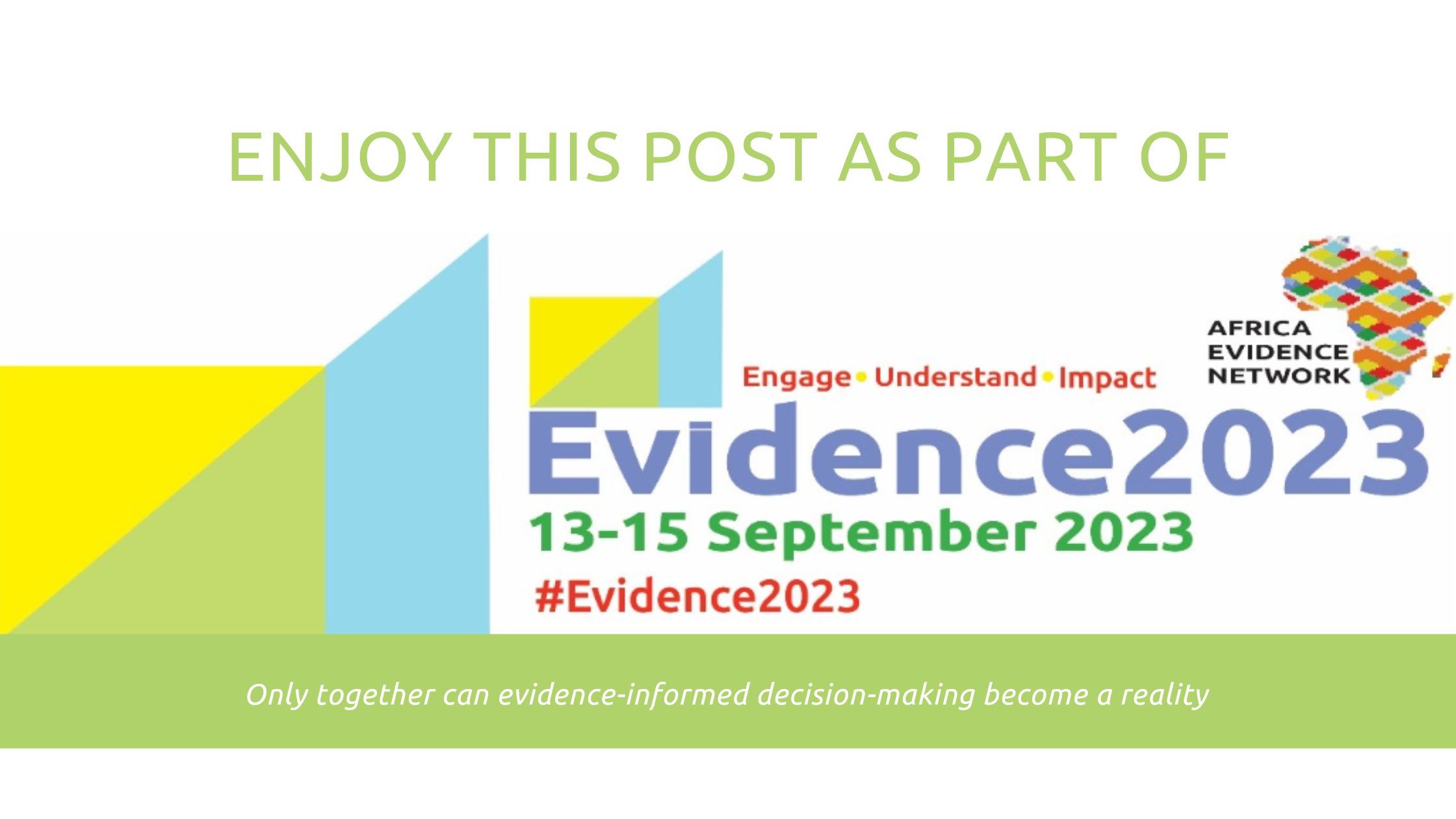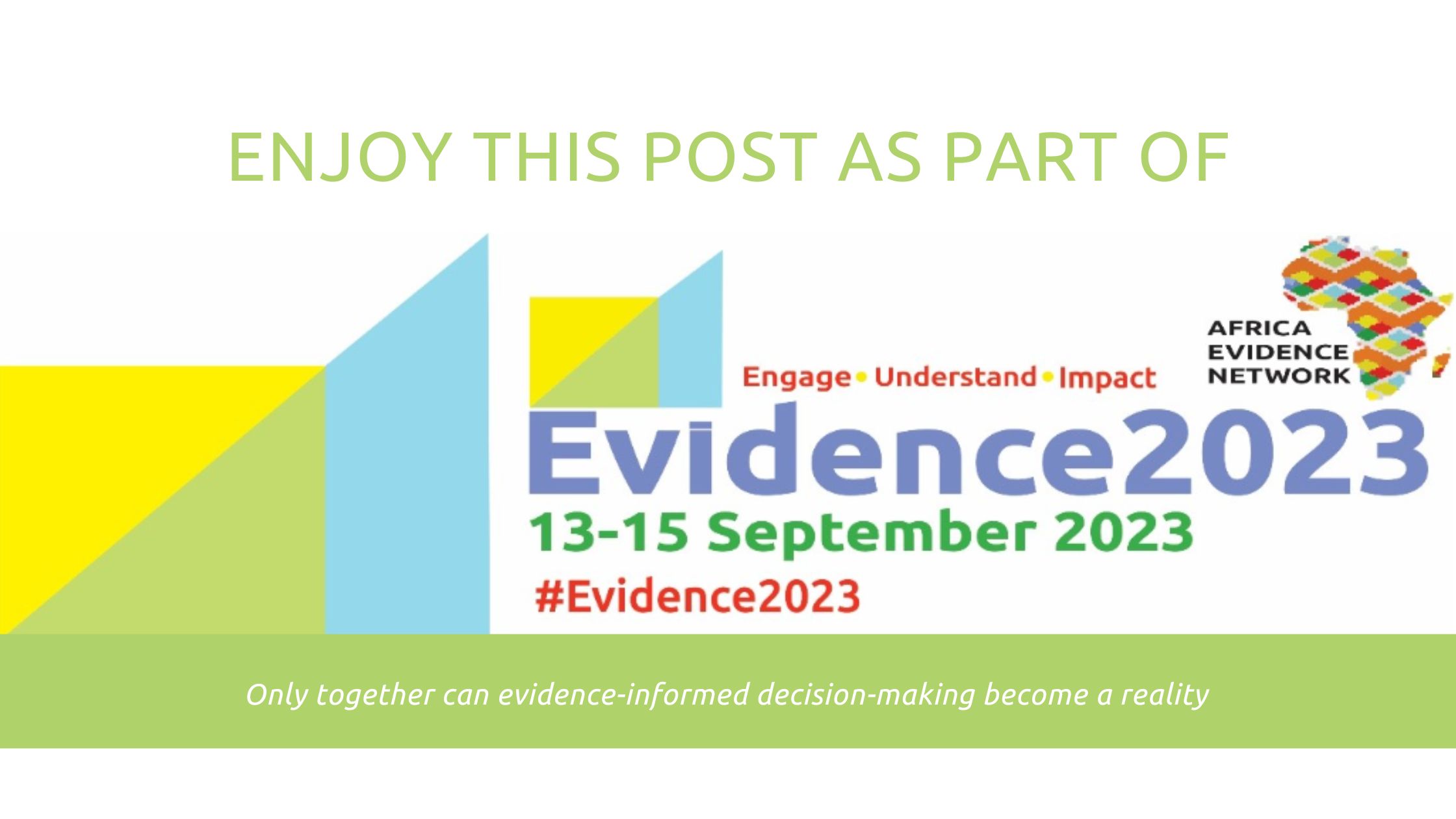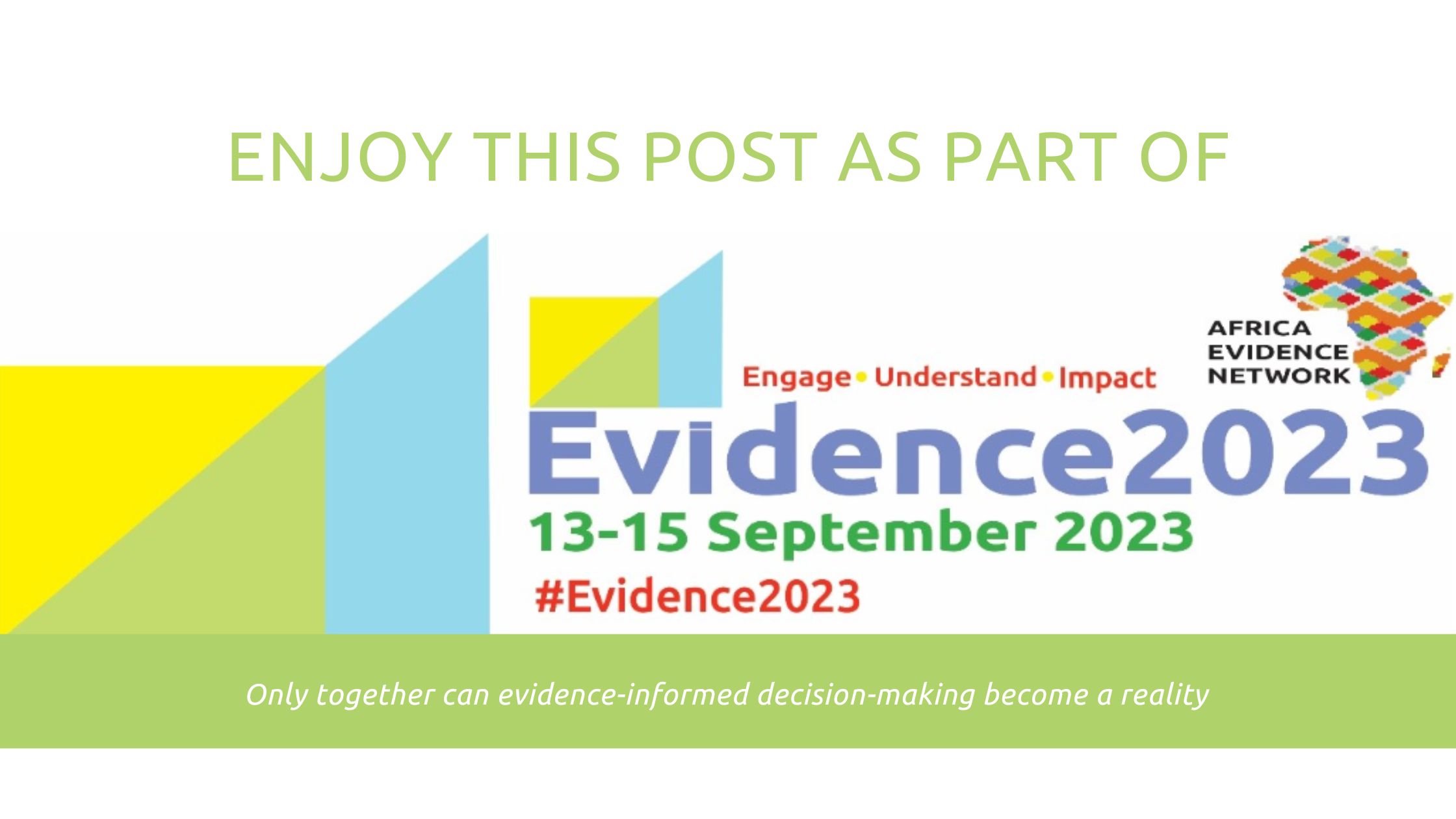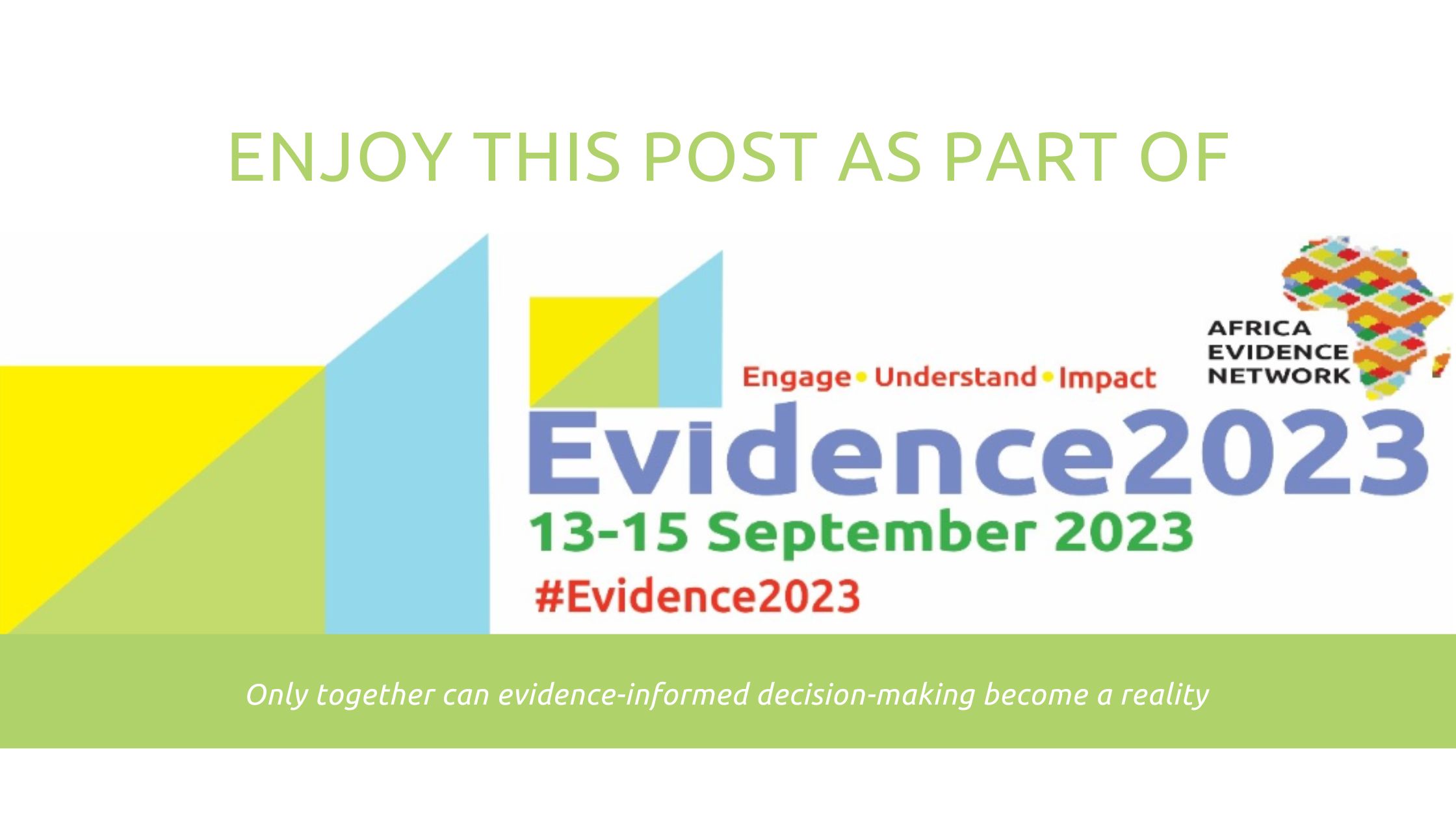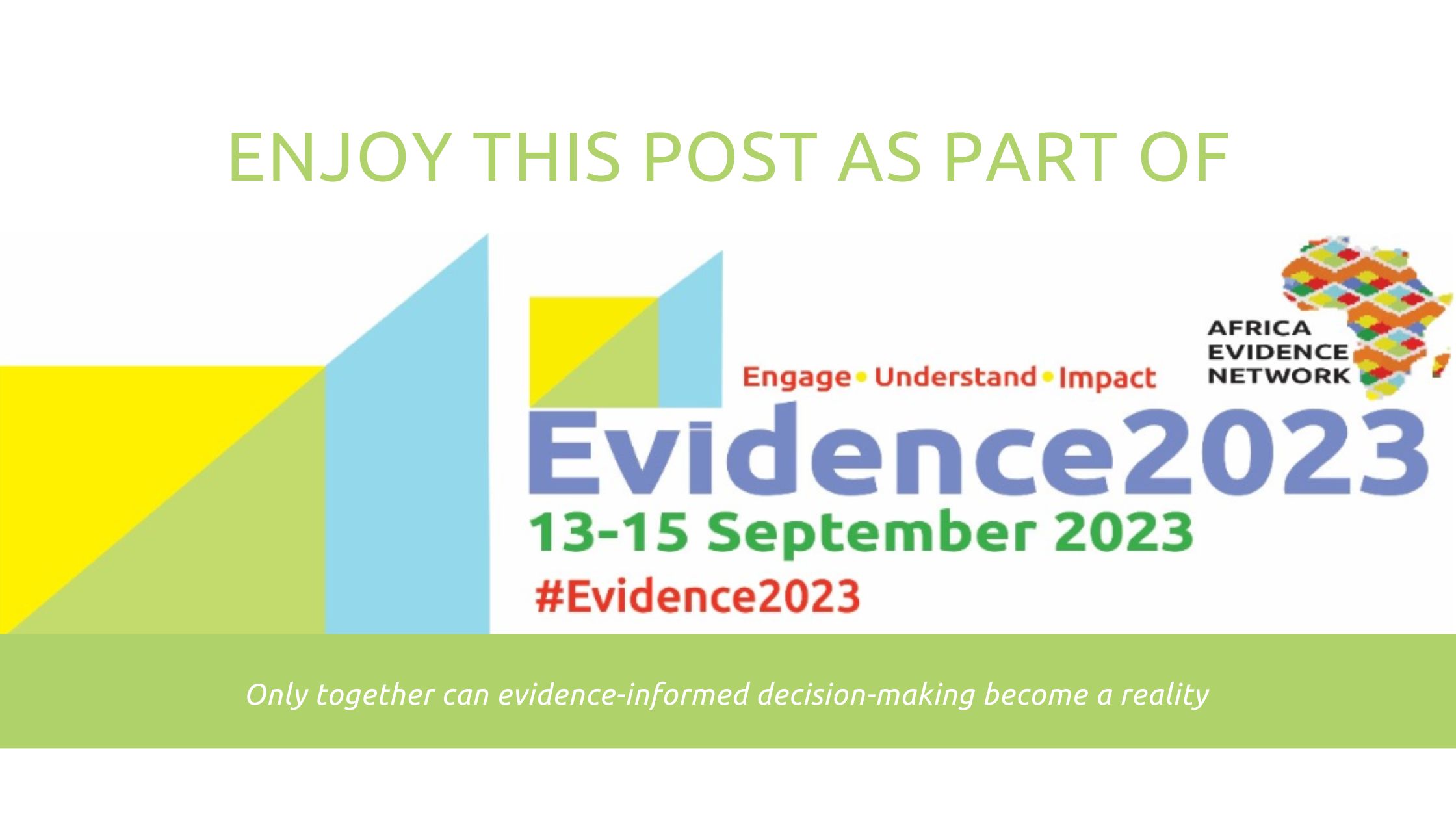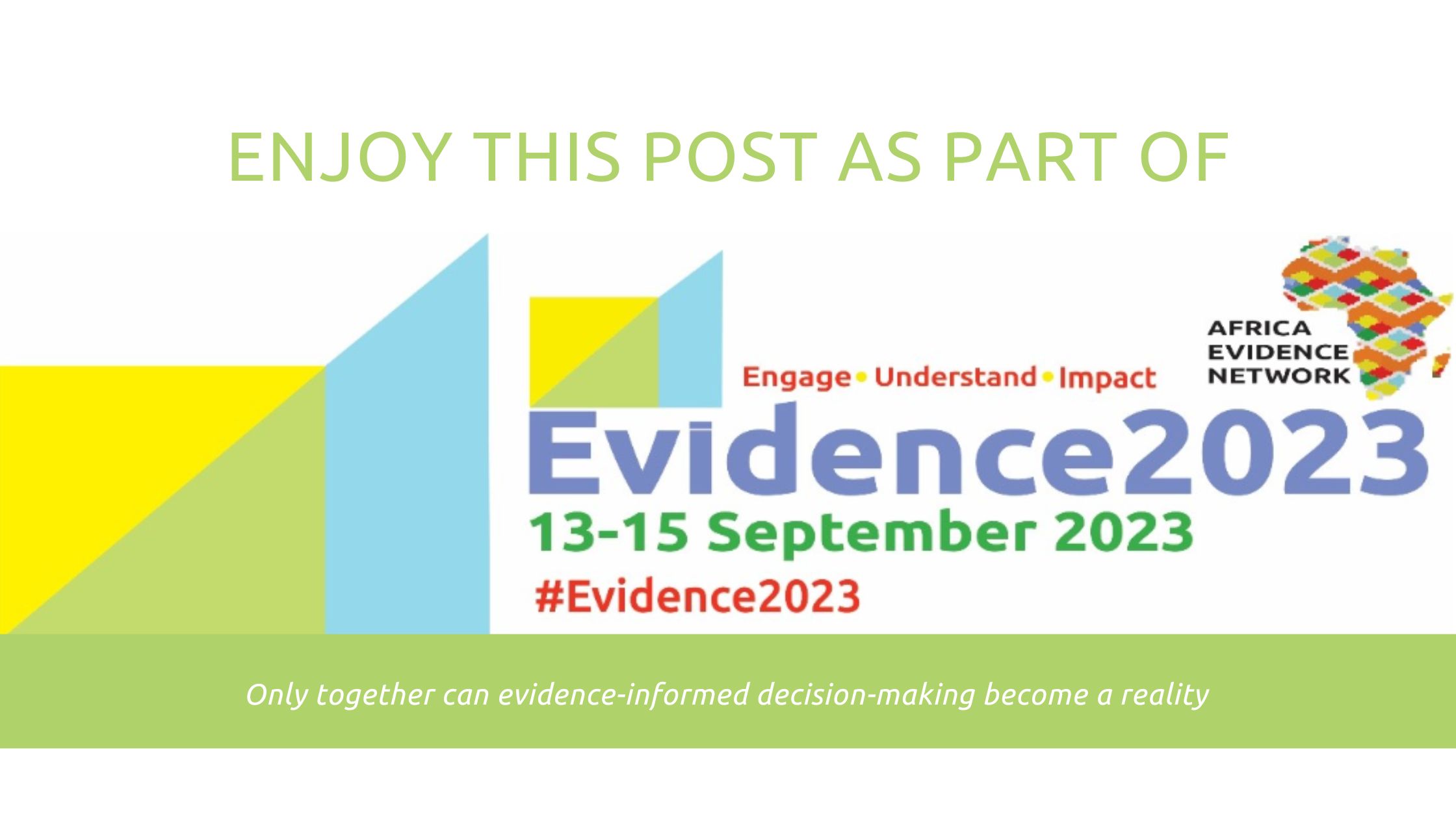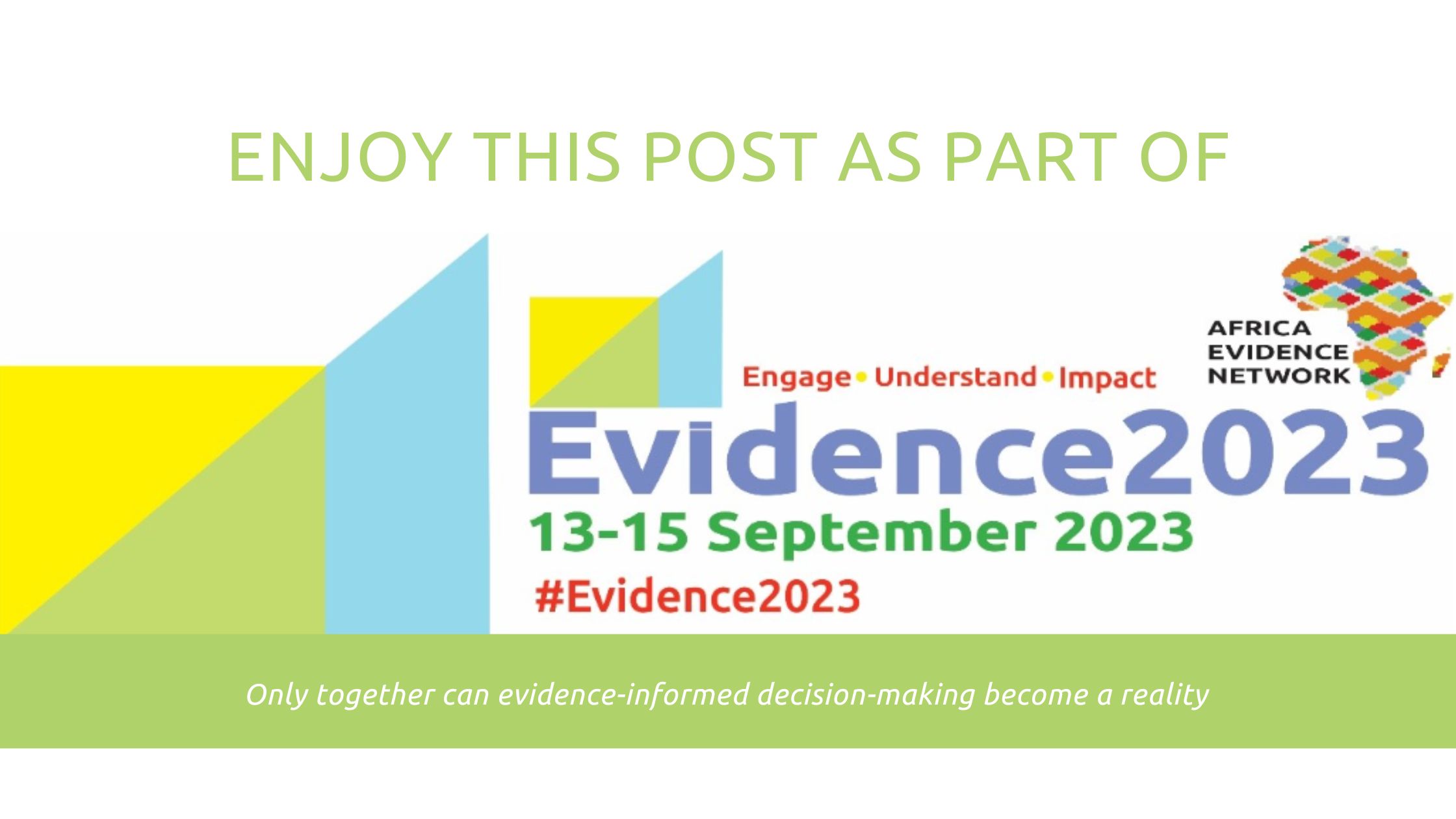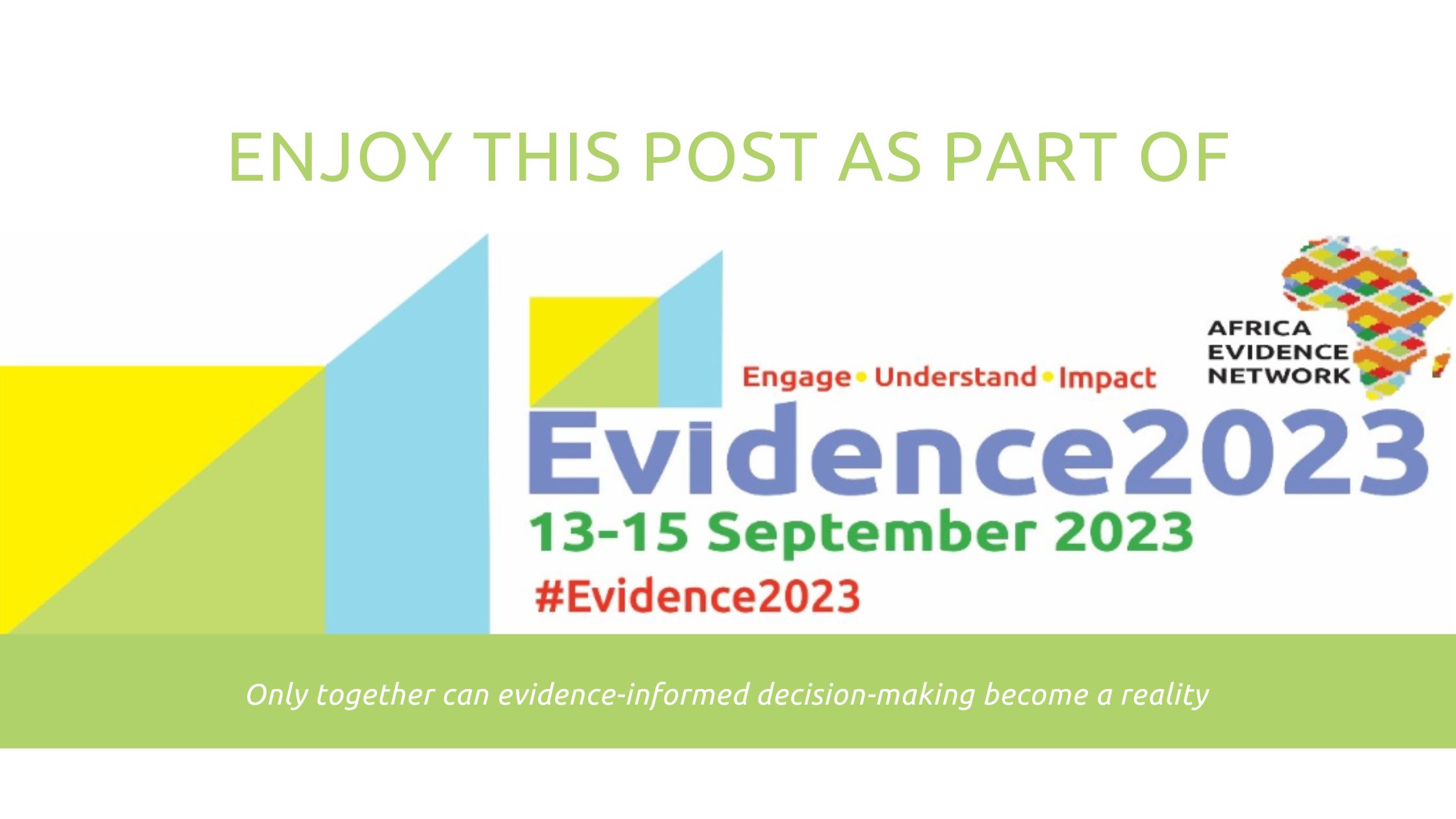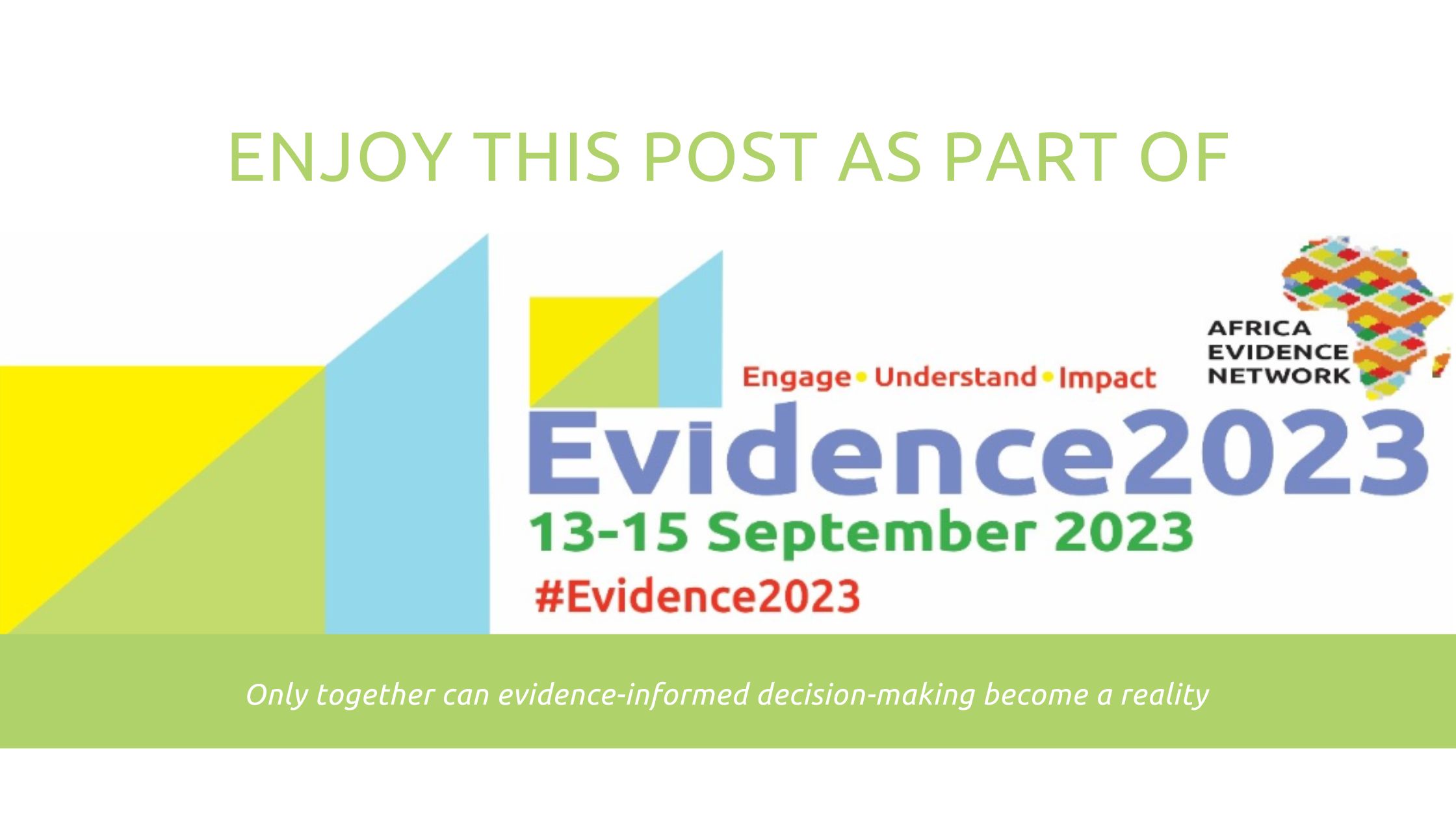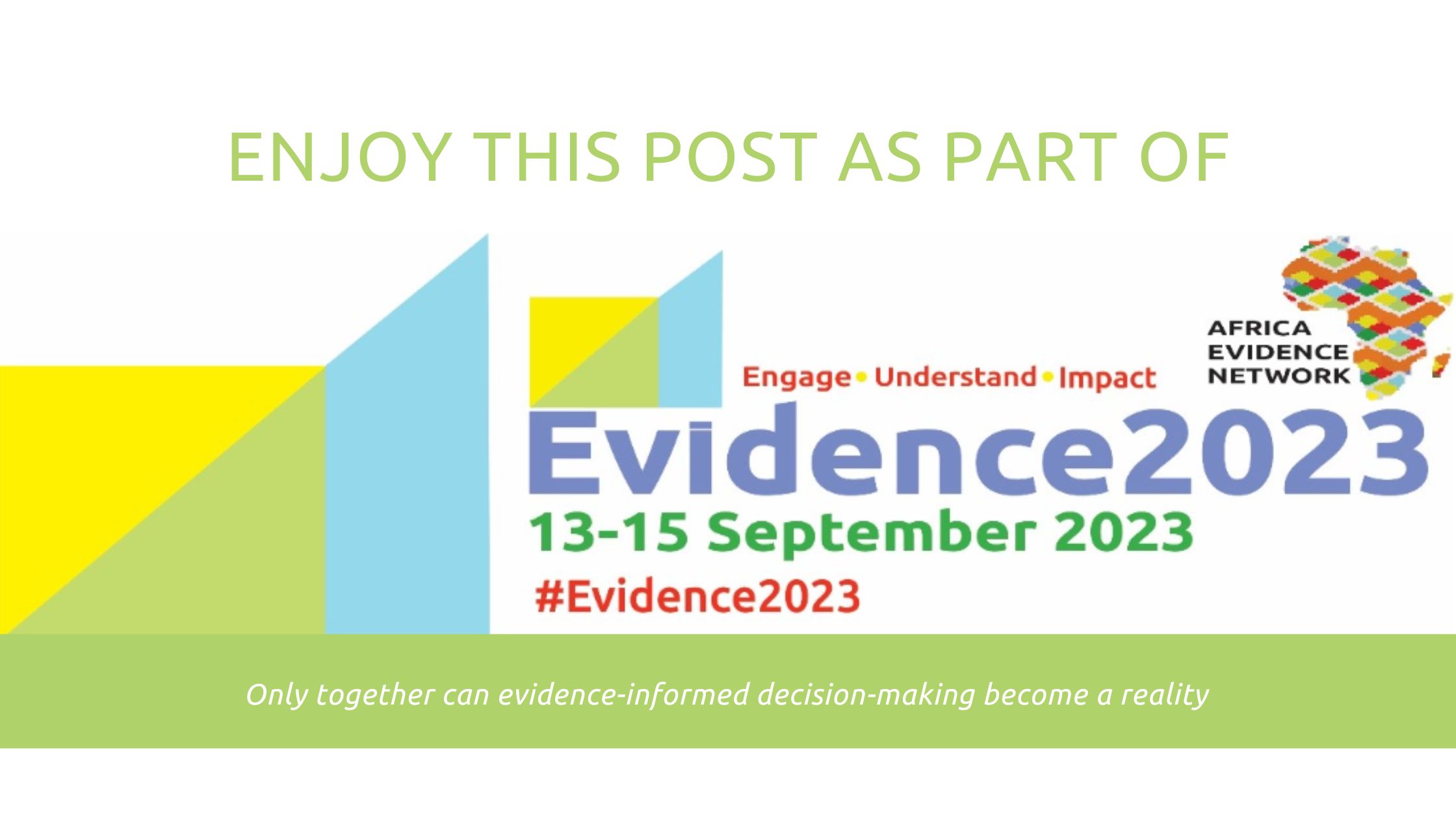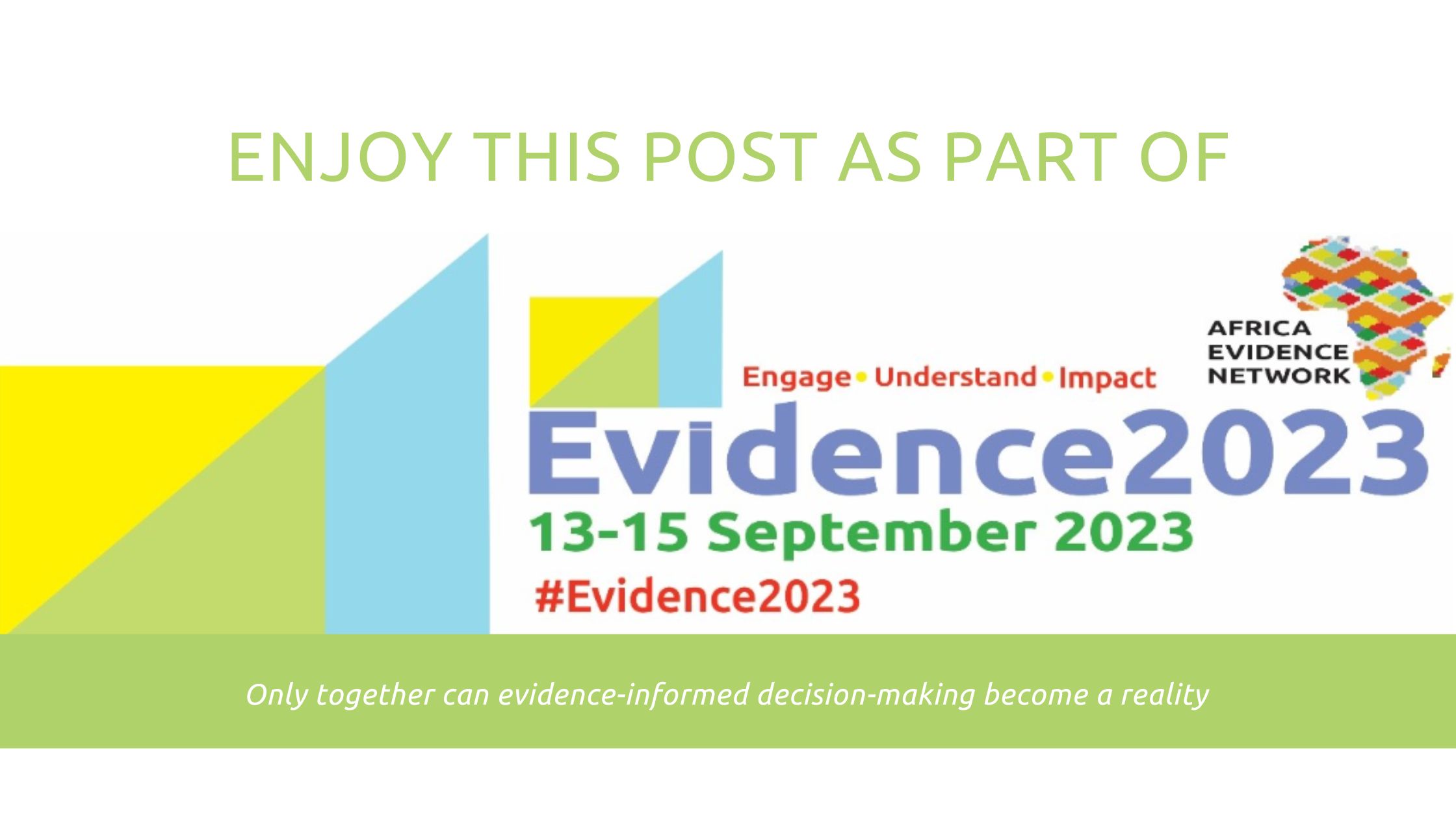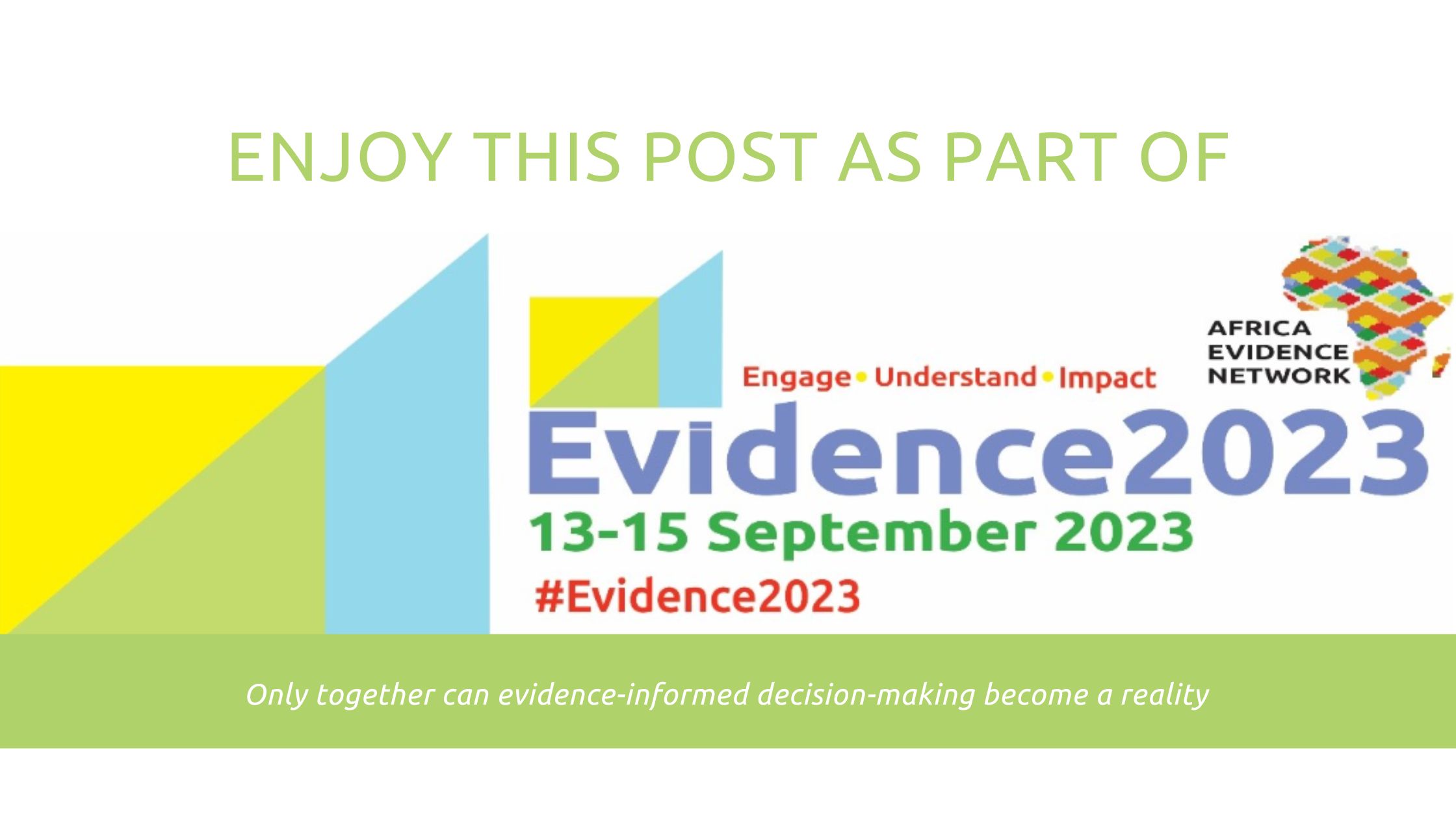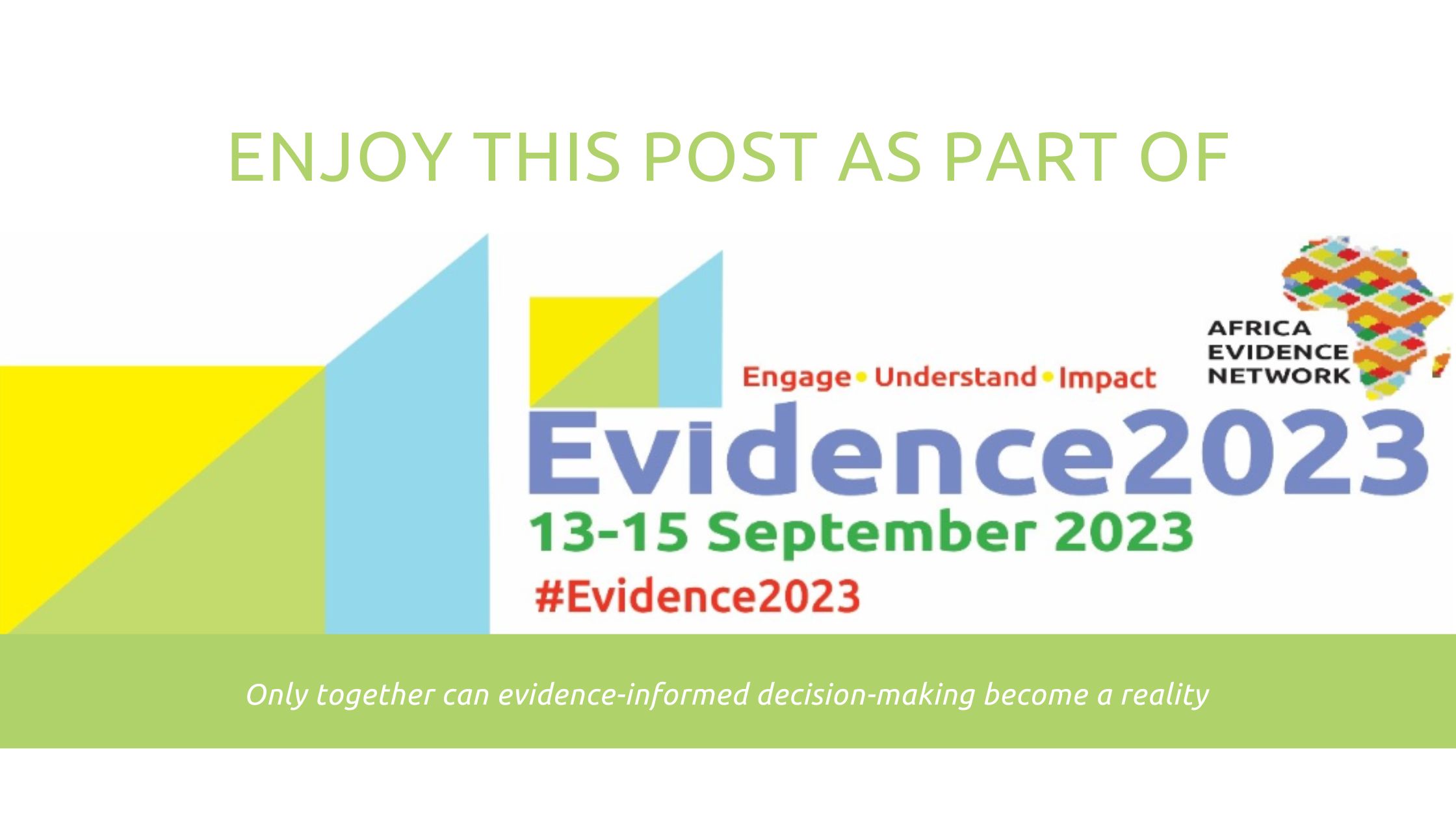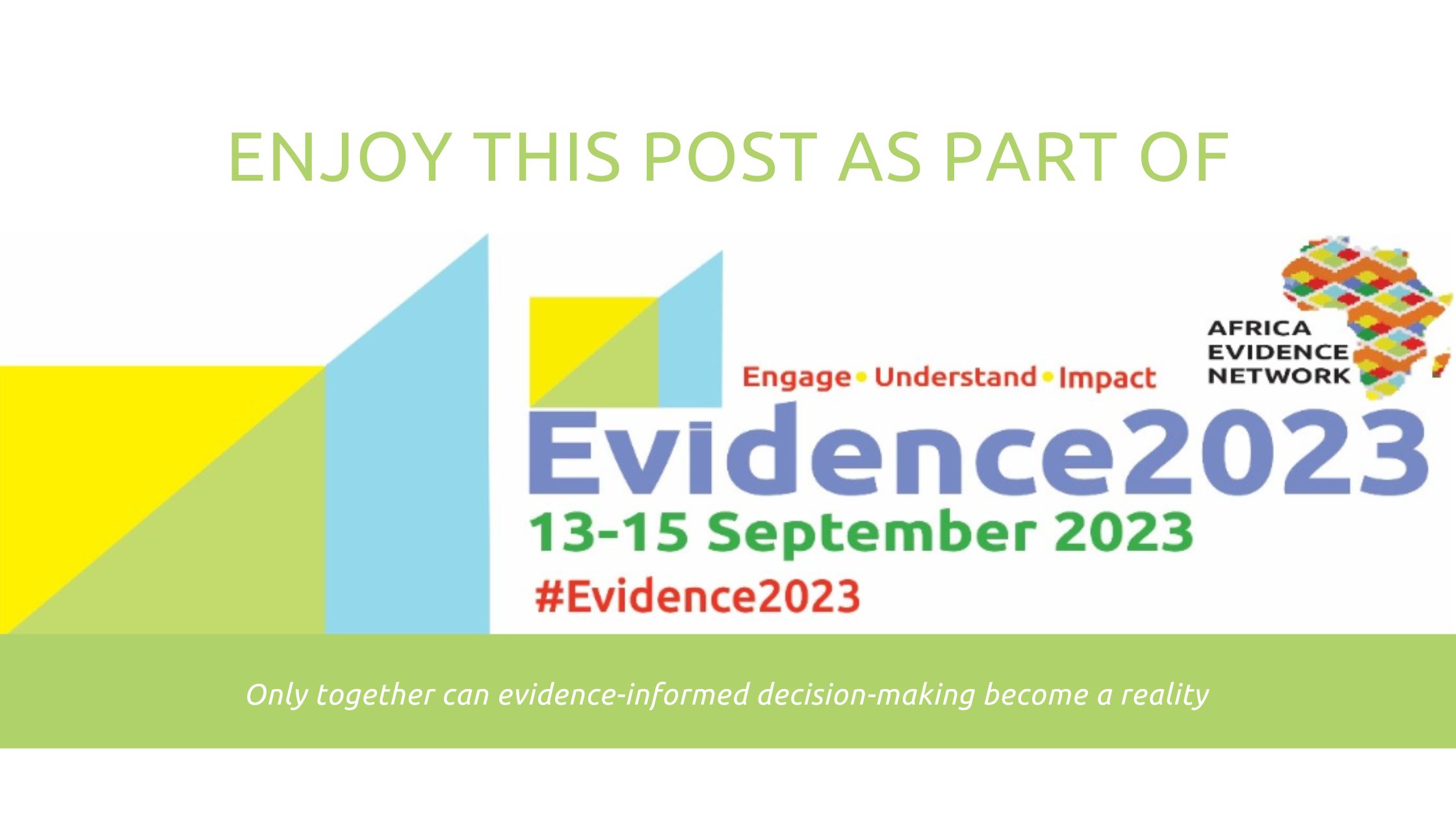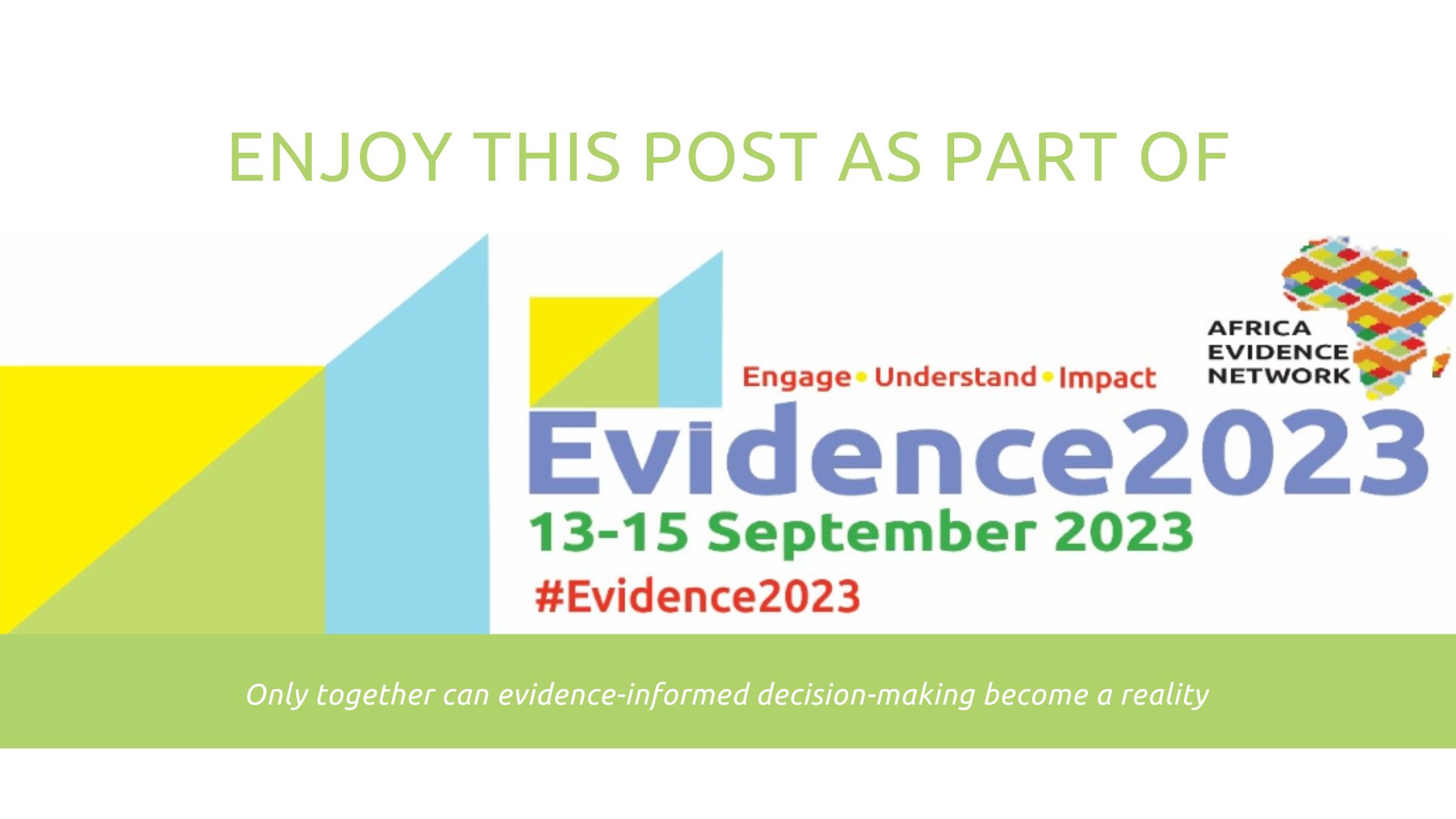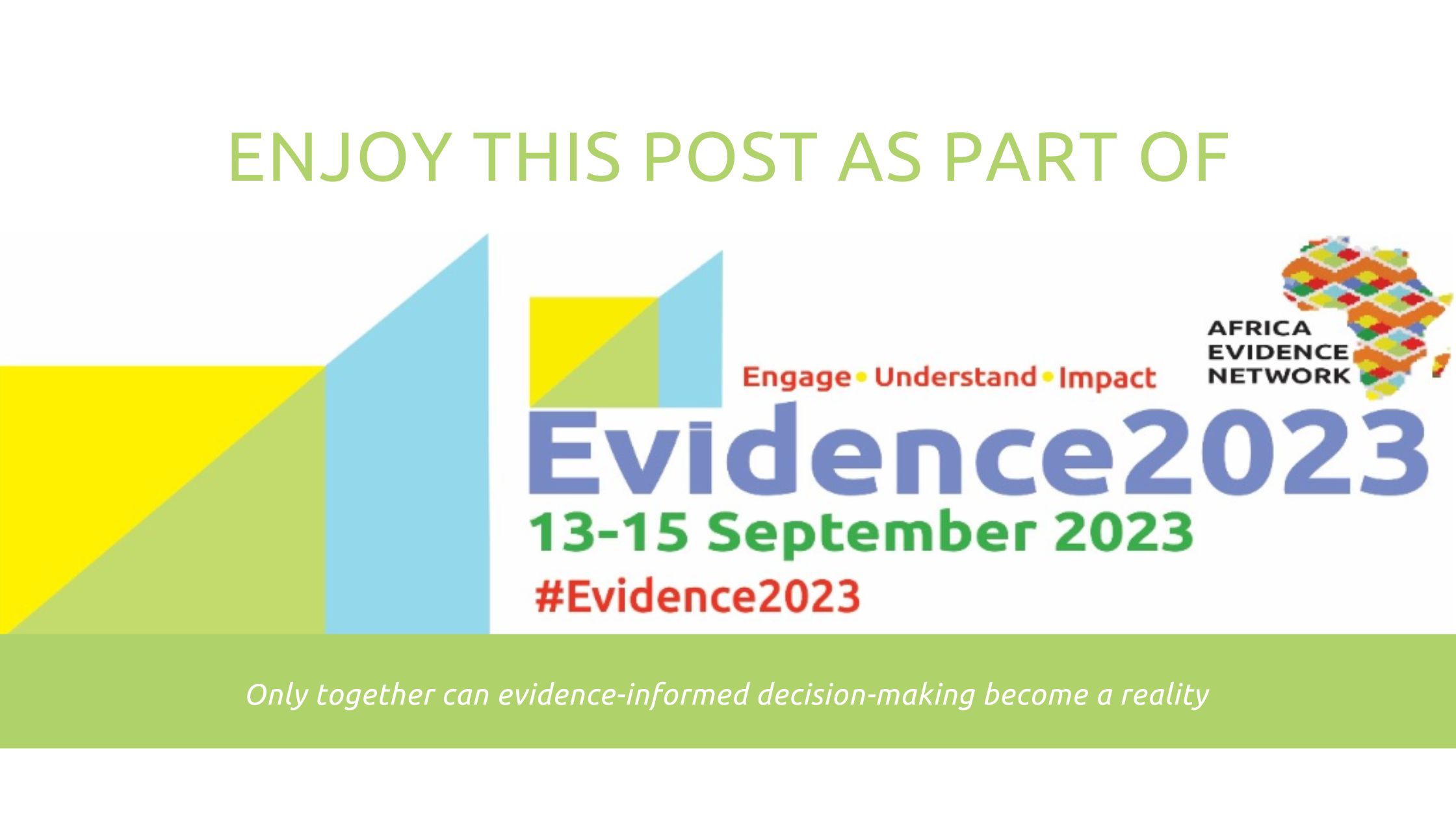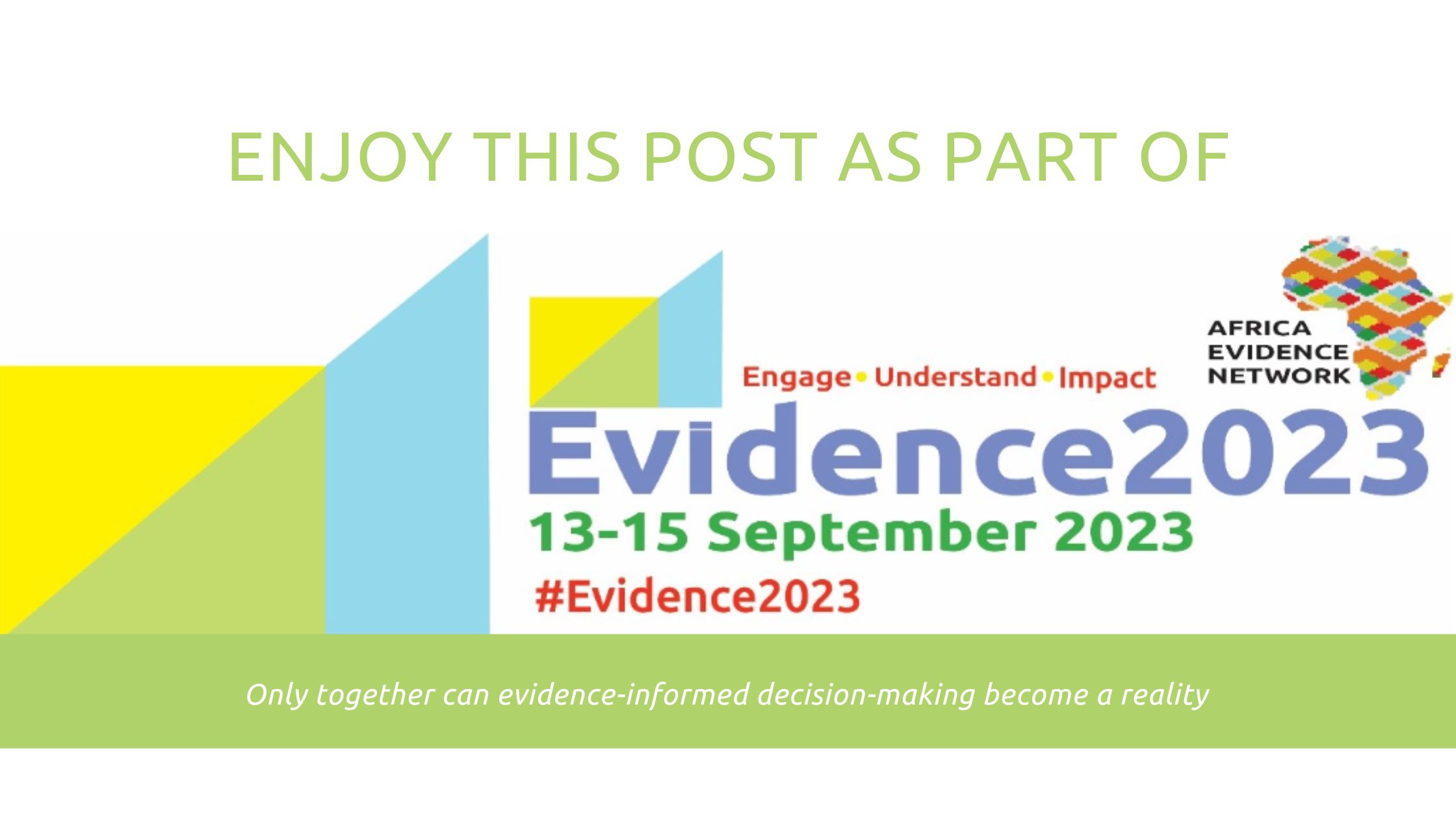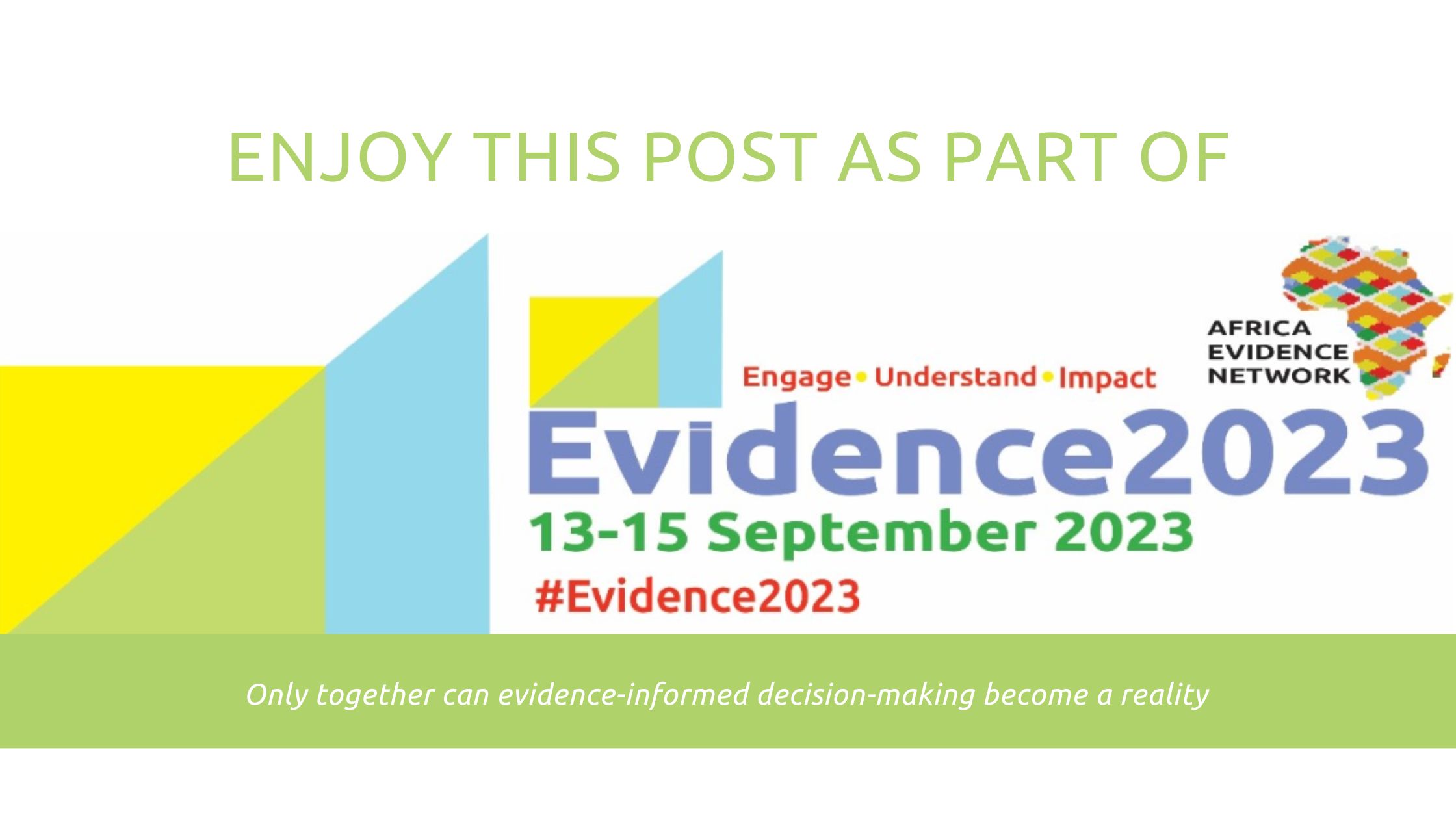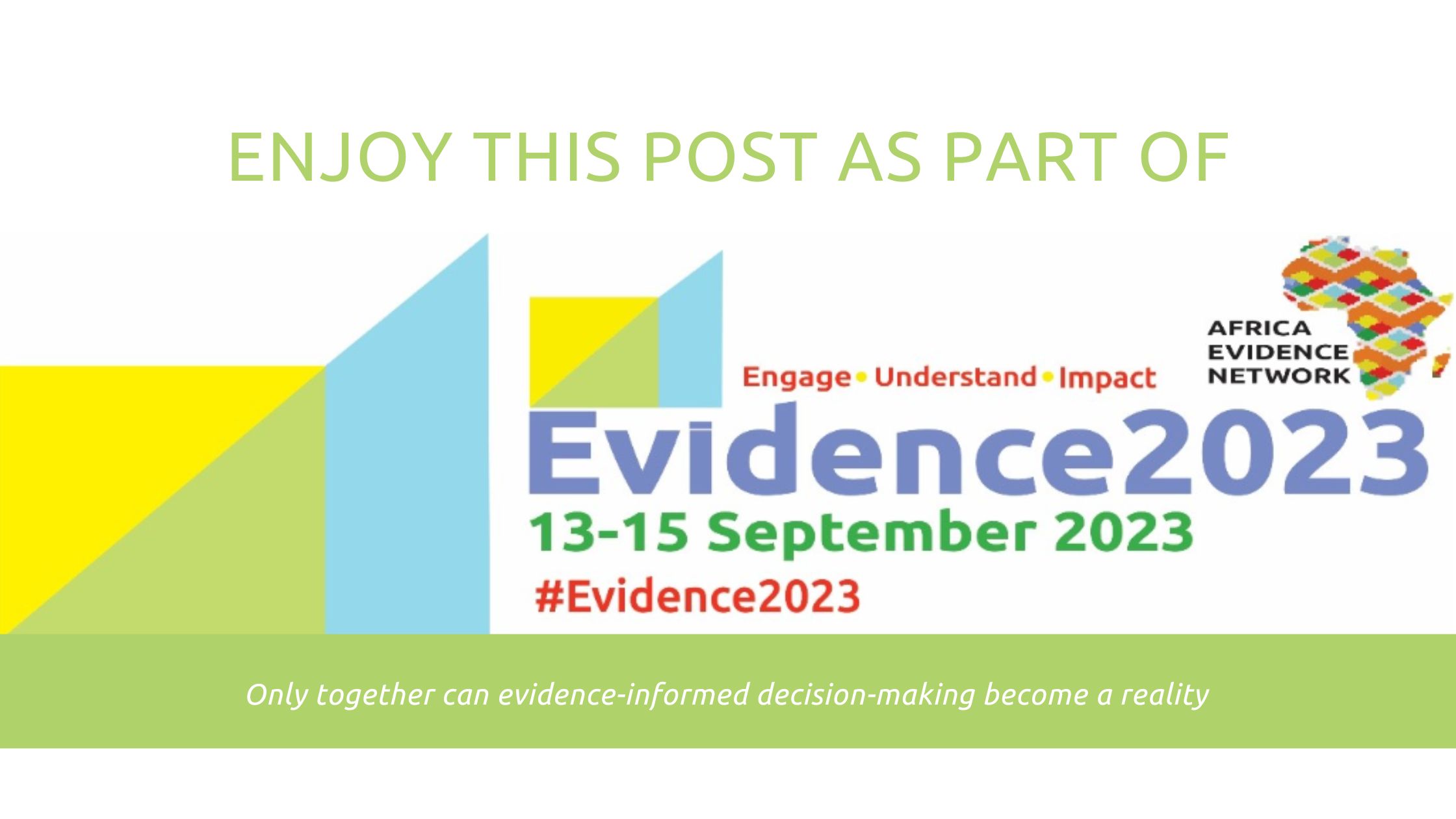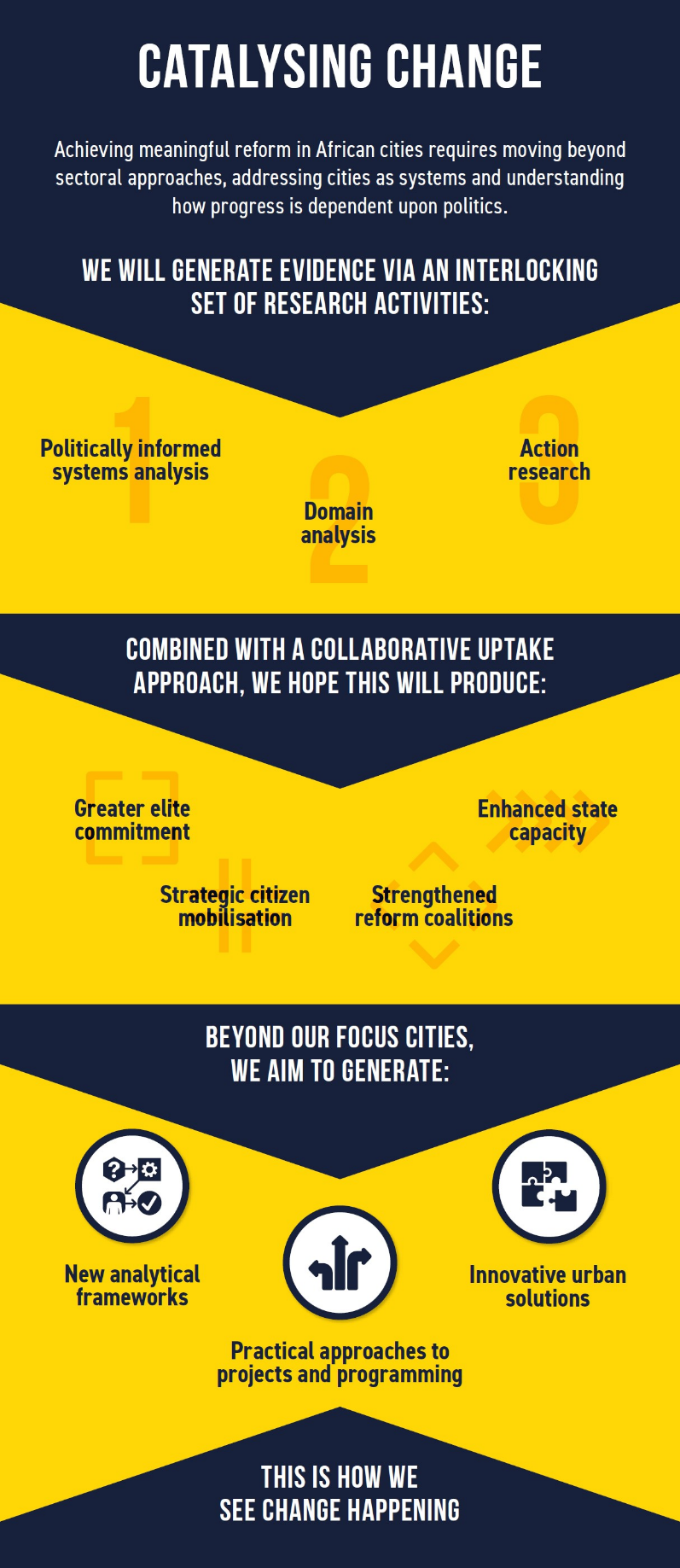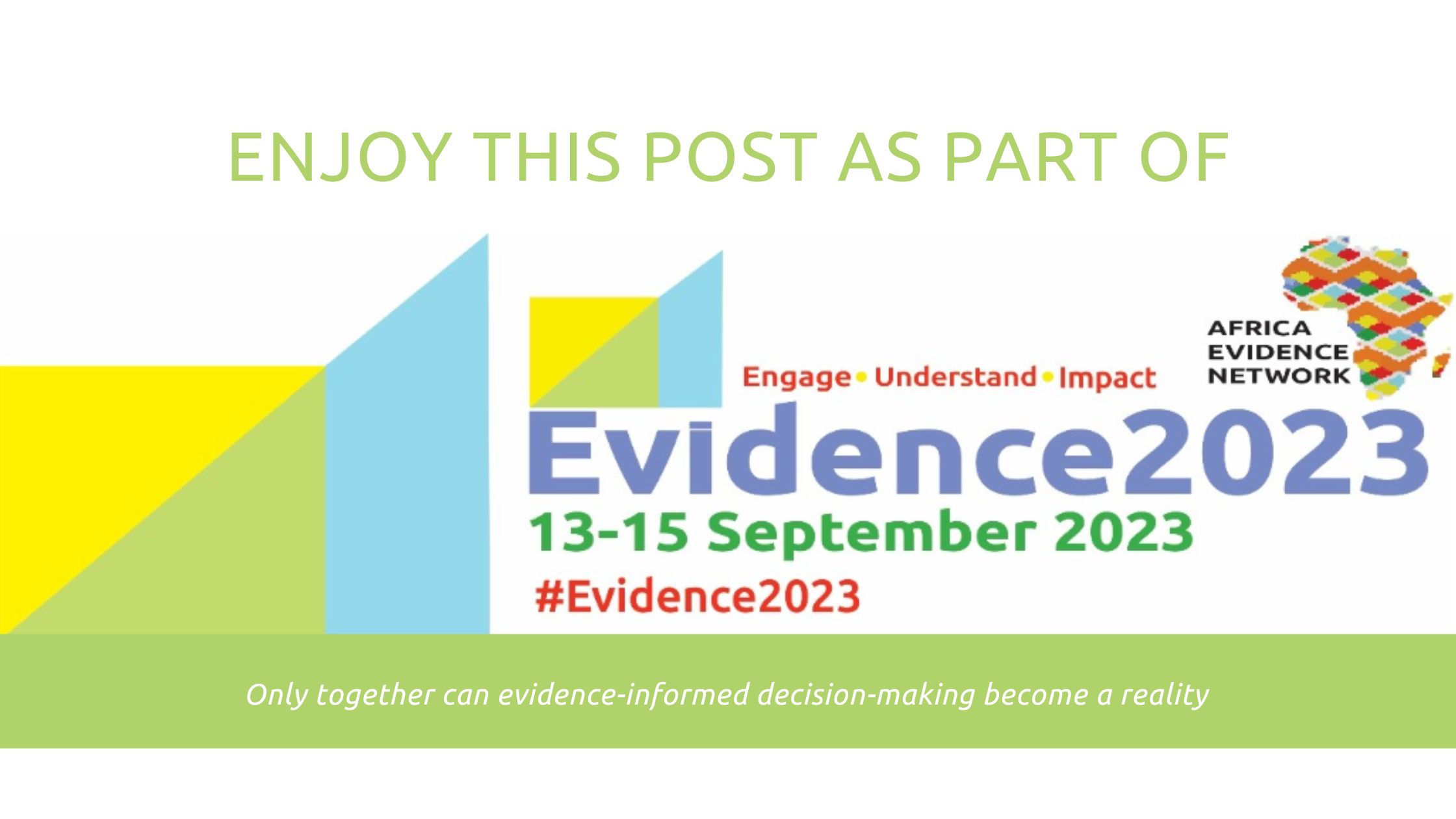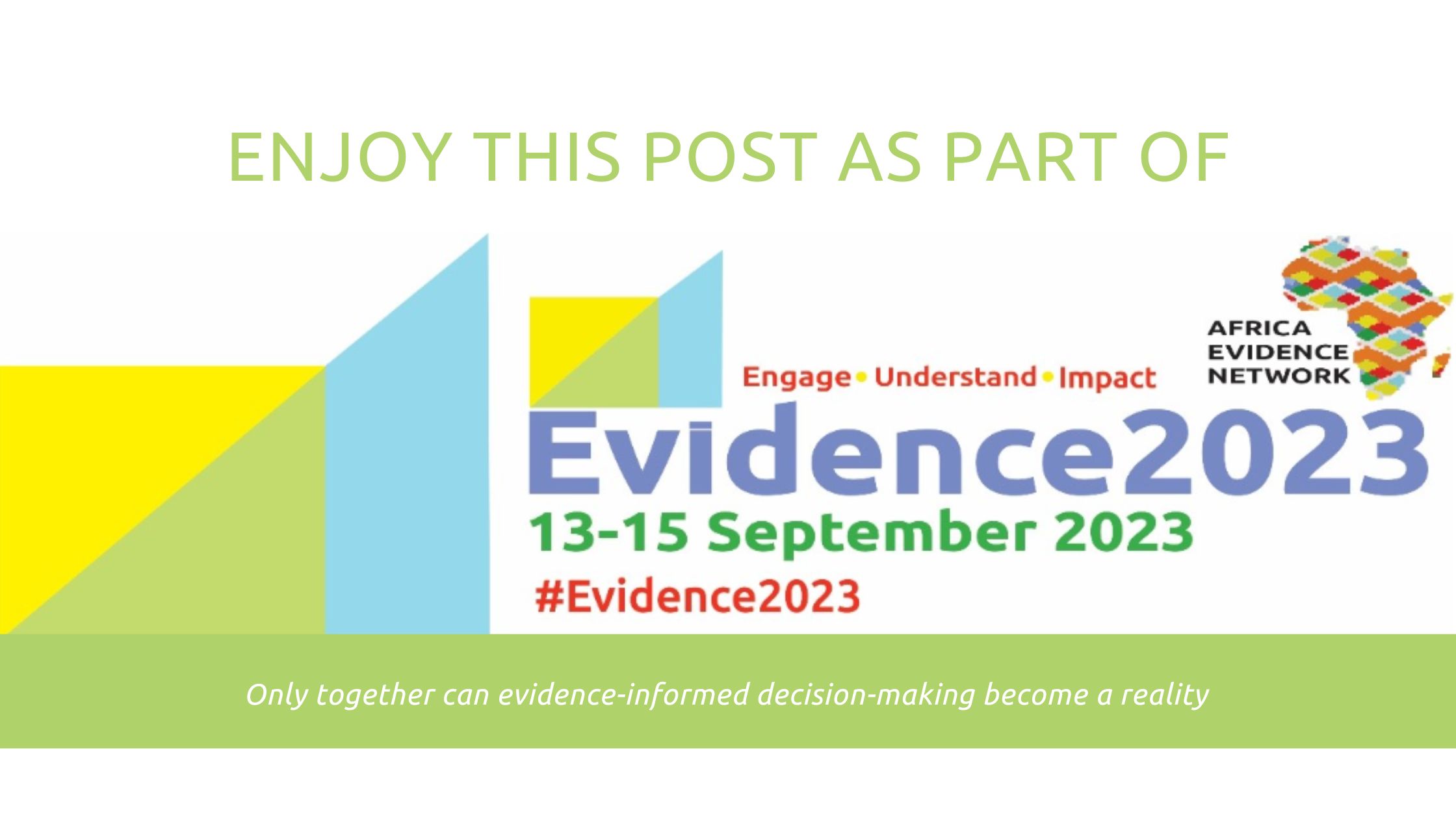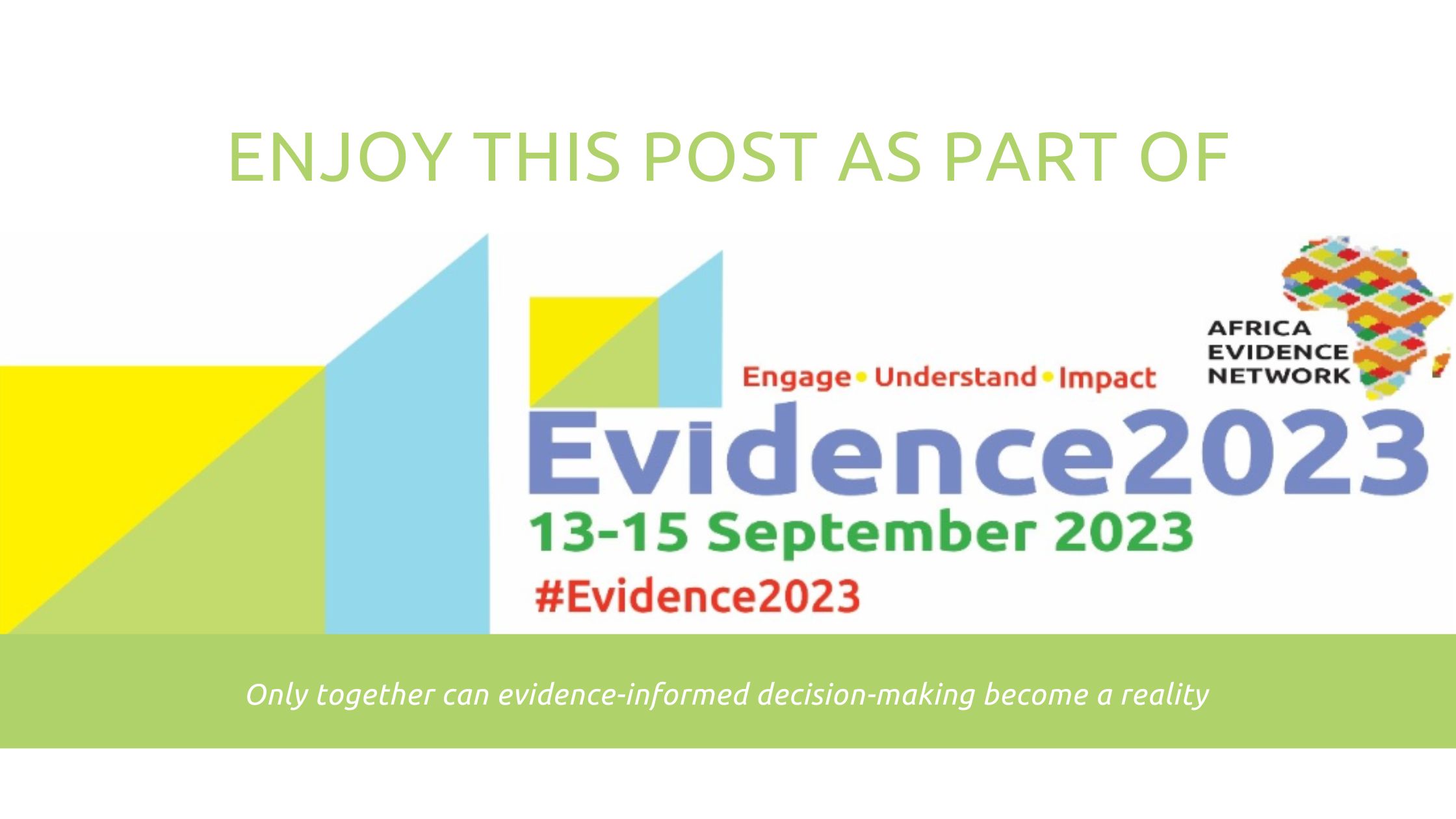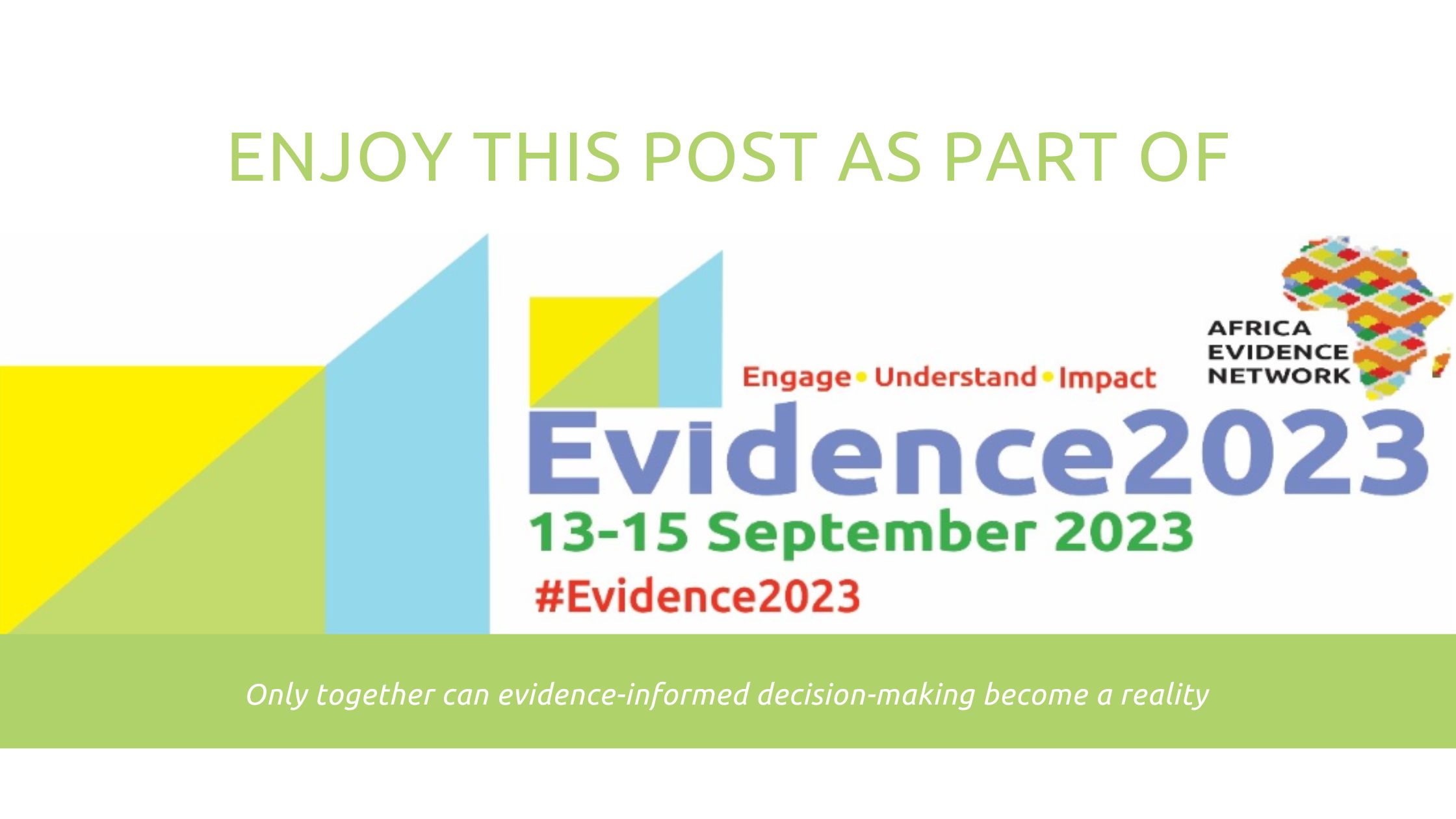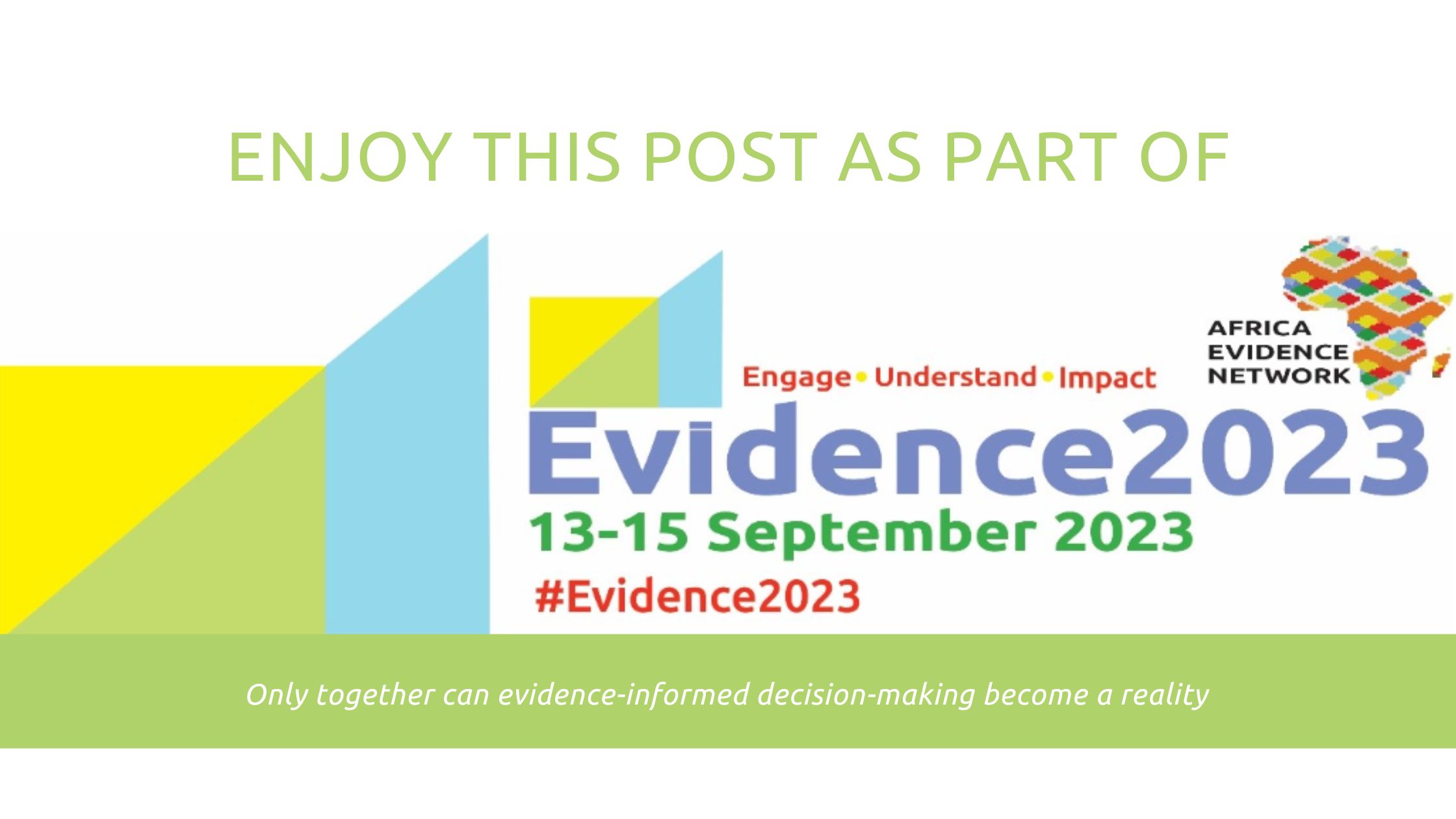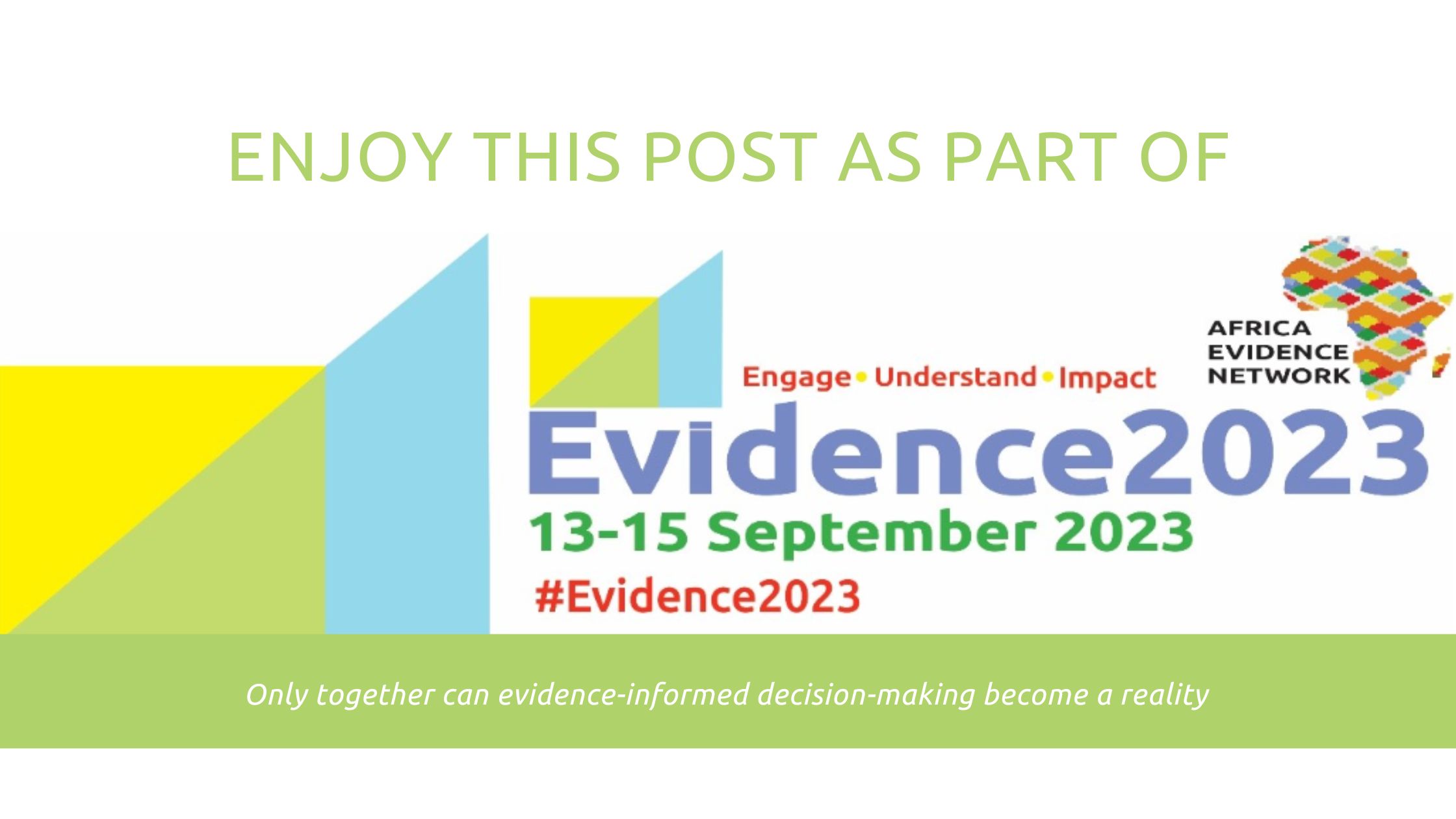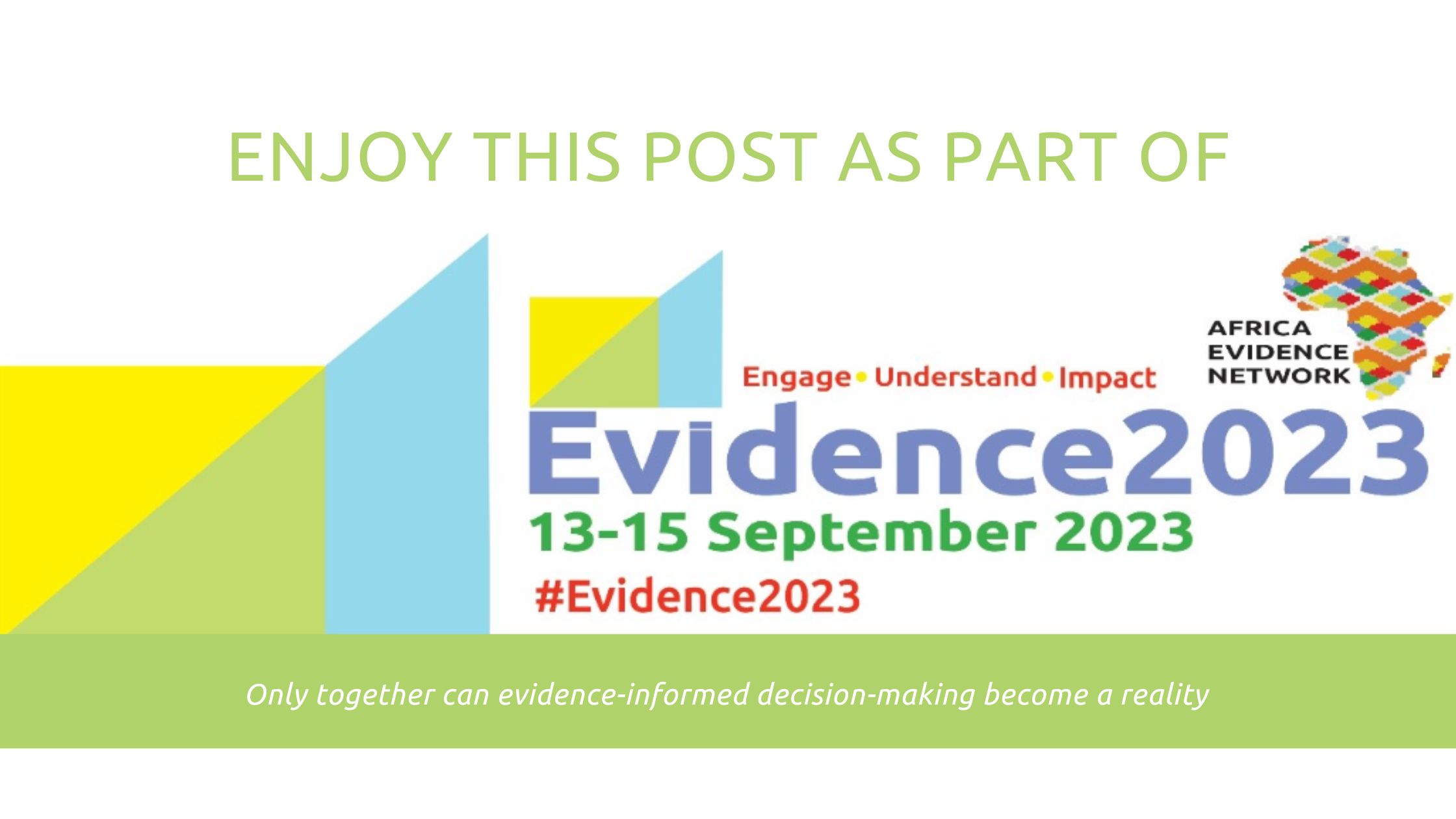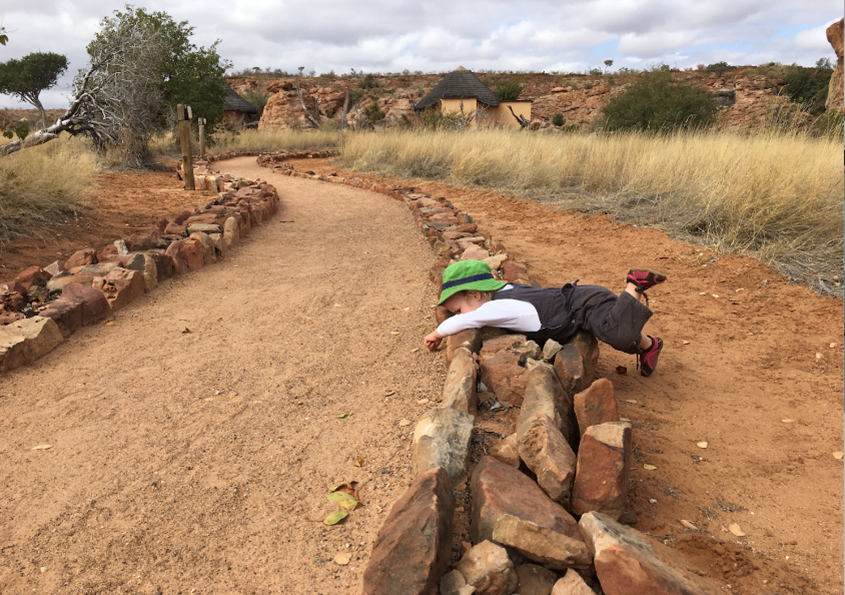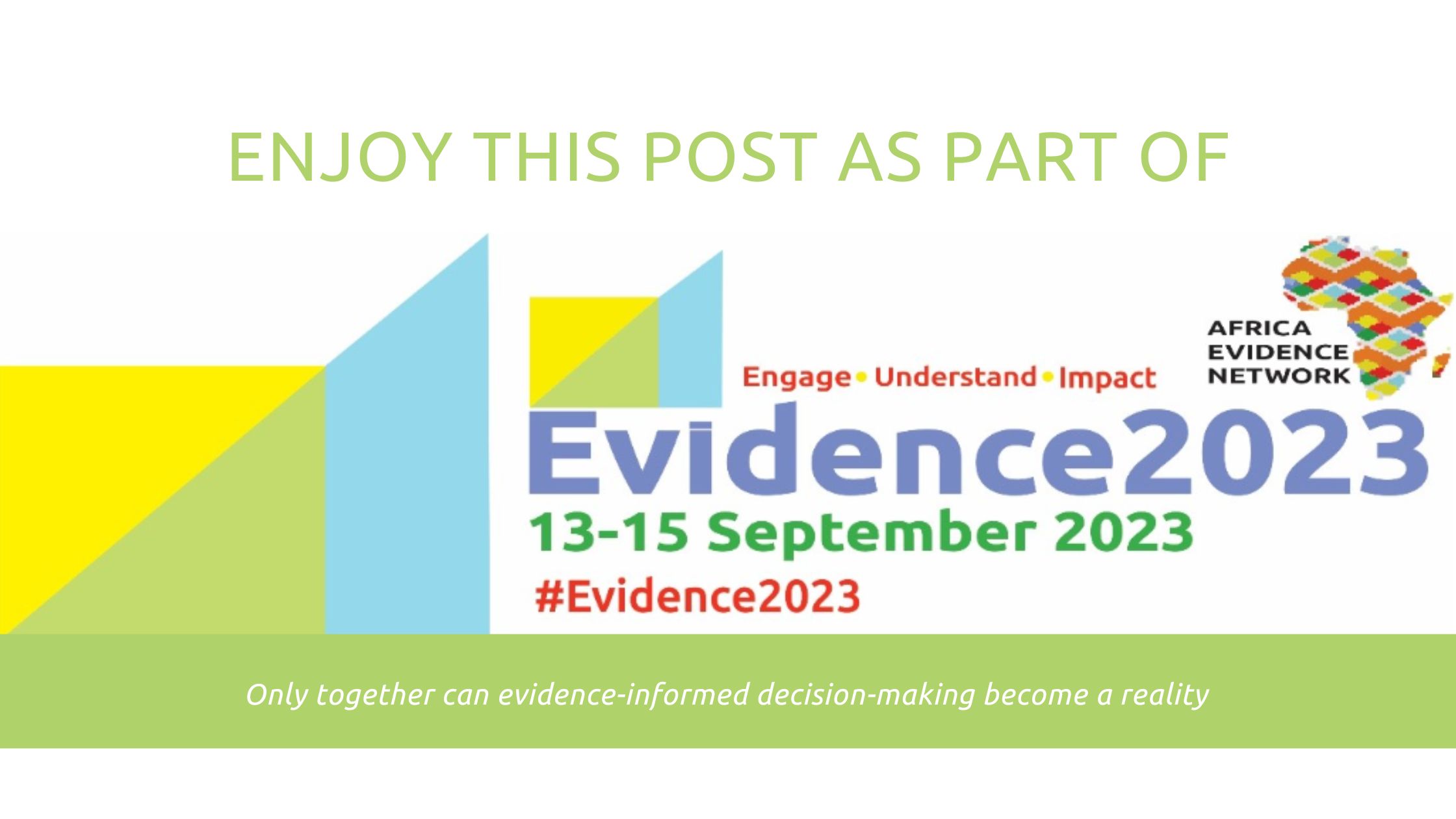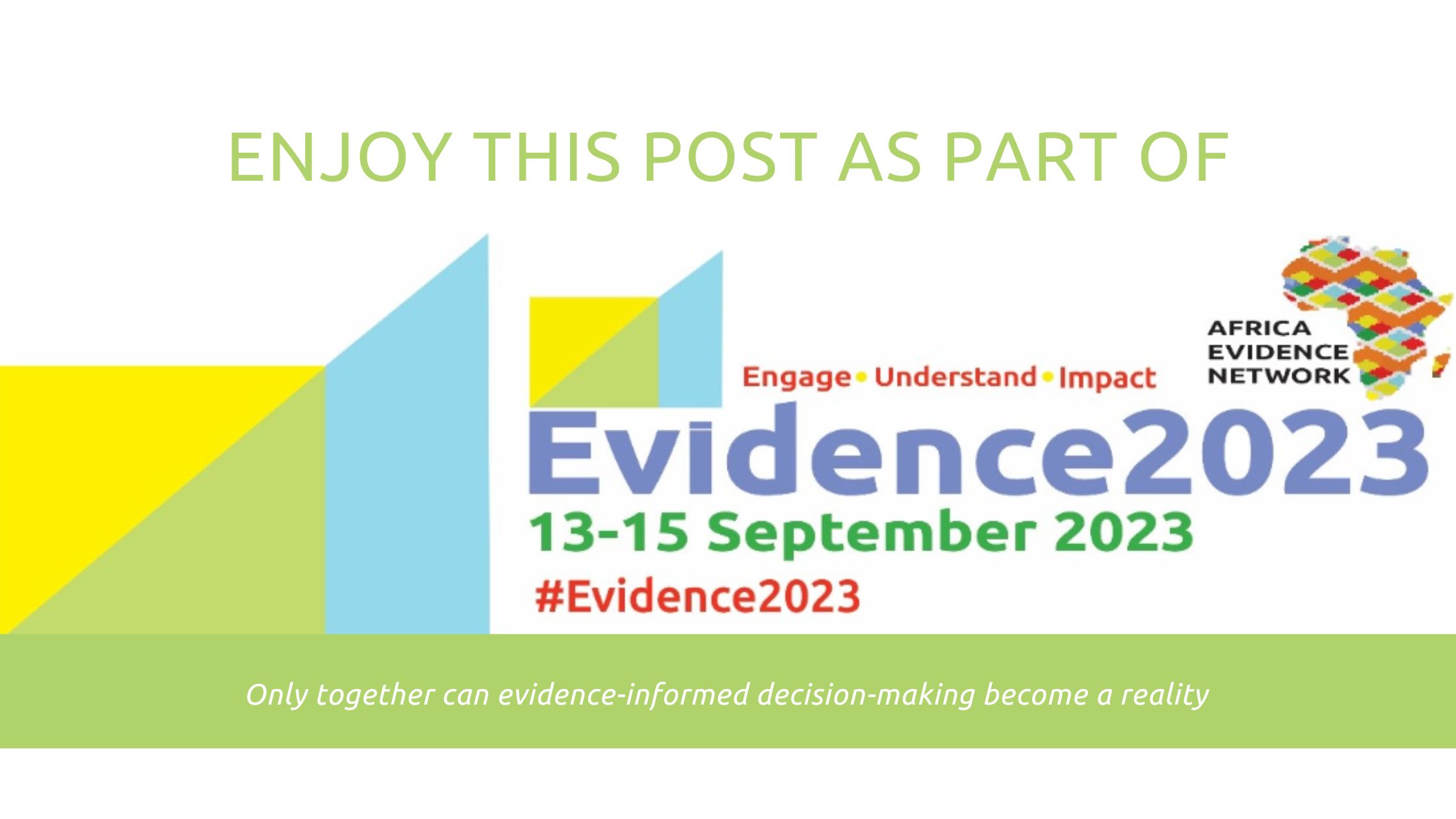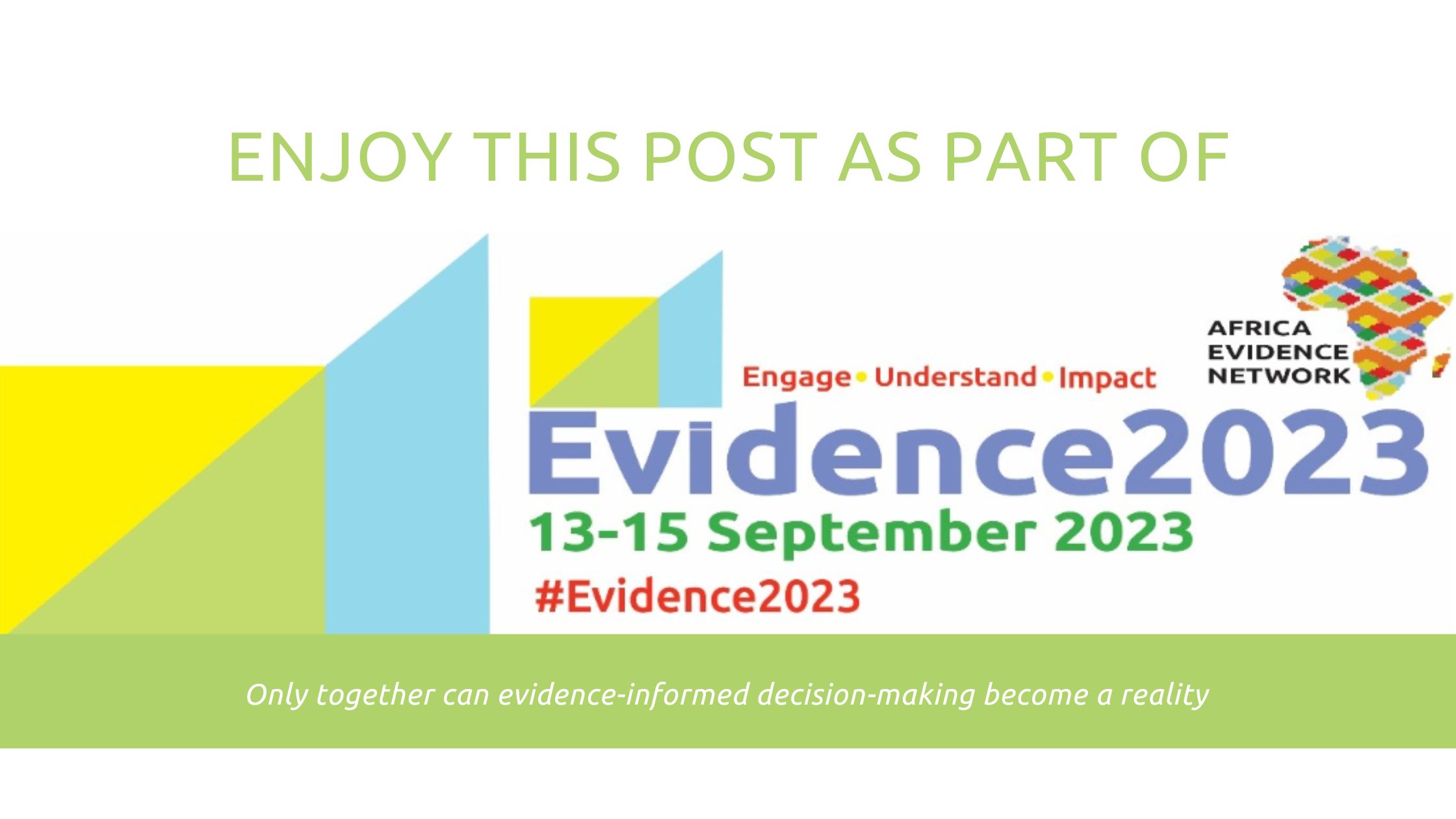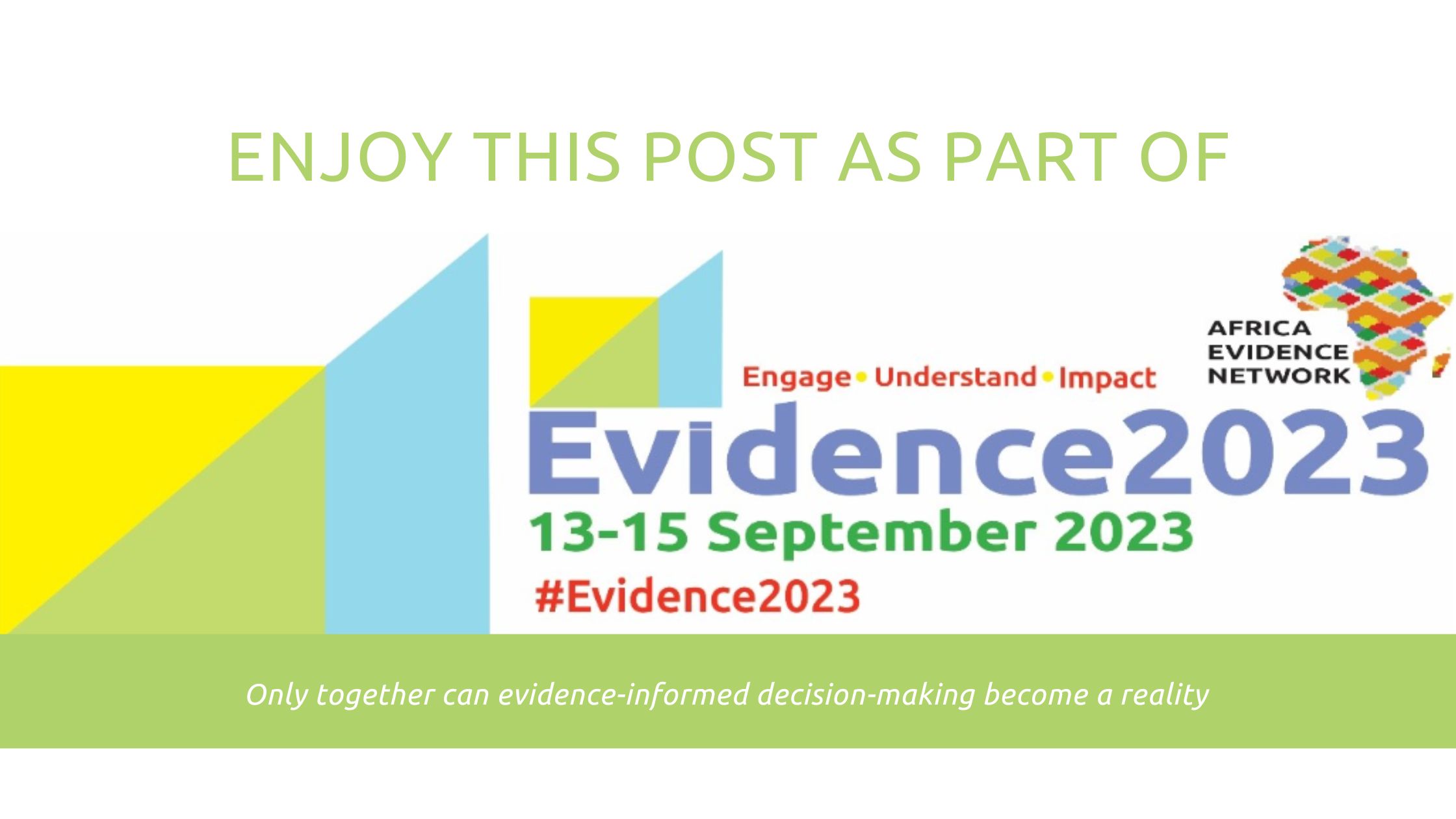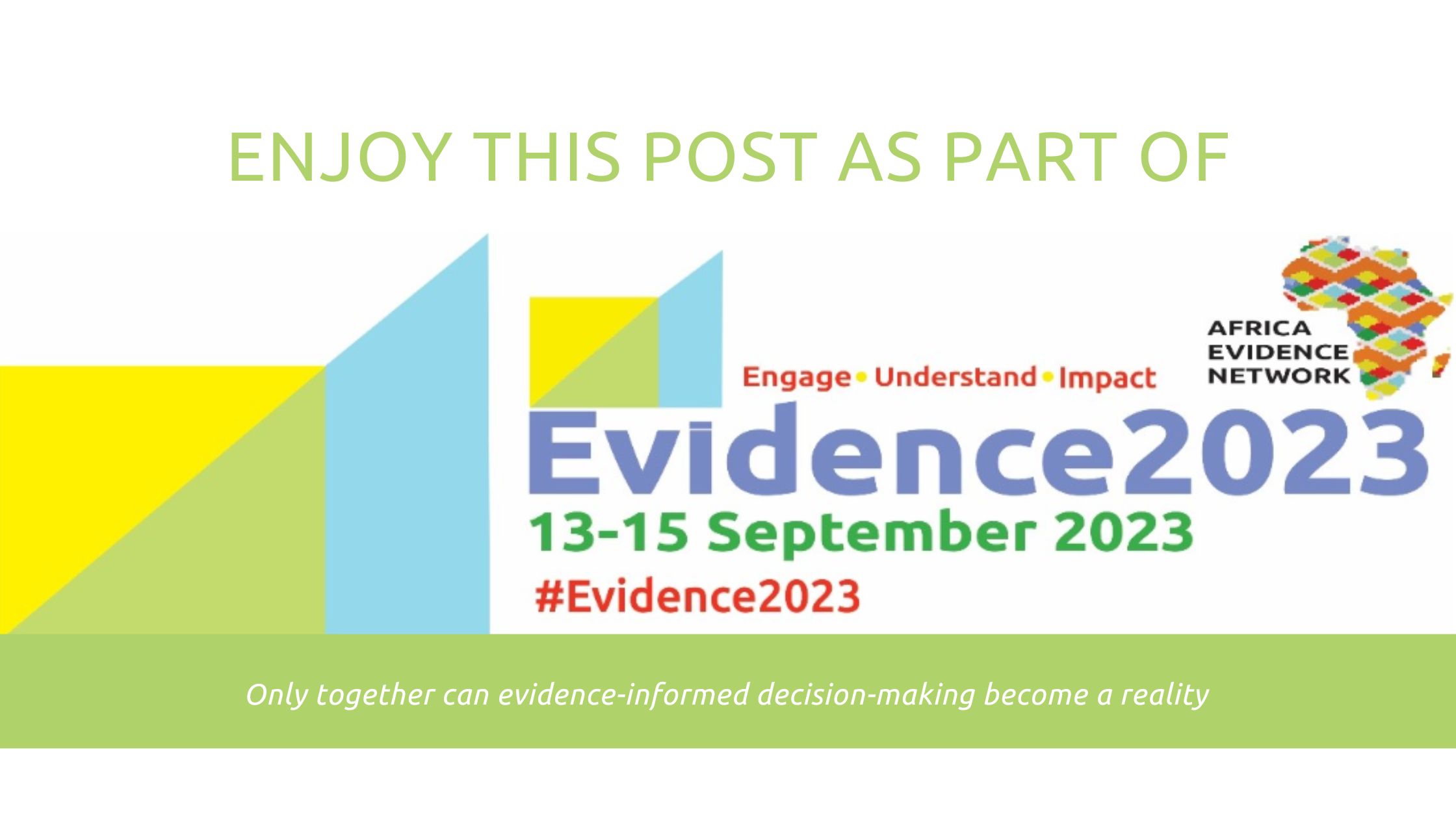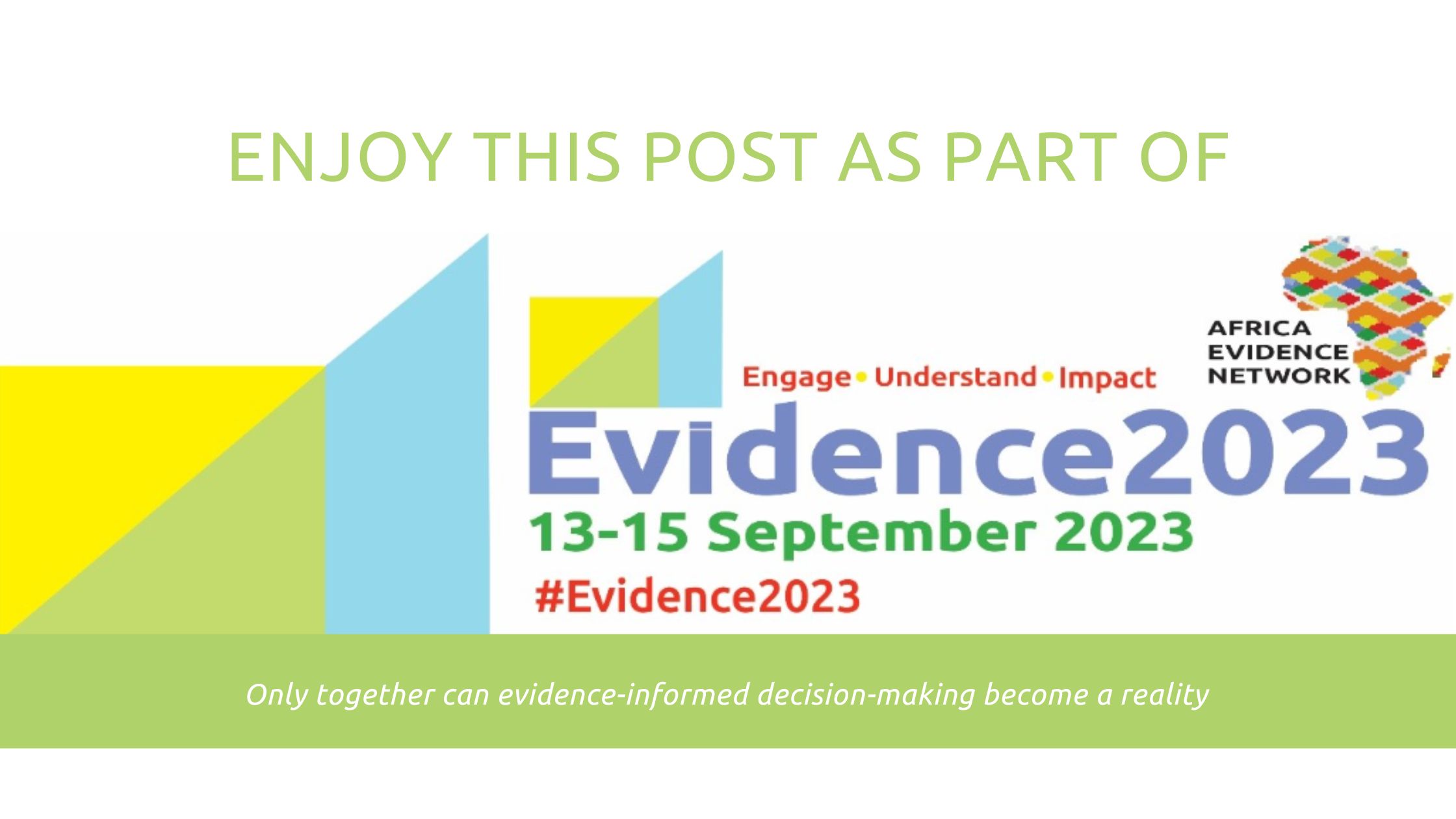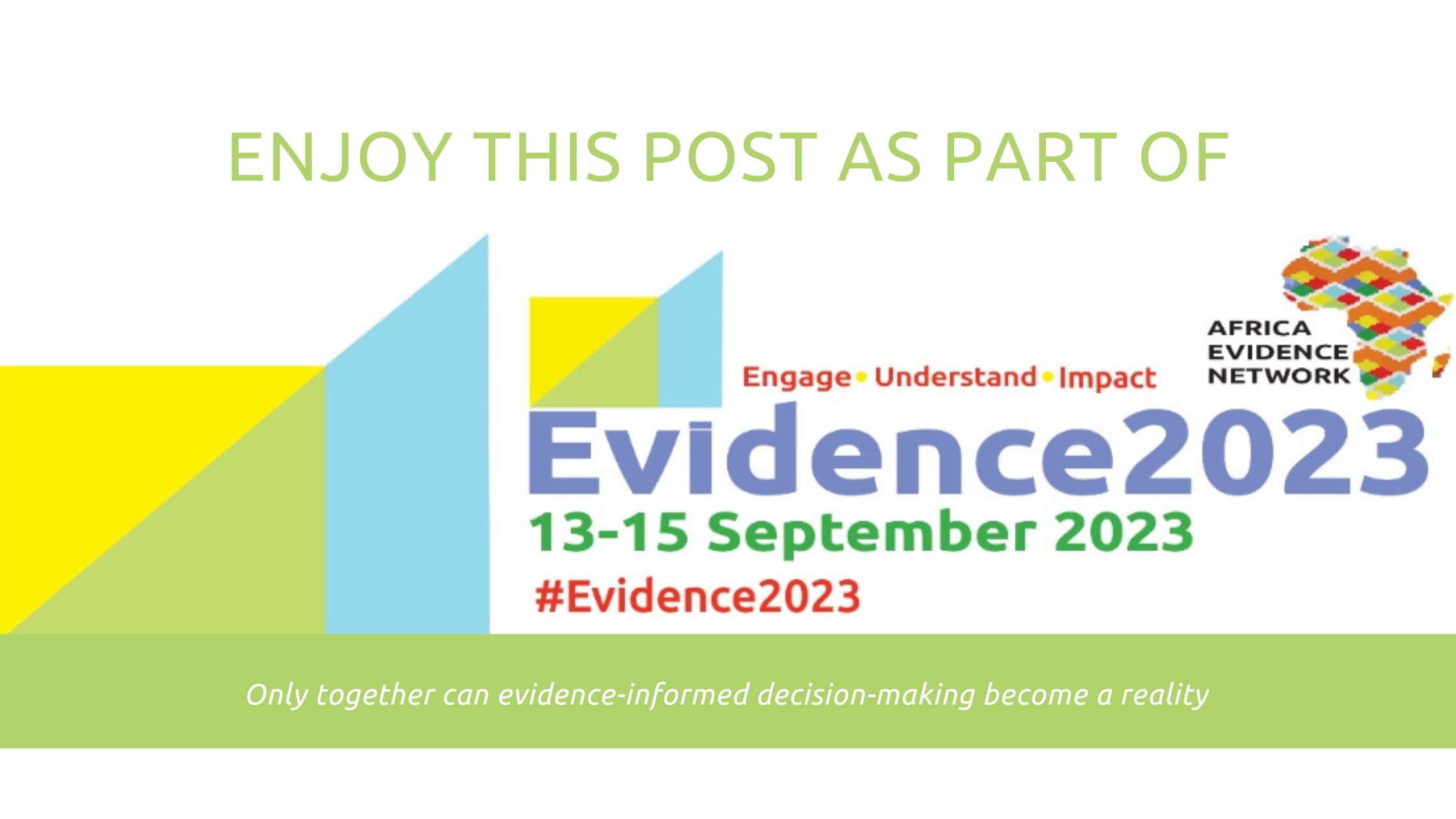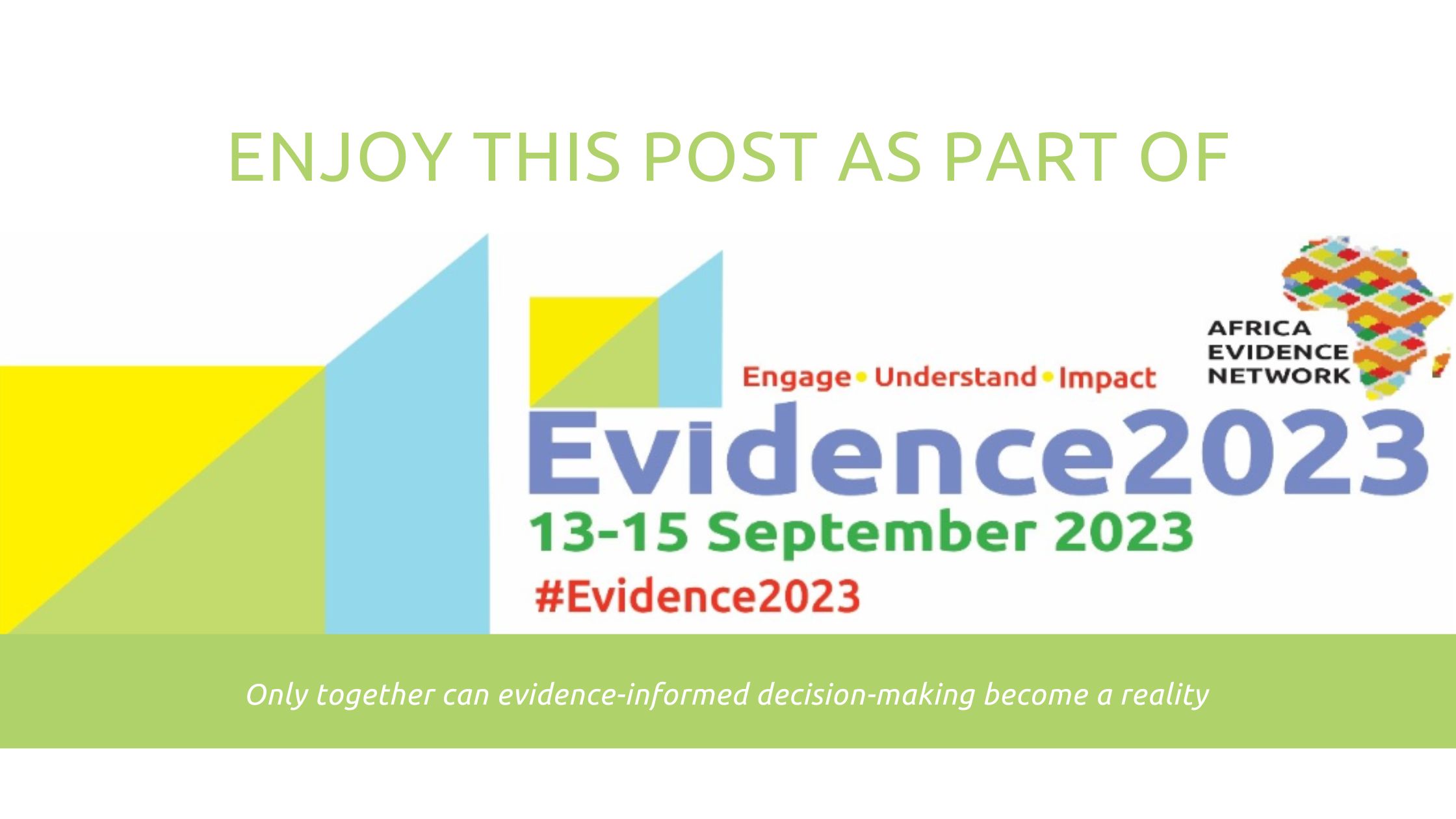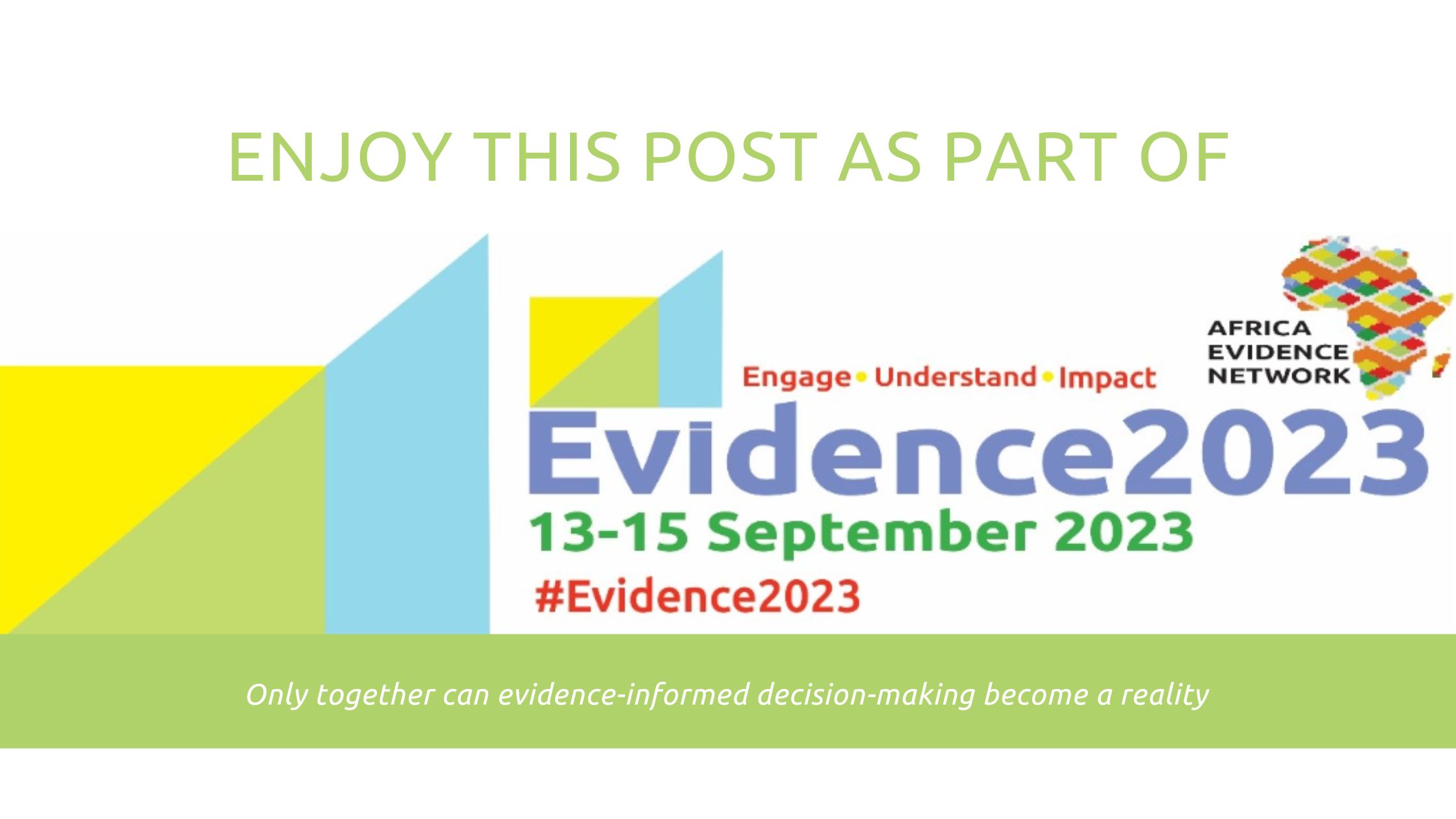
Background
Evidence-informed decision-making (EIDM) increases transparency and accountability in the policy-making process, can reduce the waste of public resources, minimises unintended risks or harm from well-intended policies and enhances monitoring and evaluation of health interventions. These benefits can lead to better health and development outcomes. Resource-constrained contexts such as Africa stand to benefit the most from EIDM but face capacity constraints at individual, institutional and systems levels. Between 2020 and 2022, a consortium led by the African Institute for Development Policy implemented the programme “Heightening institutional capacity for government use of health research (HIGH-Res)”. The HIGH-Res programme aimed to enhance the institutional capacity of Ministries of Health (MoHs) in Kenya, Malawi and Uganda to use evidence for decision-making through four interacting intermediary outcomes:
- Decision-making structures in the health sector have embedded capacities for evidence synthesis and use
- Institutionalised mechanisms to enable regular interaction between researchers and health sector decision-makers
- Institutionalised mechanisms to enable regular interaction between researchers and health sector decision-makers
- Increased awareness, interest and appreciation of the value of incentivising EIDM through institutional systems and procedures
HIGH-Res programme approach and evaluation
The consortium collaborated with departments in the MoHs and other targeted institutions well positioned to facilitate and accelerate EIDM institutionalisation to align the programme activities with their interests and capacity needs and build on their EIDM initiatives. The consortium conducted a formal landscape and political economy assessment before the start of the programme to inform its initial activities at the country level. Each programme country team defined activities to the identified country priorities, politics, policies, initiatives and structures. After that, each programme country team adapted the approaches/activities as implementation progressed based on an ongoing informal assessment of institutional evolving priorities, politics and policies. The consortium evaluated the extent the programme achieved its primary and intermediary outcomes and outputs, drawing on data from a landscape and political economy assessment, review of the programme and target institutional documents and reflections and interviews with project staff and MoH staff engaged in the project. This blog focuses on what the consortium achieved in Kenya in two of the four intermediary outcomes where the programme made the most progress – intermediary outcomes one and two.
Strengthened Kenya Ministry of Health capacity to use evidence for decision-making shaped by programmatic, individual, institutional and environmental factors
The Kenya programme targeted the Ministry of Health, its research arm, Kenya Medical Research Institute (KEMRI), and academic/ professional training institutions, including KEMRI. The programme made notable progress towards achieving its primary outcome, “enhanced the capacity of the Ministry of Health to use evidence for decision making”. The mandate and leadership of the departments in the MoH, KEMRI and academic/ professional training institutions engage, and the HIGH-Res programme EIDM expertise, collaborative and responsive approach and funding played a great role in facilitating the achievements. The programme fell short of achieving some activities and outputs primarily due to time and funding constraints and timing (e.g., institutional restructuring), which contributed to partially achieving the primary outcome. The programme could have benefited from more time to complete some of the interventions and more funding to sustain and/or expand some of the interventions. COVID-19 pandemic. The COVID-19 pandemic played the dual role of facilitating and hampering the programme’s implementation and outputs. Table 1. presents more details of the intermediary outcomes, activities and outputs planned and achieved in Kenya and influencing factors.
Table 1. Kenya HIGH-Res programme planned and achieved activities and outputs by the intermediary outcome and influencing factors
|
Planned intermediary outcomes, outputs and activities |
Achieved intermediary outcomes, outputs and activities and influencing factors |
|
Intermediary outcome 1: Decision-making structures in the health sector have embedded capacities for evidence synthesis and use |
|
|
Activity/Output 1.1: Train and mentor research focals nominated by the MoH in evidence synthesis |
The programme refined the type of MoH staff targeted due to an institutional restructuring that made the initial nomination criteria difficult to implement. Seventeen nominated MoH research focal persons were trained and mentored on evidence synthesis, which resulted in ten evidence briefs. Two out of the ten evidence briefs informed MoH decisions. 84 KEMRI researchers were also trained on systematic review methodology to enhance their capacity to support MoH TWGs, which resulted in seven systematic reviews. The COVID-19 pandemic shaped the approach used to administer the evidence synthesis training (virtual) and the topics of the evidence briefs that influenced MoH decisions. |
|
Activity/Output 1.2: Develop and integrate evidence checklists in the MoH decision-making process |
Two evidence checklists were co-created with the MoH Research Division. The Division planned to consolidate the checklists together with other existing EIDM tools into an EIDM toolkit and promote their use in the MoH, but this phase of the activity was slow, and the project ended before reaching this milestone. A restructuring at the MoH in 2022, which affected the MoH Research Division, contributed to this. The programme’s impending close also resulted in a shift in interest among the staff of the MoH Research Division as they sought other funding opportunities to support their work. |
|
Activity/Output 1.3: Strengthen EIDM leadership and coordination within MoH by working with the MoH Research Division to review their strategies and work plans and revive their Research-for-Health (R4H) TWG |
The MoH Research Division implemented the work plans that were co-created with the programme, including: conducting evidence syntheses to respond to questions MoH leaders are asking; and conducting a knowledge management survey within the MoH to assess MoH-wide capacities, gaps and opportunities for strengthening EIDM practice. In addition, the MoH Research Division revived the R4H TWG and established three sub-committees (the EIDM Capacity Building sub-committee, Knowledge Translation sub-committee and Informatics sub-committee). The formal mandate of the MoH Research Division and the interest, leadership, and capacity of the staff in this Division and strengthened MoH Research Division facilitated the achievement of this activity and output. |
|
Activity/Output 1.4: Establish an evidence synthesis mechanism to support health sector decision-making at national and sub-national levels through working with KEMRI Knowledge Management (KM) unit |
The KEMRI leadership seconded a staff to the Knowledge Management (KM) unit. The KM unit nominated KM champions (trained in systematic reviews noted above) and conducted a KM capacity needs assessment. This activity and output contributed to raising the profile of the KEMRI KM unit, which led to its appointment as a Cochrane Centre for Kenya in partnership with Cochrane South Africa. The HIGH-Res programme funding (including support for the seconded staff), AFIDEP EIDM expertise, the KEMRI KM Office mandate and EIDM capacity constraints and the programme’s systematic review training facilitated the success of this activity and output. |
|
Intermediary outcome 2: Institutionalised mechanisms to enable regular interaction between researchers and health sector decision-makers |
|
|
Activity/Output 2.1: Increase EIDM focus and policymakers’ participation in annual health research conferences through the MoH Research Division and conference organisers co-organising conferences and sessions focused on EIDM |
The programme targeted two conferences - the KEMRI Annual Scientific and Health (KASH) Conference and the East African Research Commission (EARHC) on their (biennial) conference - due to: the existing relationships between MoH and KEMRI and EARHC; Kenya MoH’s role as host of the 2021 EARHC conference; and the postponement of many conferences due to COVID-19 pandemic restrictions. MoH trained research focal persons participated in the different priority conference sessions, prepared evidence briefs on the topics and shared these with MoH decision-makers and the EARHC. This activity and output increased the prominence of EIDM at KEMRI and EAHRC conferences and produced tools for identifying and documenting relevant research presented at conferences. The MoH Research Division and KEMRI expressed interest in using the approach and tools in future research conferences. |
|
Activity/Output 2.2: Introduce regular evidence-to-policy dialogues in the MoH annual work plans and implemented |
The MoH Research Division introduced bi-annual evidence-to-policy dialogues in their annual work plans and organised three dialogues on emerging policy issues/questions by the MoH. This activity and output generated increased demand for policy dialogues from other MoH departments, which the Research Division supported beyond those funded by the programme. The strengthened MoH Research Division and a supportive leader in its mother department (the MoH Health Policy, Financing, and Research Department), who had worked with AFIDEP in past projects, underpinned the success of this activity and output. |
Conclusion
In conclusion, the HIGH-Res programme results demonstrate that a collaborative and politically responsive approach to strengthening institutional capacity for evidence-informed decision-making in the health sector is a promising programme design. This approach ensures that the programme aligns to the interests and capacity needs of targeted institutions, informs continuous refinement of the programme implementation approach to position it for success as well as takes advantage of windows of opportunity (e.g., the COVID-19 pandemic evidence needs). This approach shows the role of programmatic, individual, institutional and environmental factors in EIDM capacity strengthening initiatives. As others have found, more substantive and longer investments are needed to achieve the full potential of such an initiative and sustain the gains long enough to entrench an EIDM culture. Environment factors such as COVID-19 and other emergencies advance EIDM.
Funding: The study is funded under Heightening Institutional Capacity for Government Use of Health Research (HIGH-Res) Project. The HIGH-Res project received financial support from the Alliance for Health Policy and Systems Research (the Alliance) at the World Health Organisation, and Wellcome Trust. The funders had no role in study design, data collection and analysis, decision to publish, or preparation of the manuscript.
Acknowledgements: The author(s) is solely responsible for the content of this article, including all errors or omissions; acknowledgements do not imply endorsement of the content. The author is grateful to Siziwe Ngcwabe, the content committee and the Africa Evidence Network team for their guidance in the preparation and finalisation of this article as well as their editorial support.
Disclaimer: The views expressed in published blog posts, as well as any errors or omissions, are the sole responsibility of the author/s and do not represent the views of the Africa Evidence Network, its secretariat, advisory or reference groups, or its funders; nor does it imply endorsement by the afore-mentioned parties.
Suggested citation: Murunga V and Abdullahi L (2023) A Collaborative and Politically Responsive Approach for Strengthening Institutional Capacity for Evidence-informed Decision making in the Health Sector: Lessons from Kenya. Blog posting on 23 August 2023 that is part of the Evidence 2023 pre-reading material. Available at: https://www.africaevidencenetwork.org/en/learning-space/article/307/
